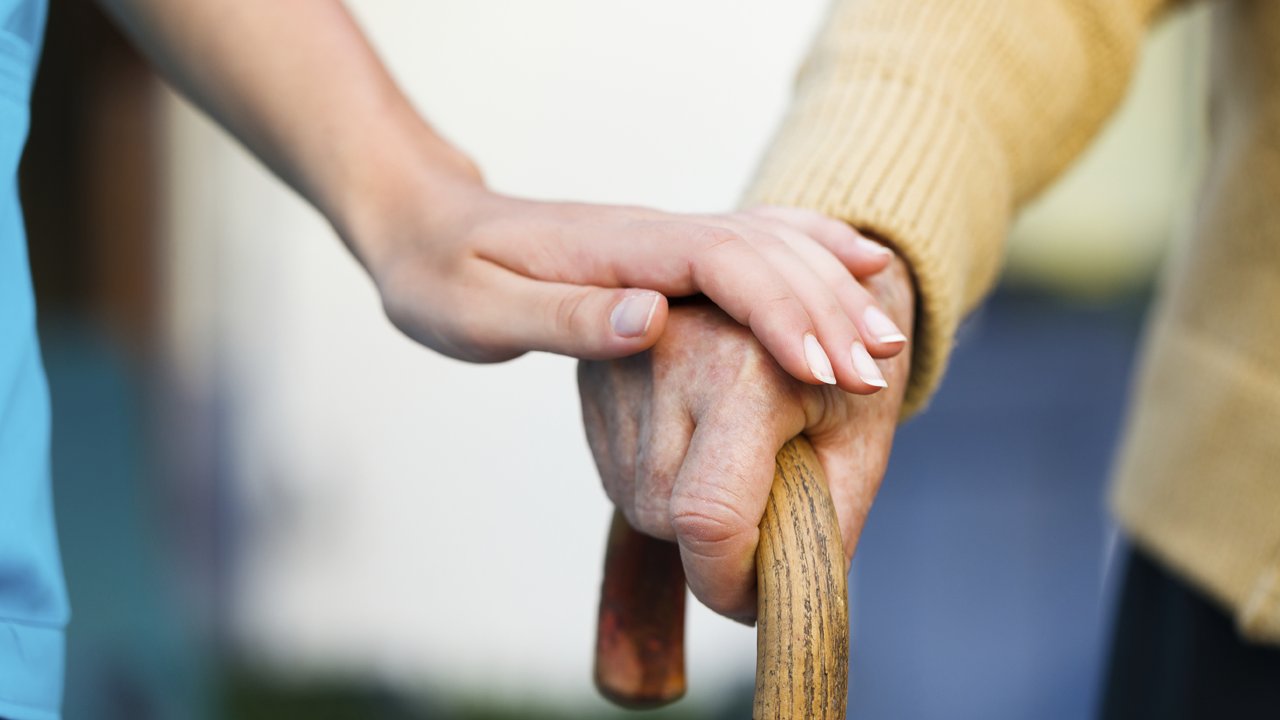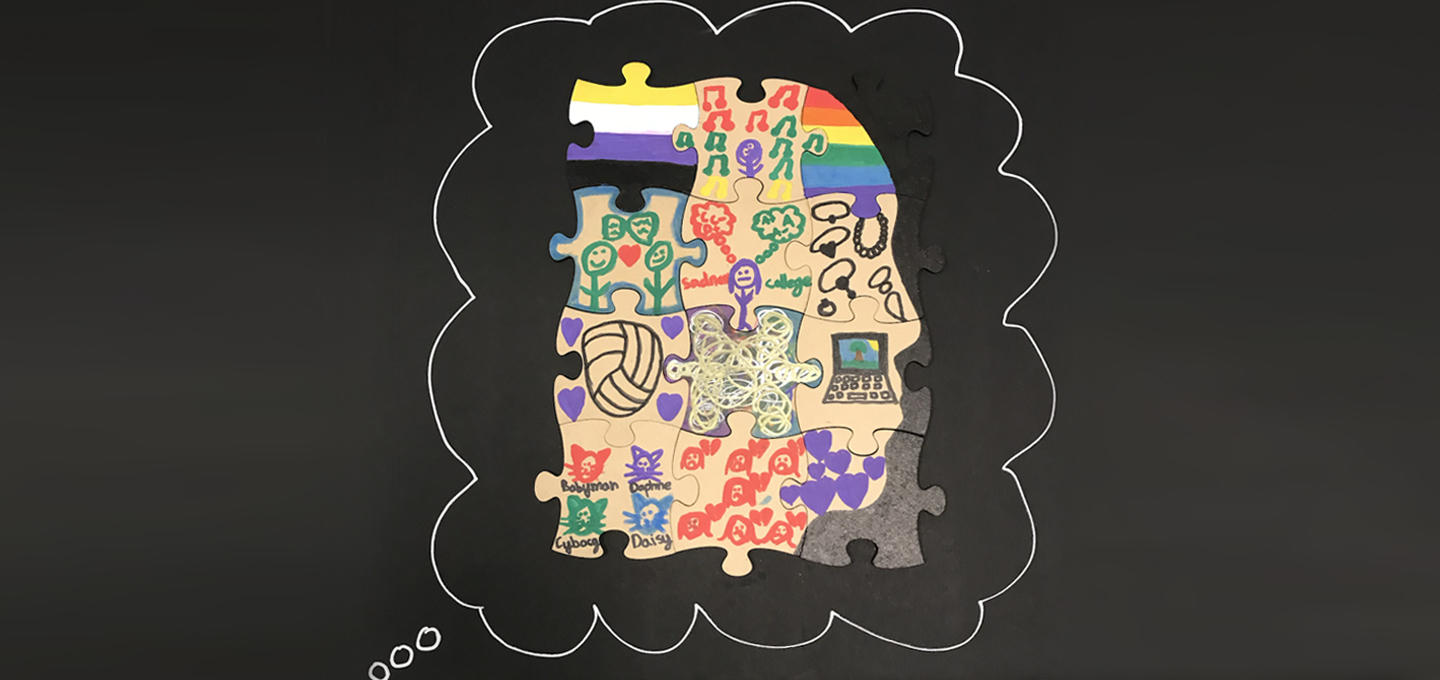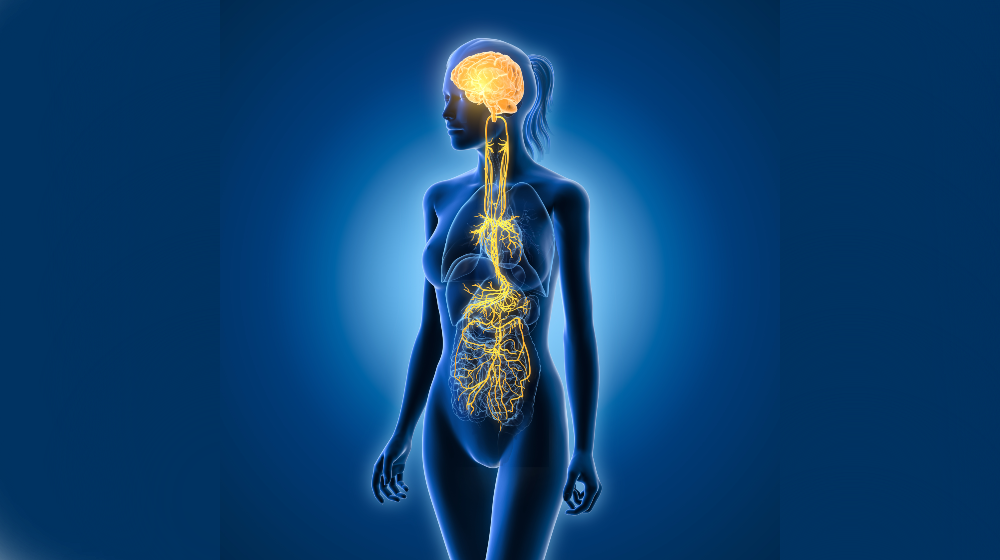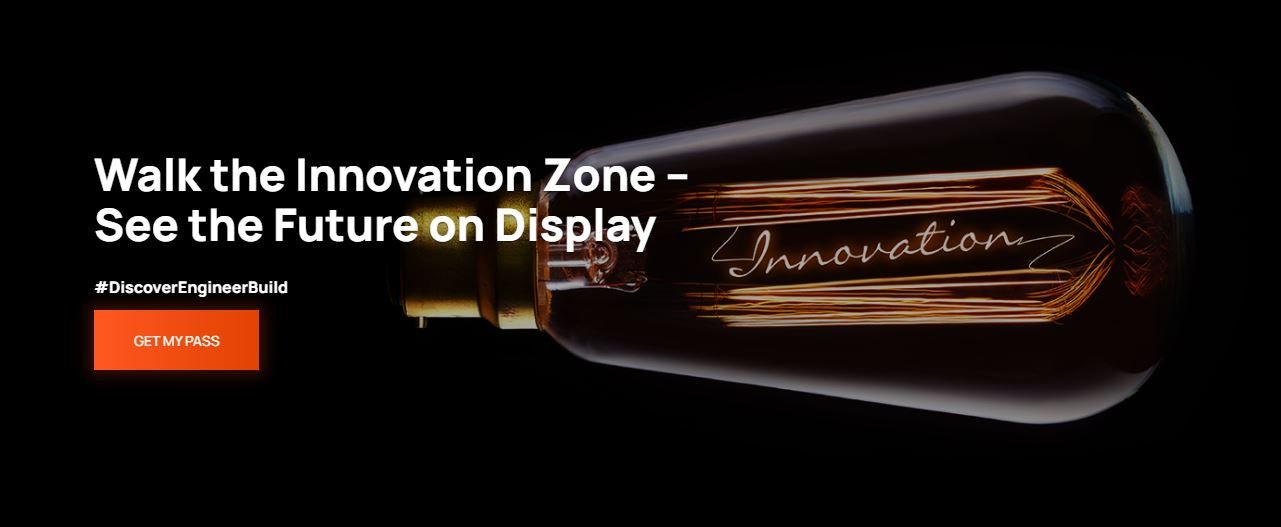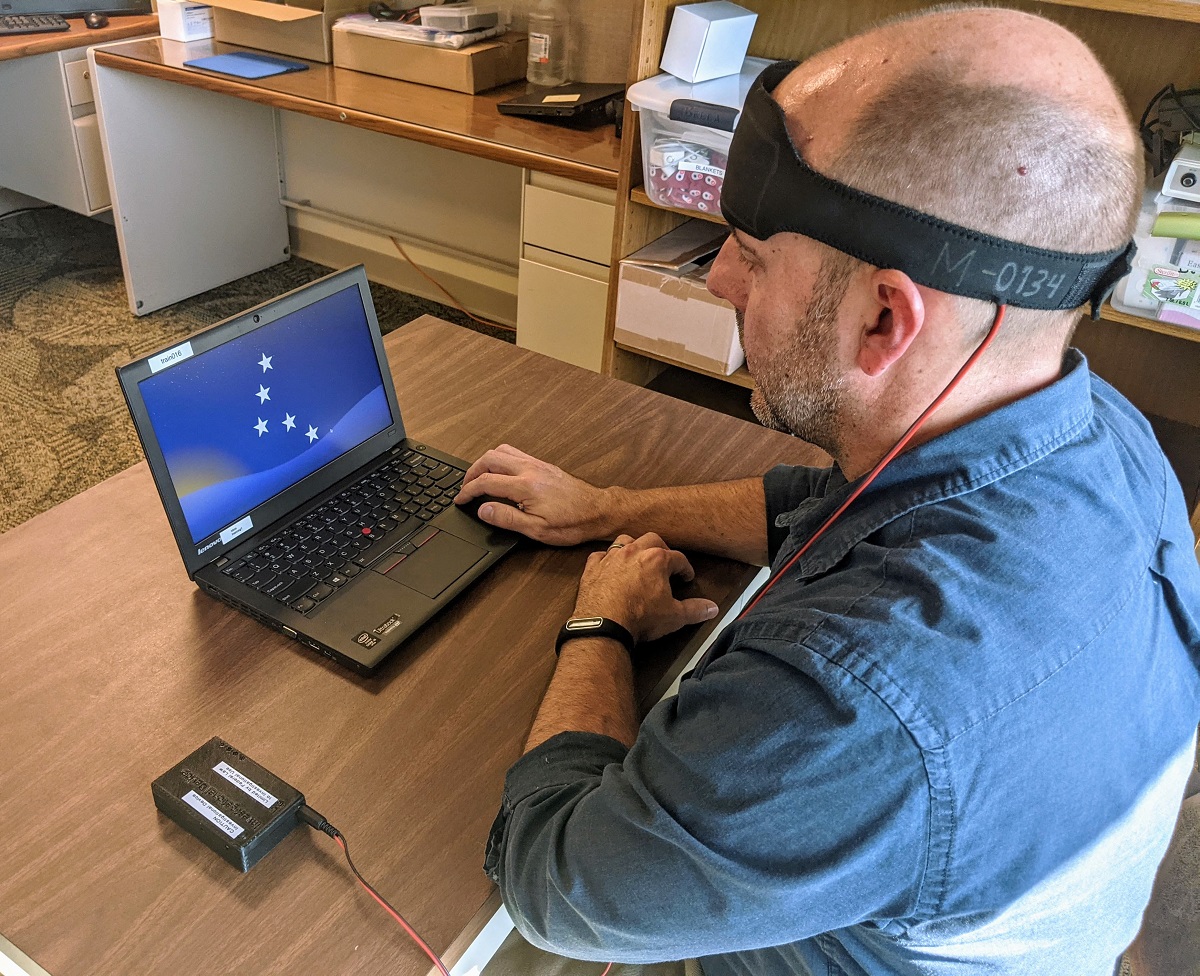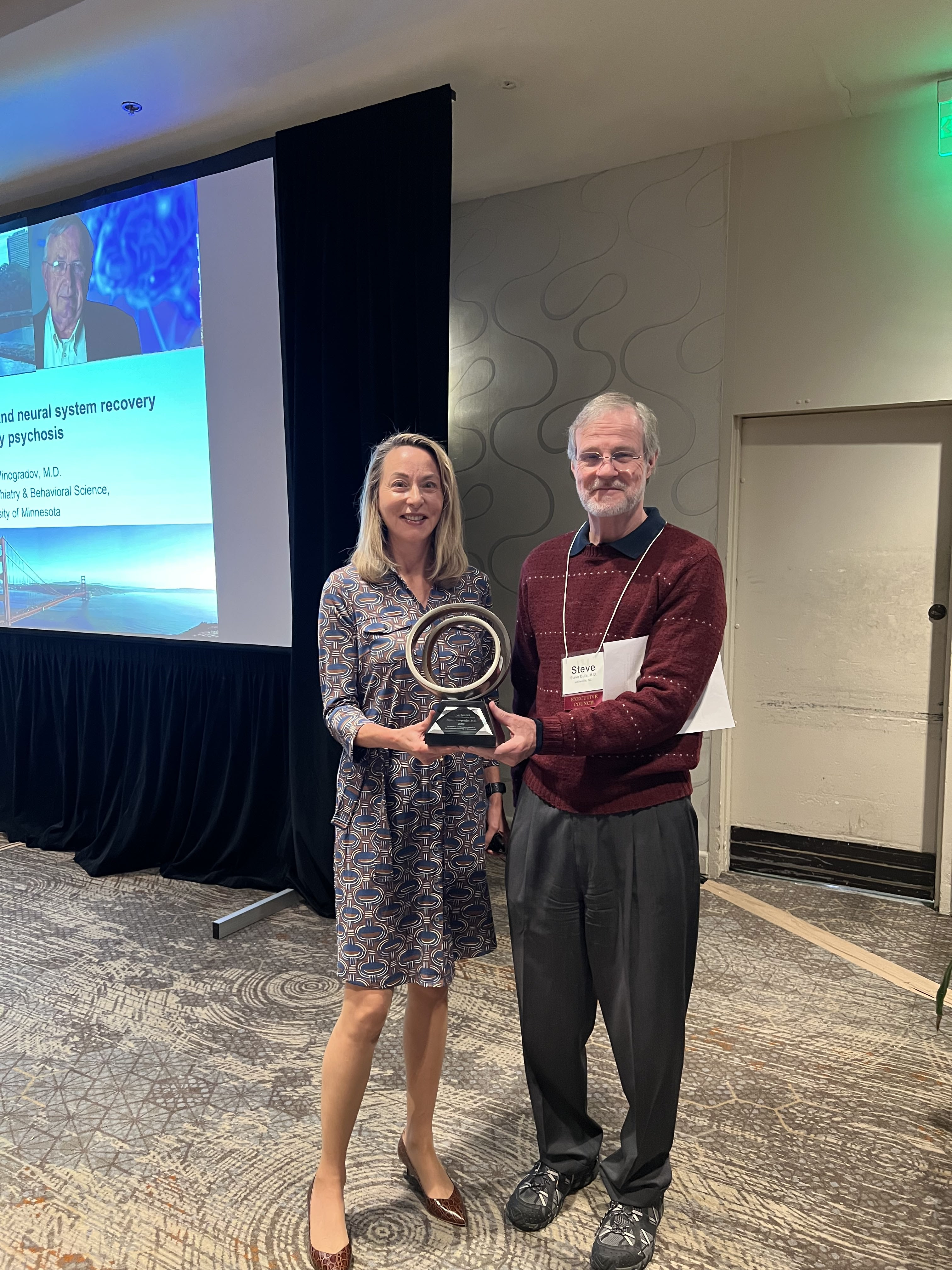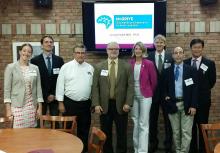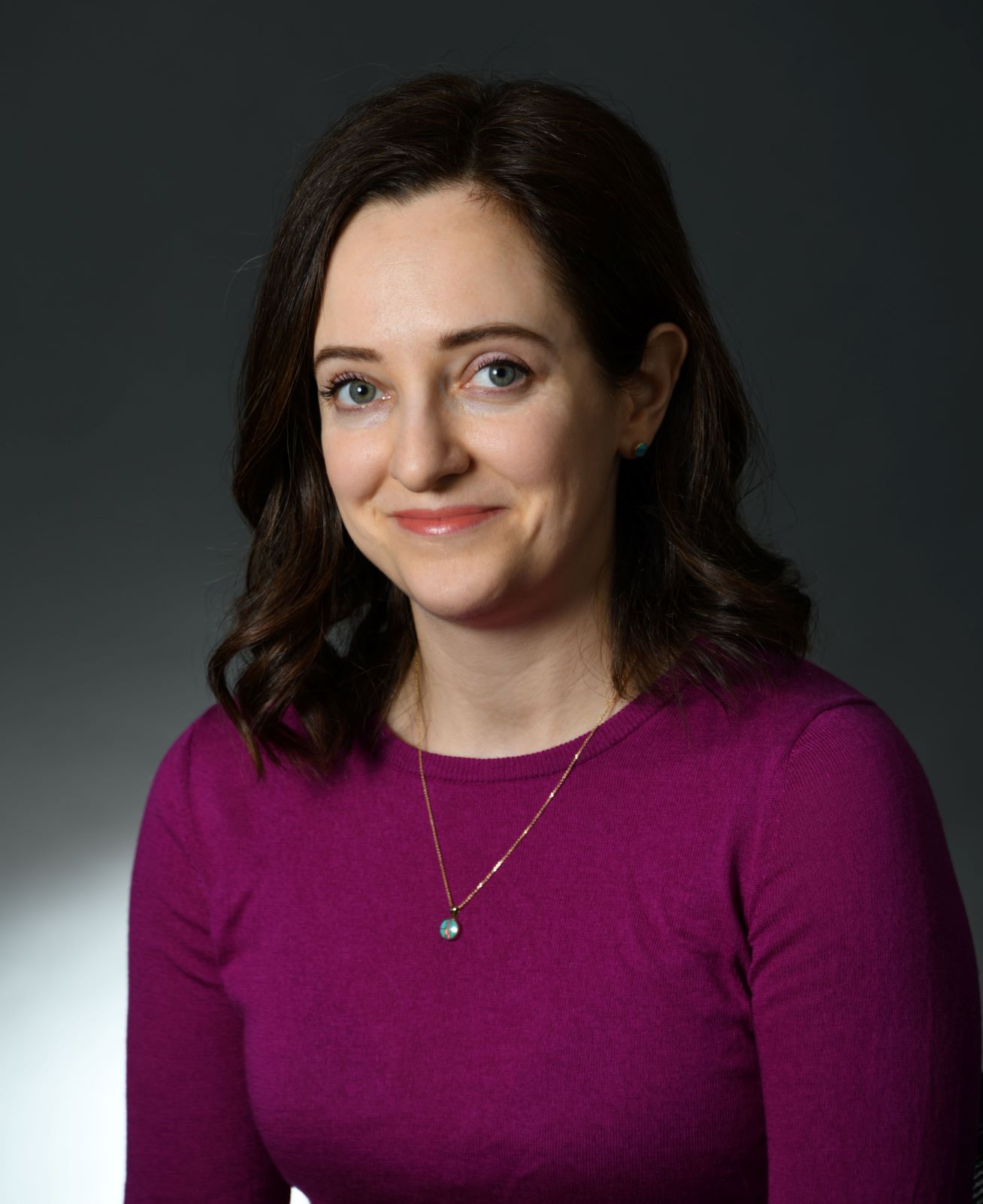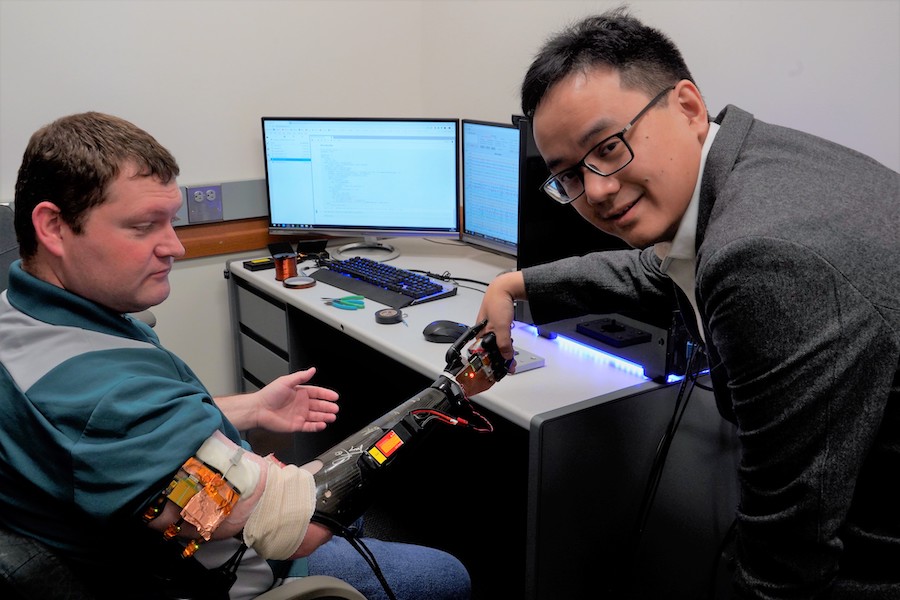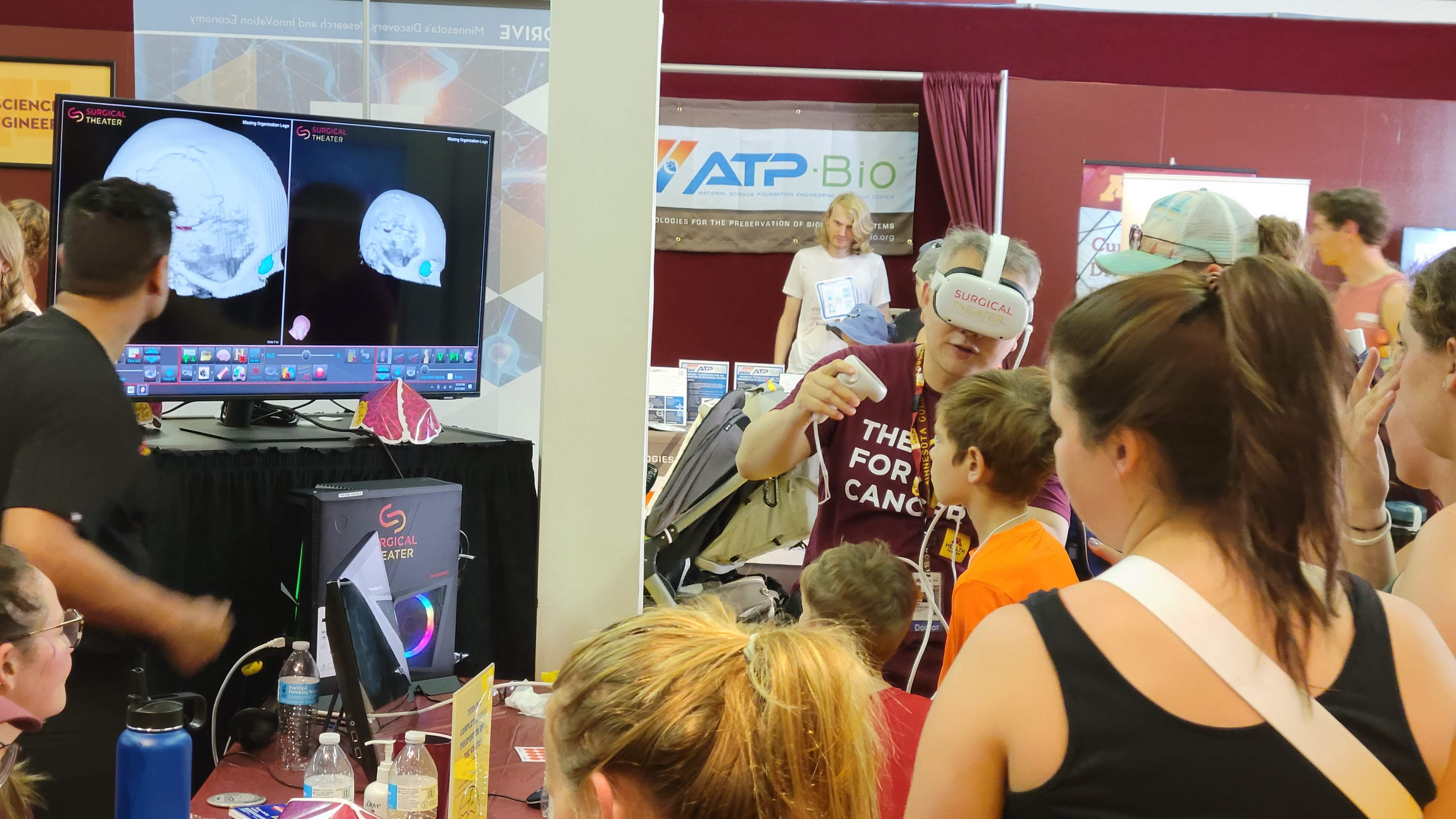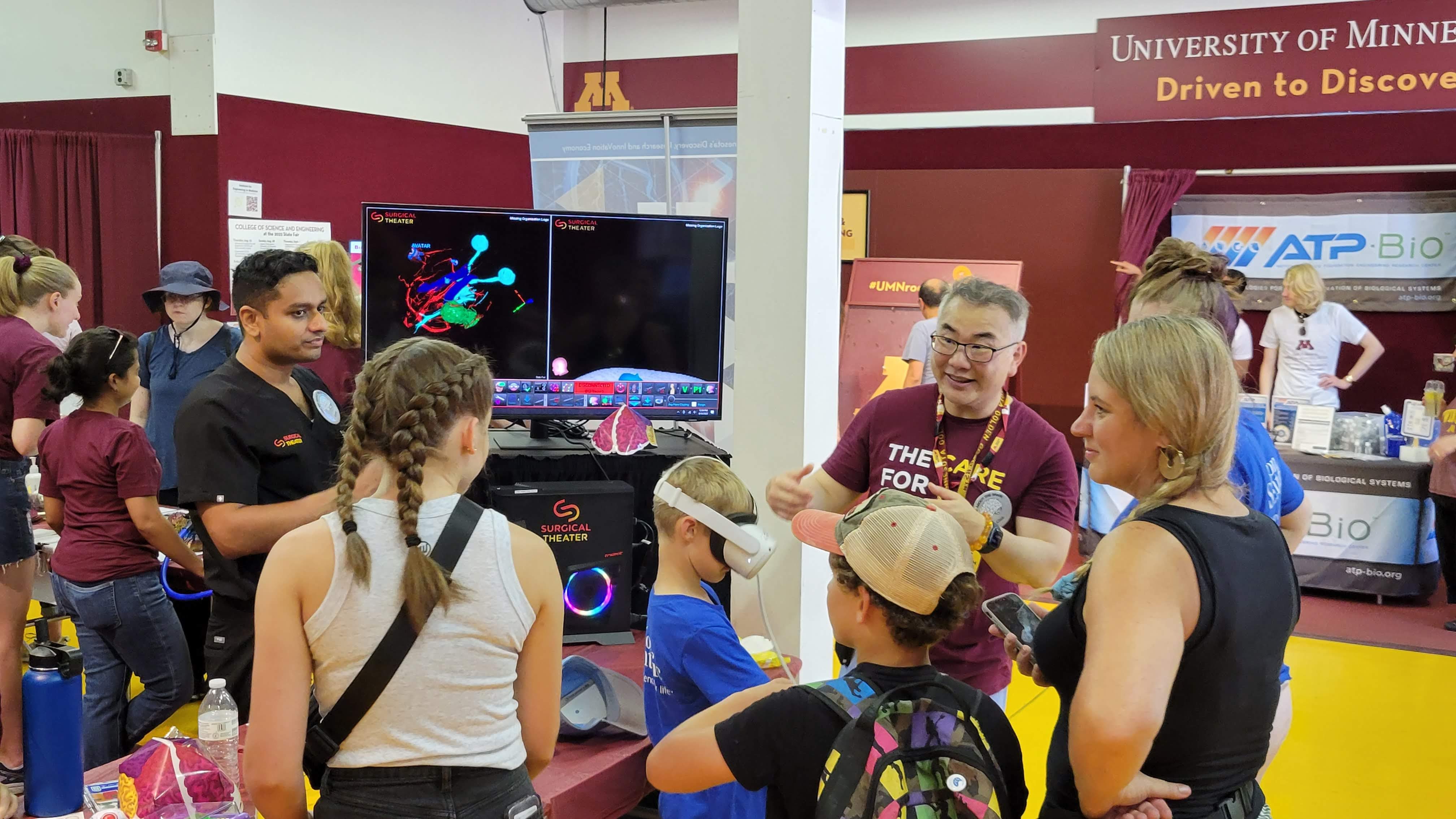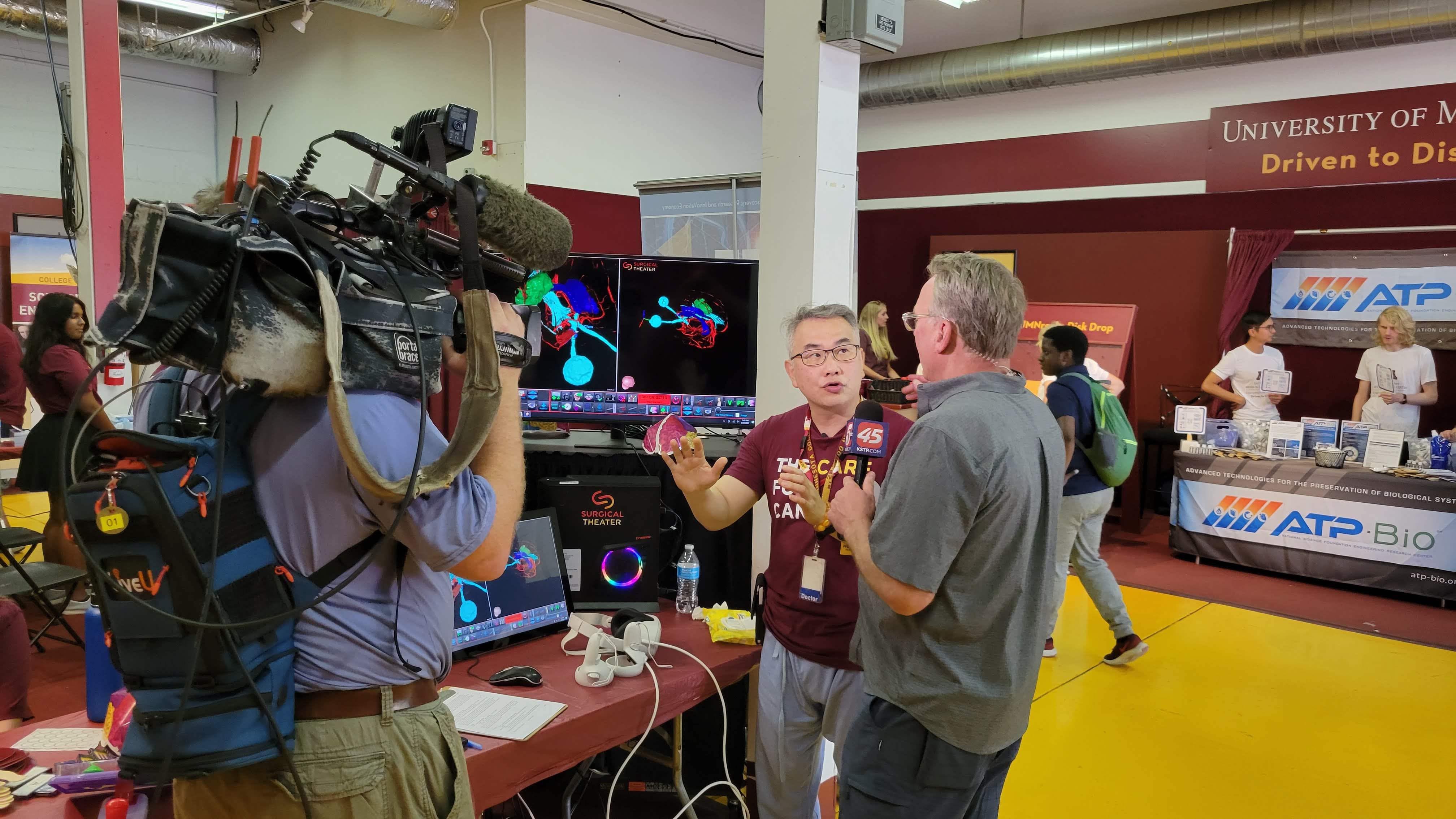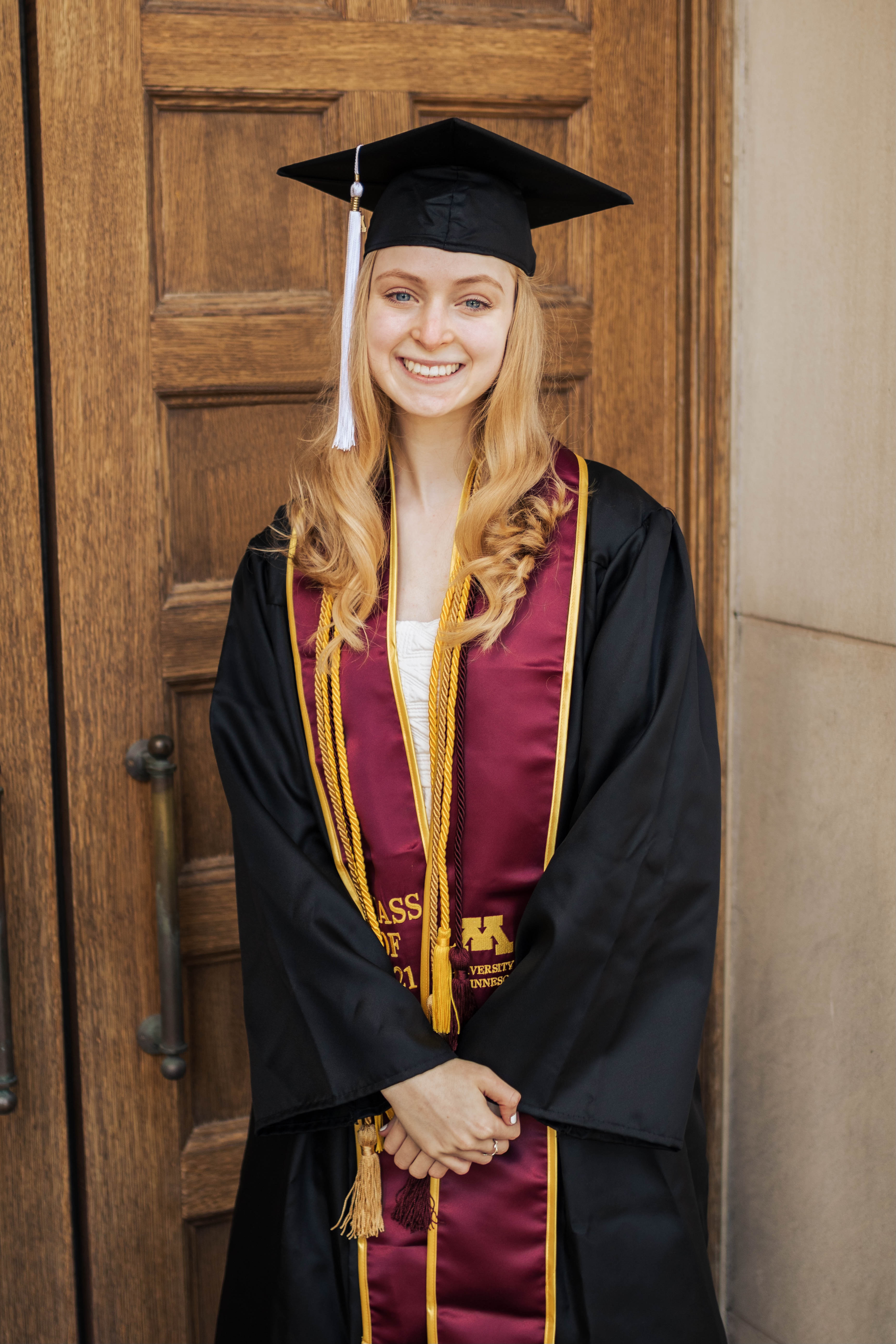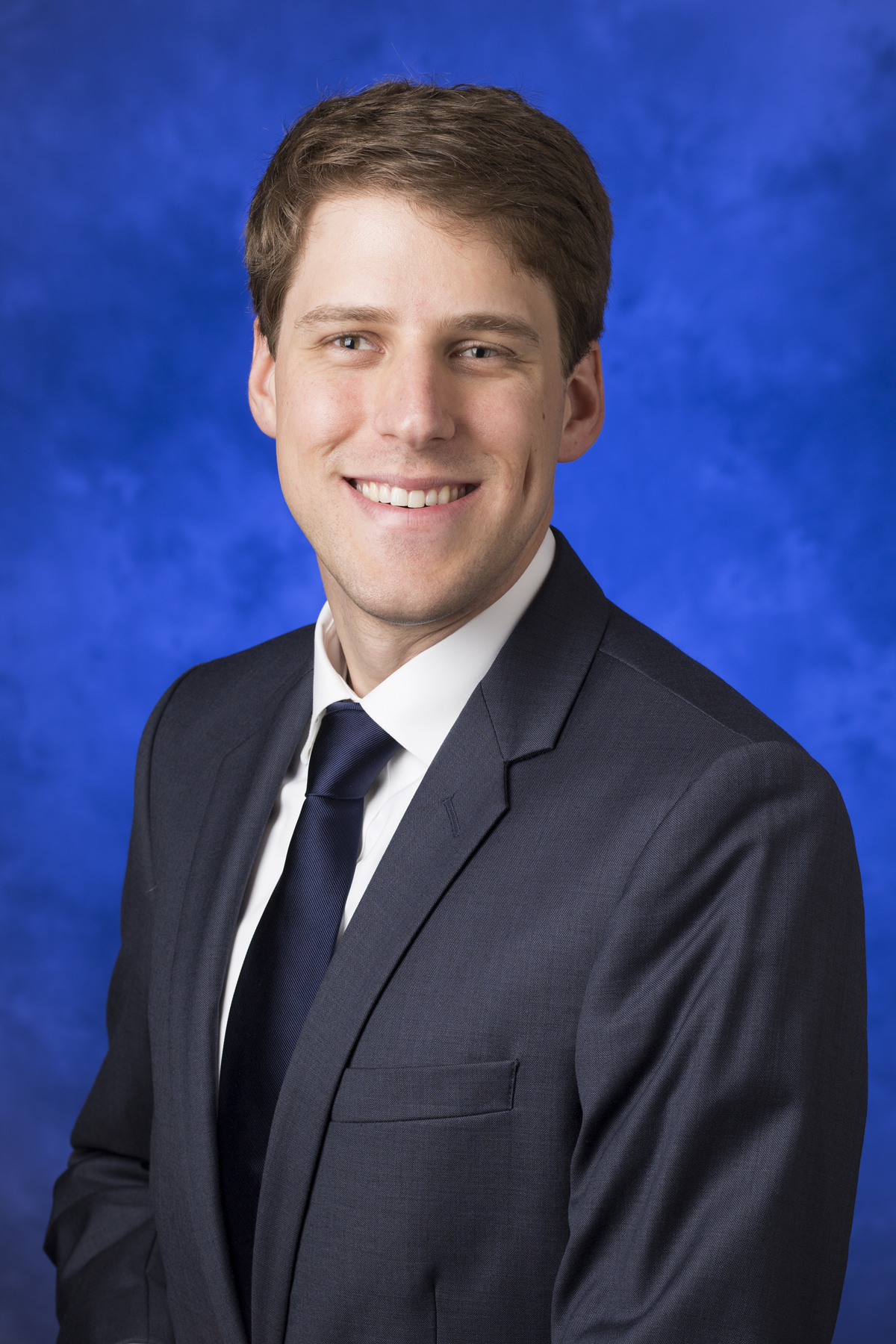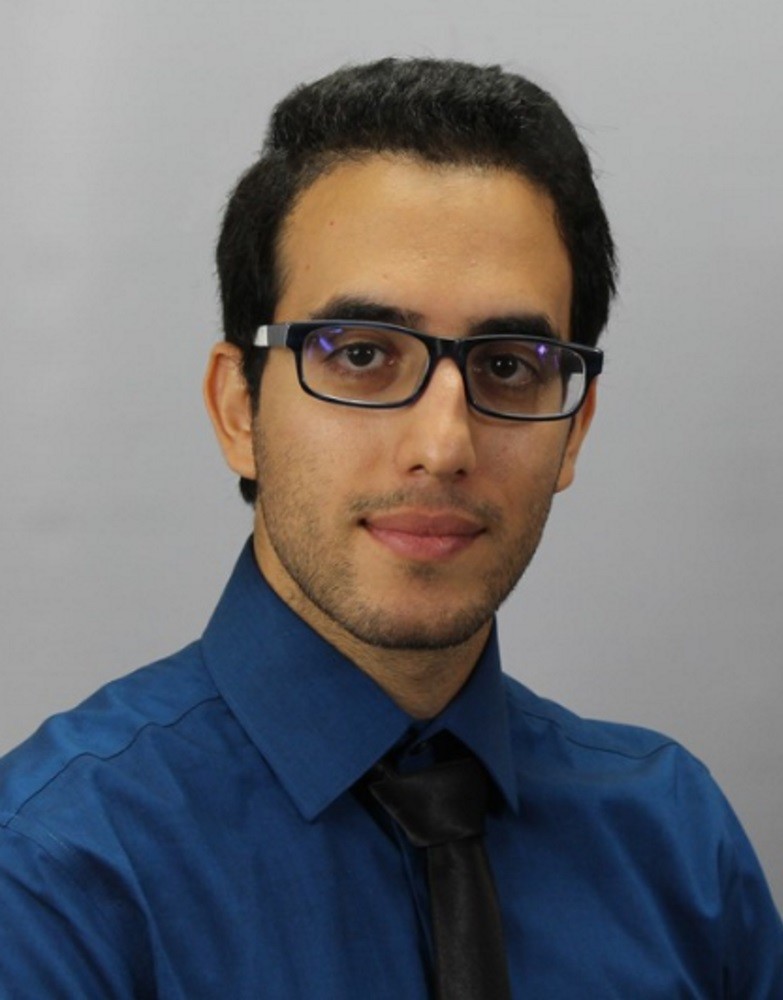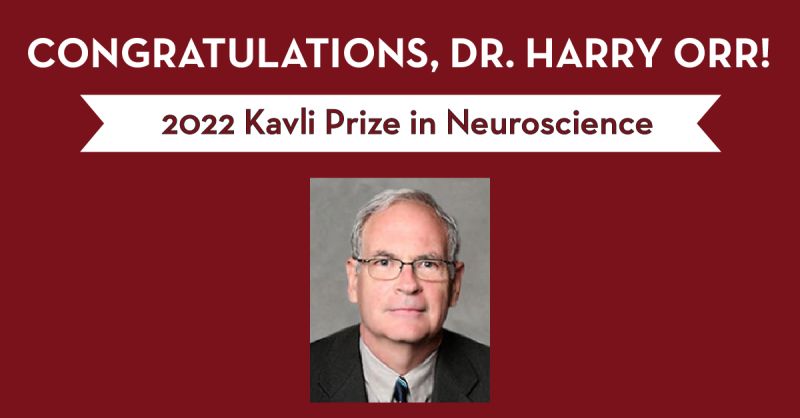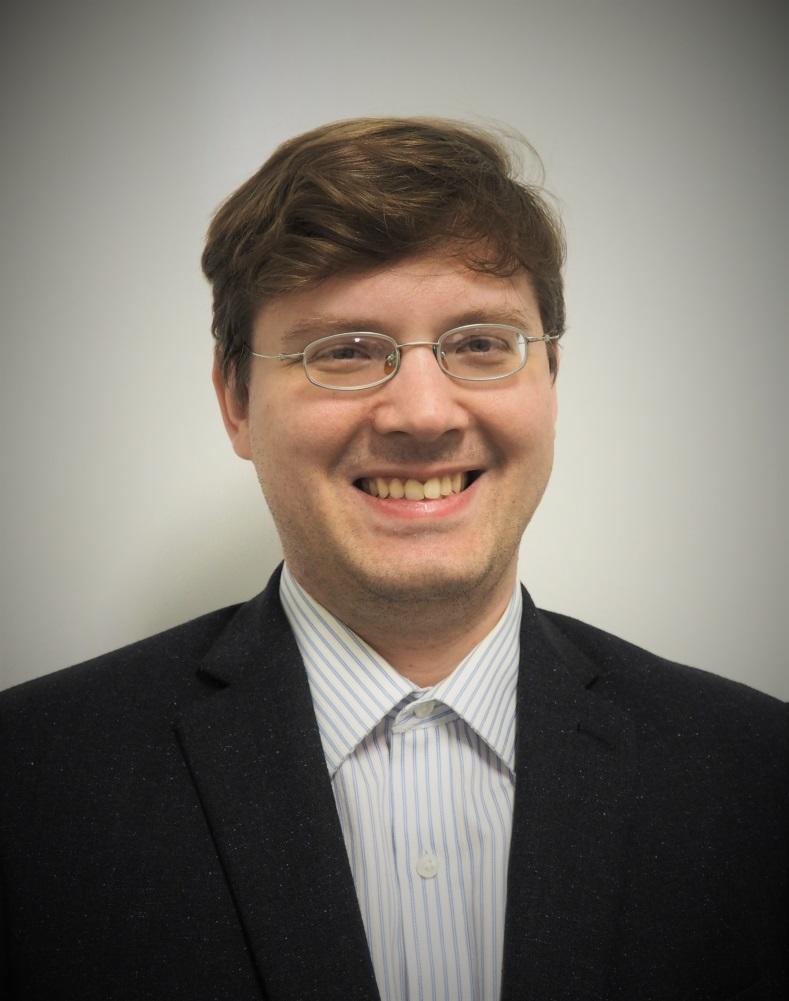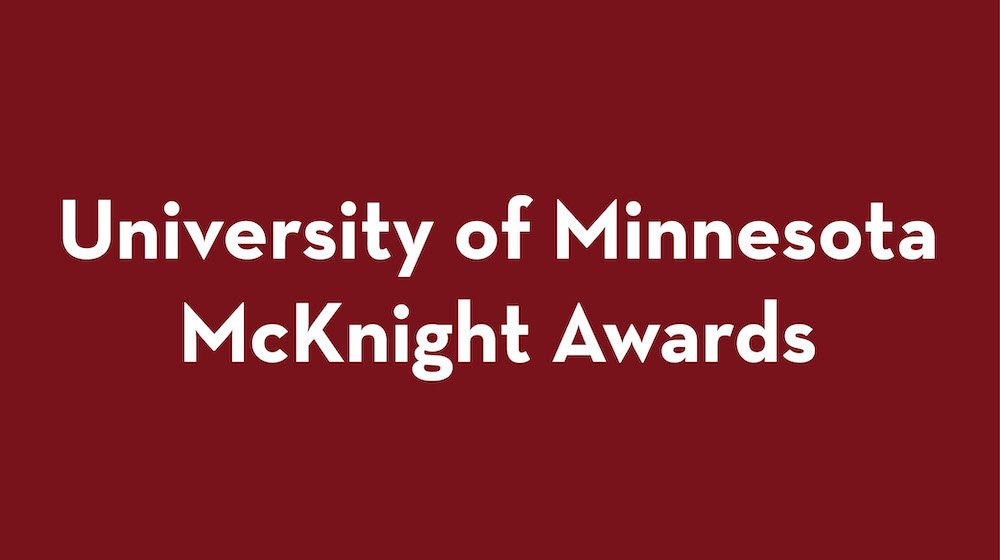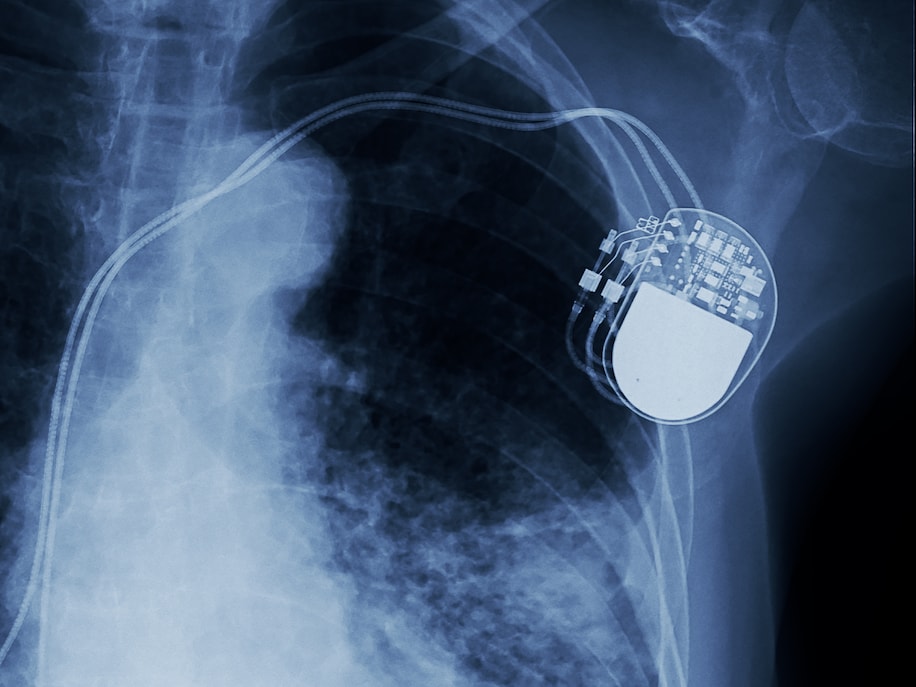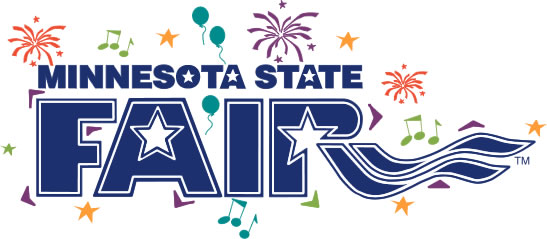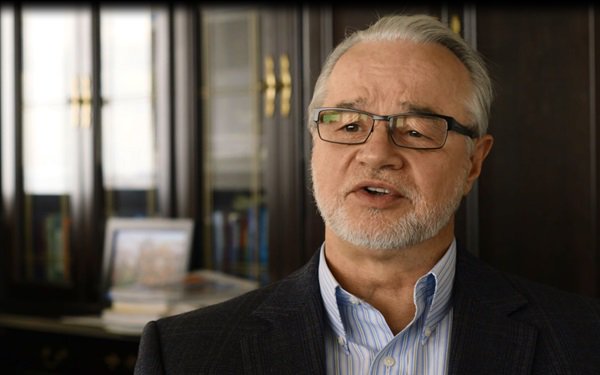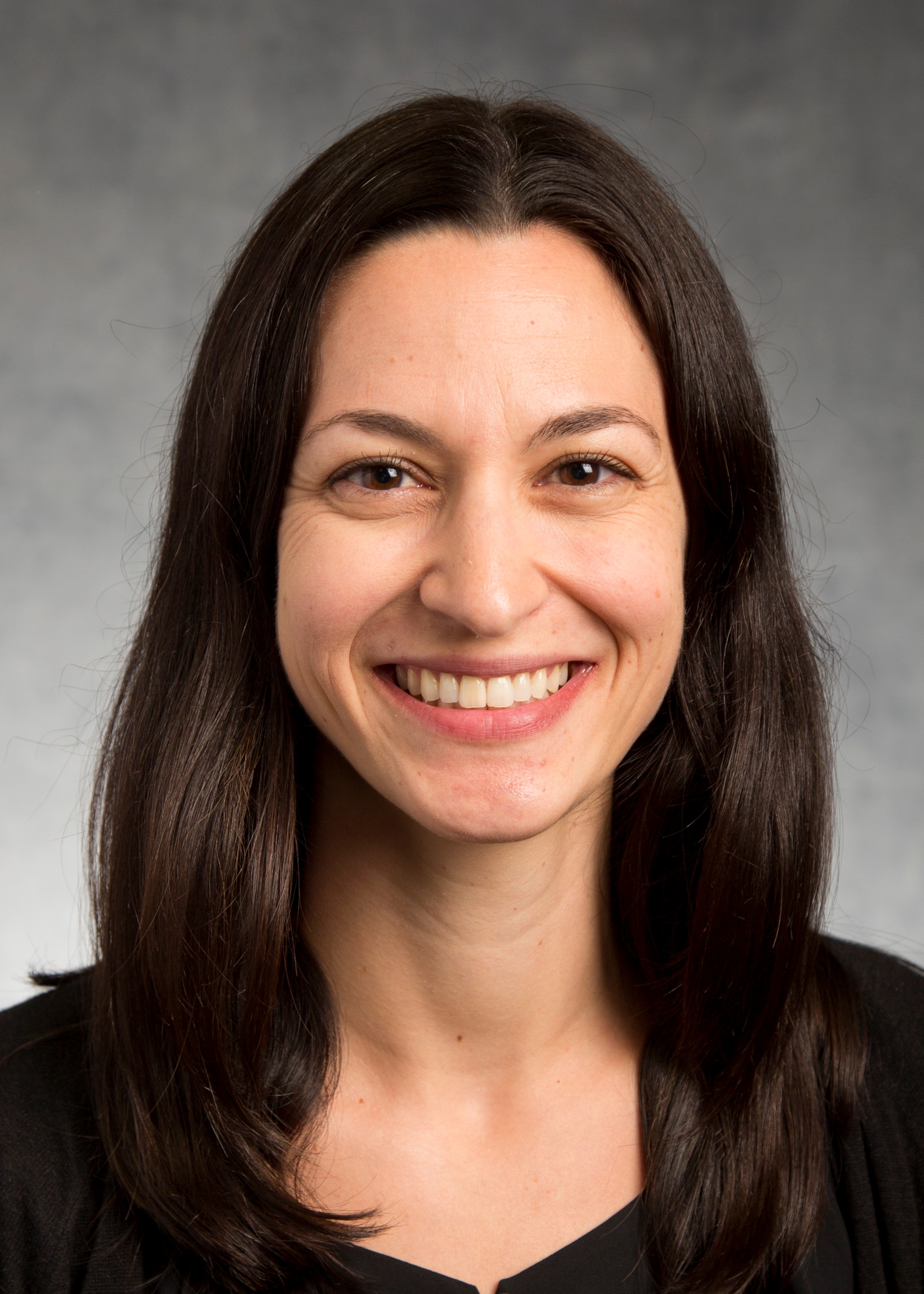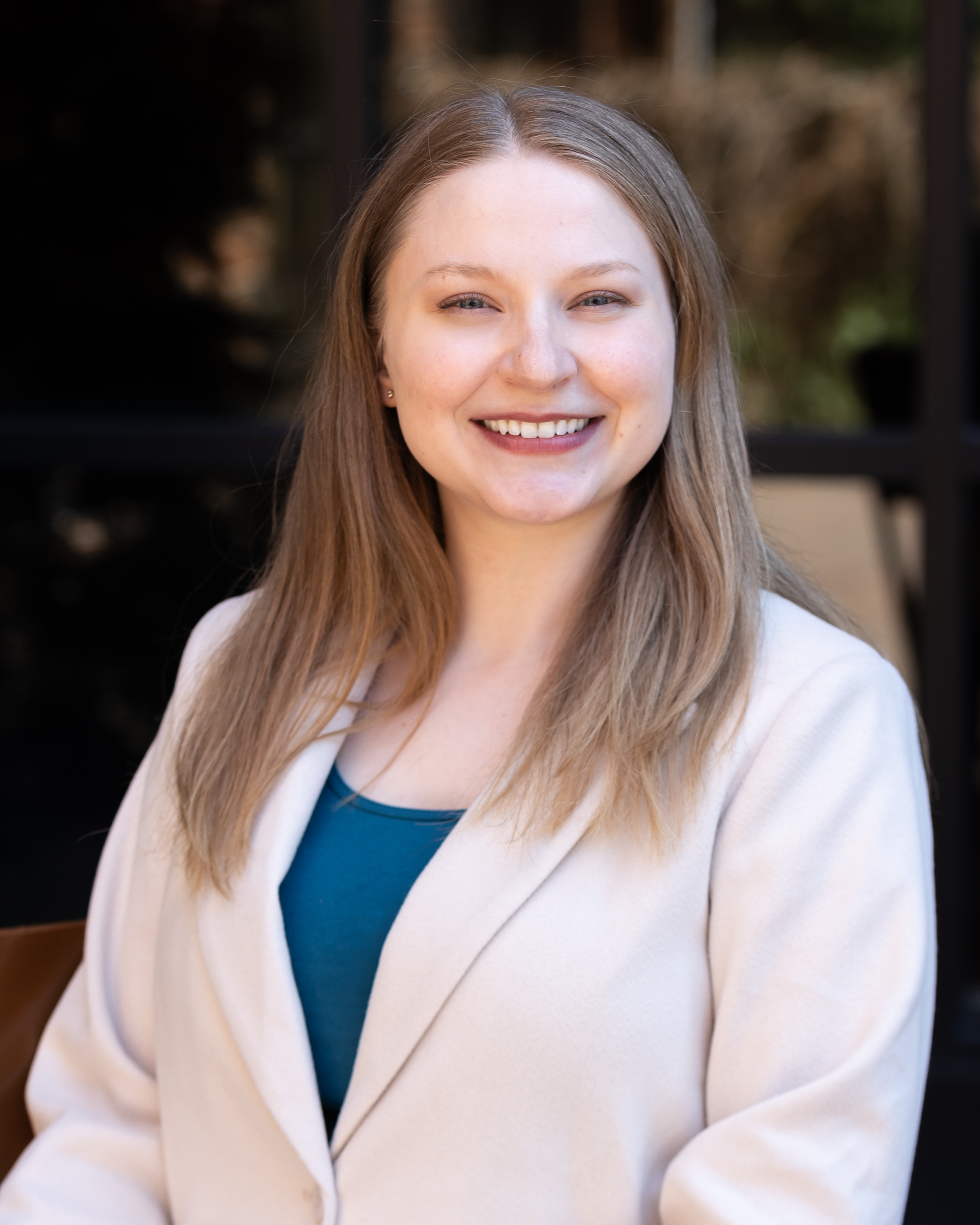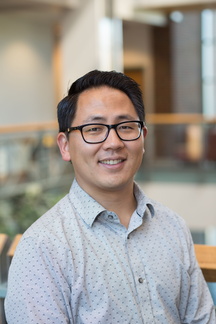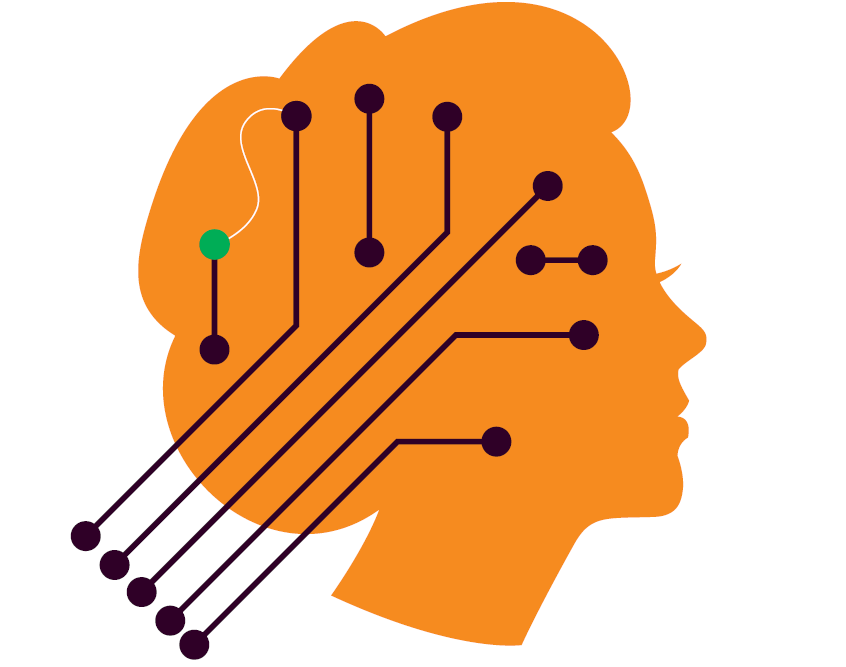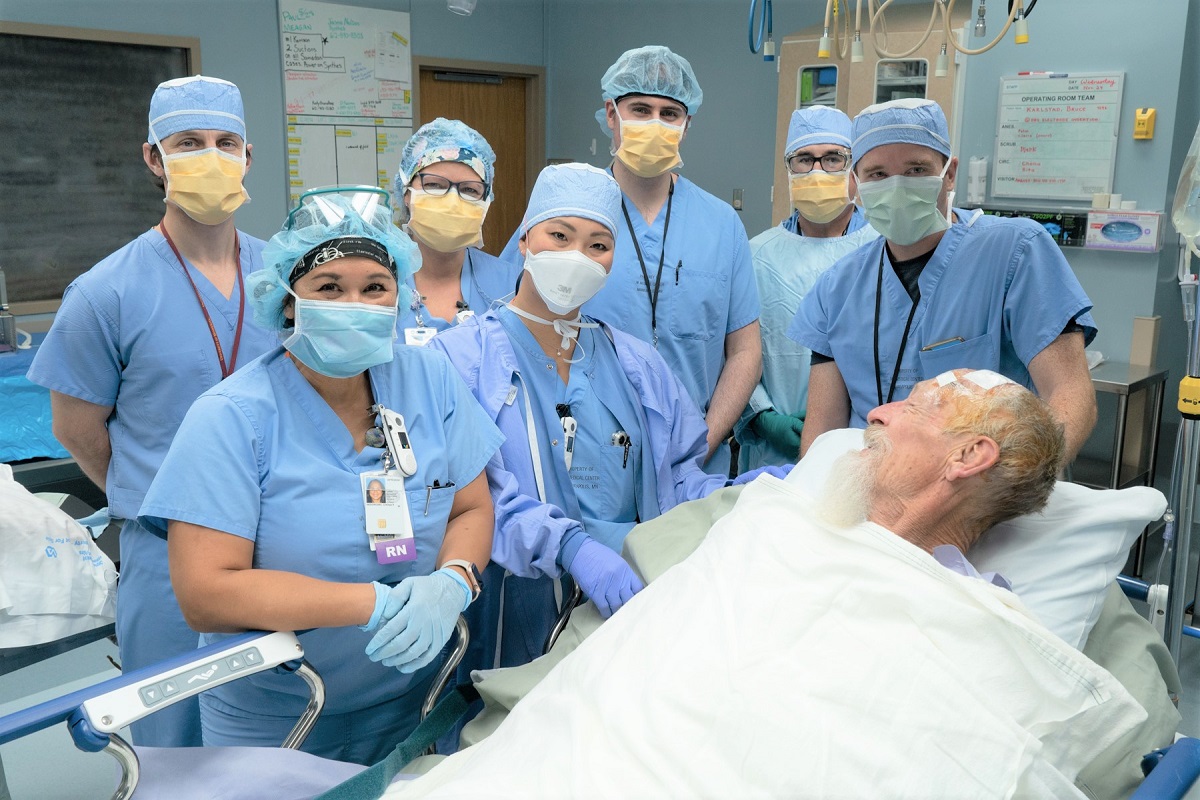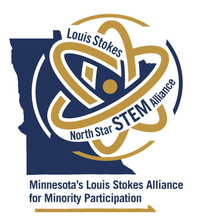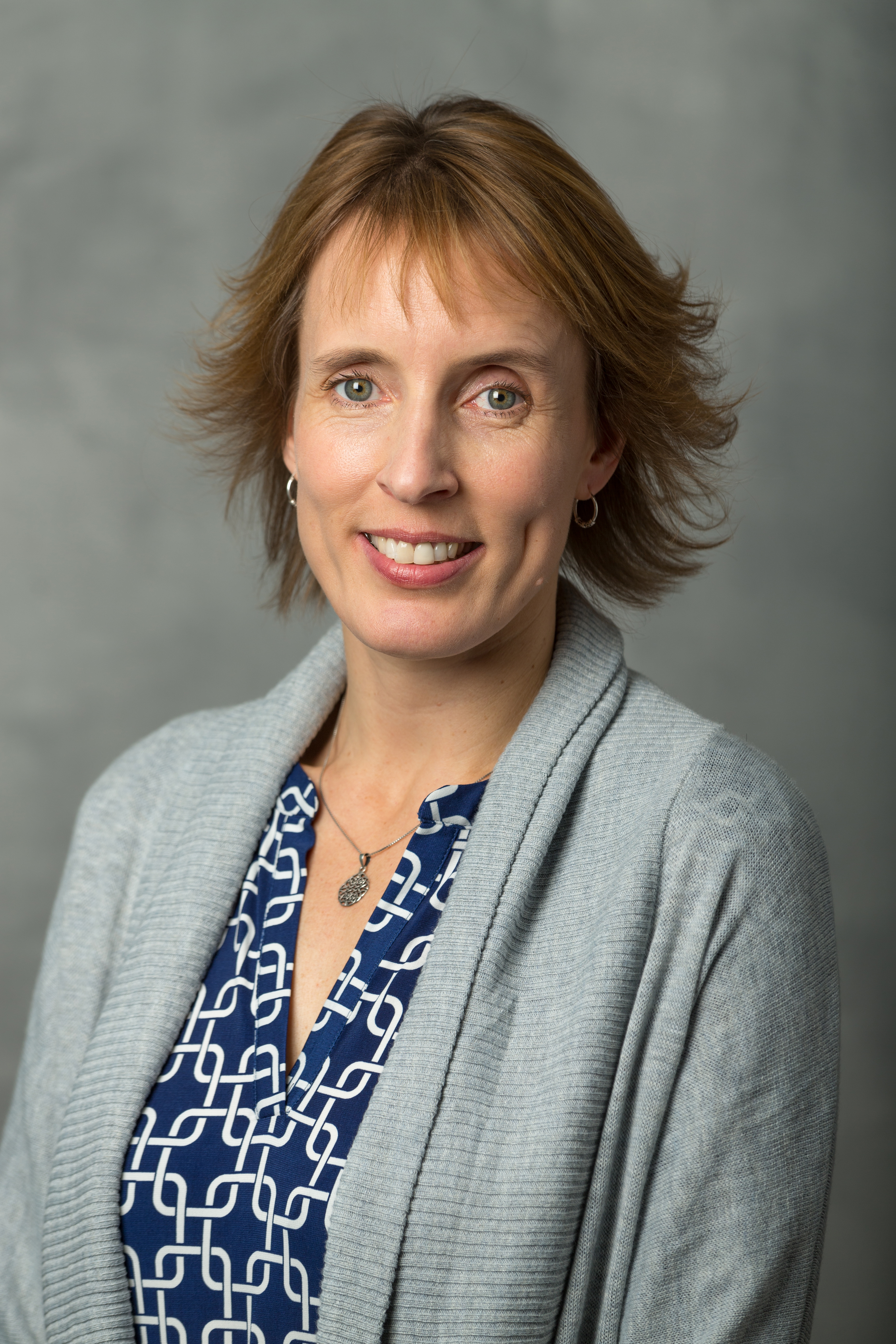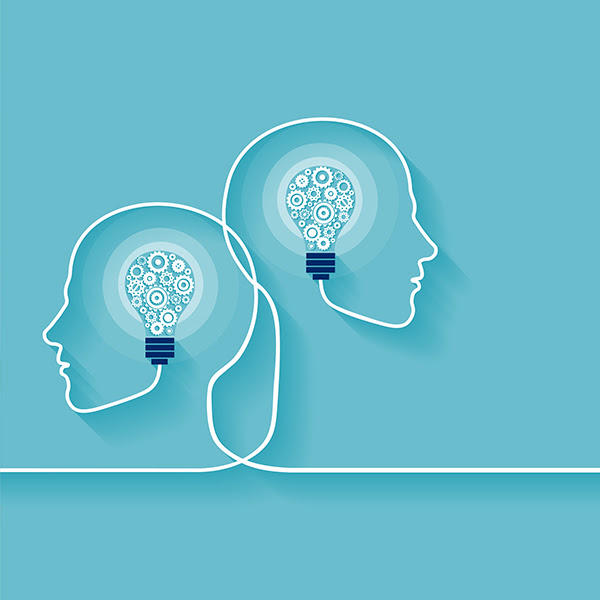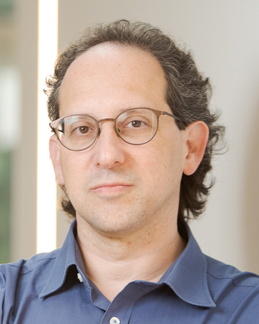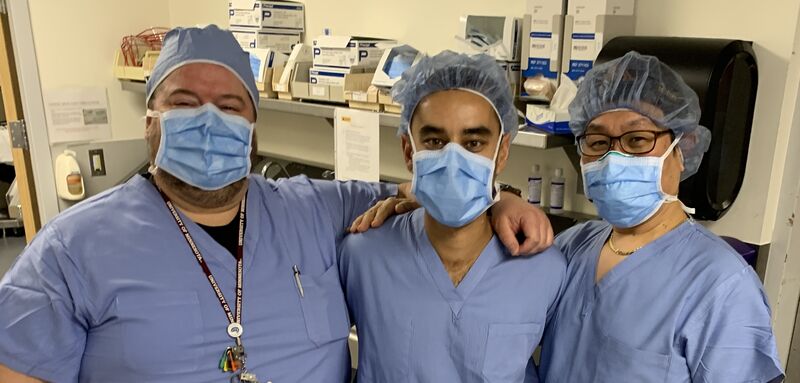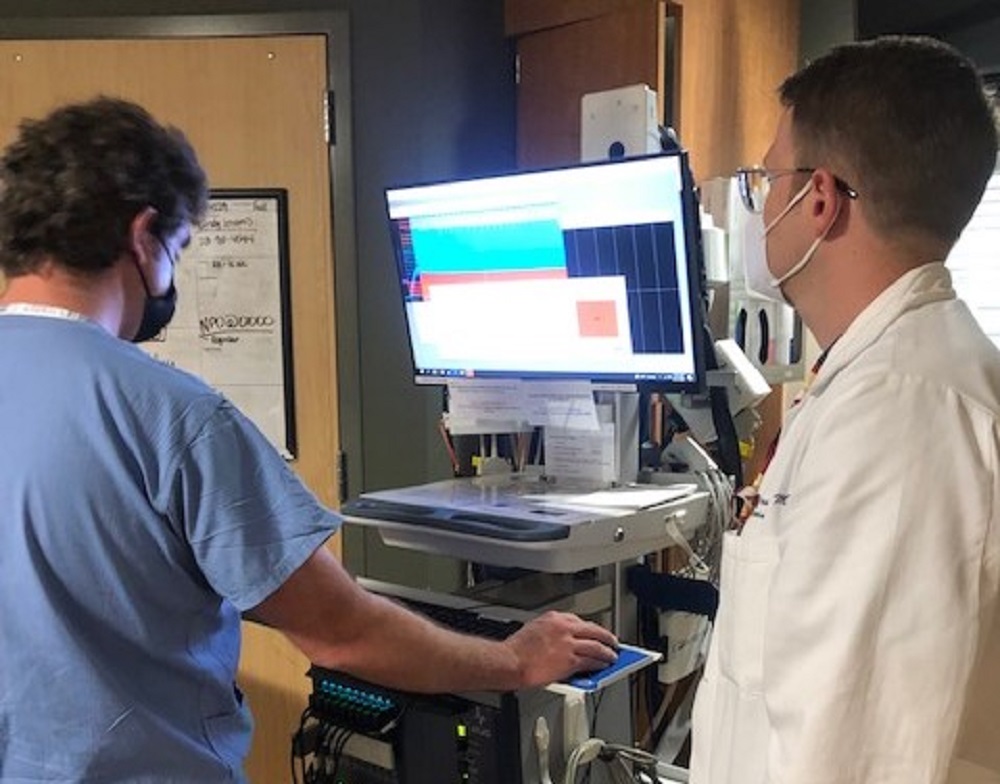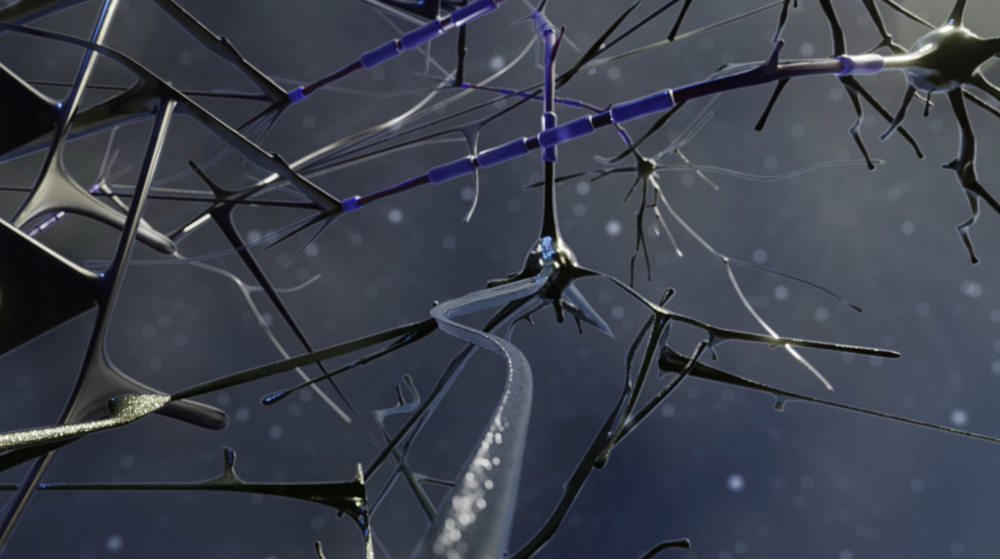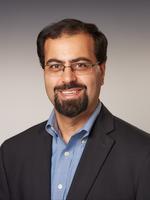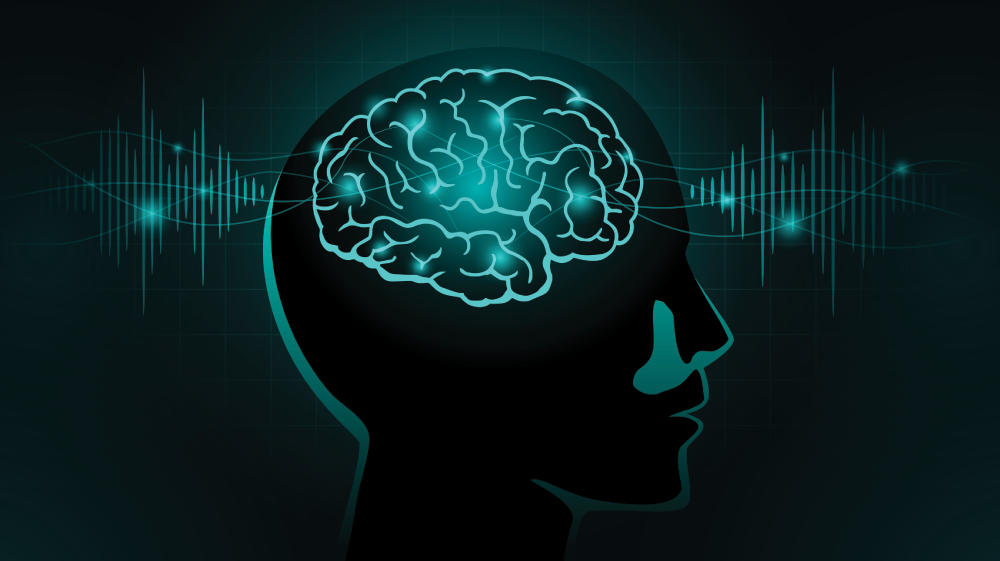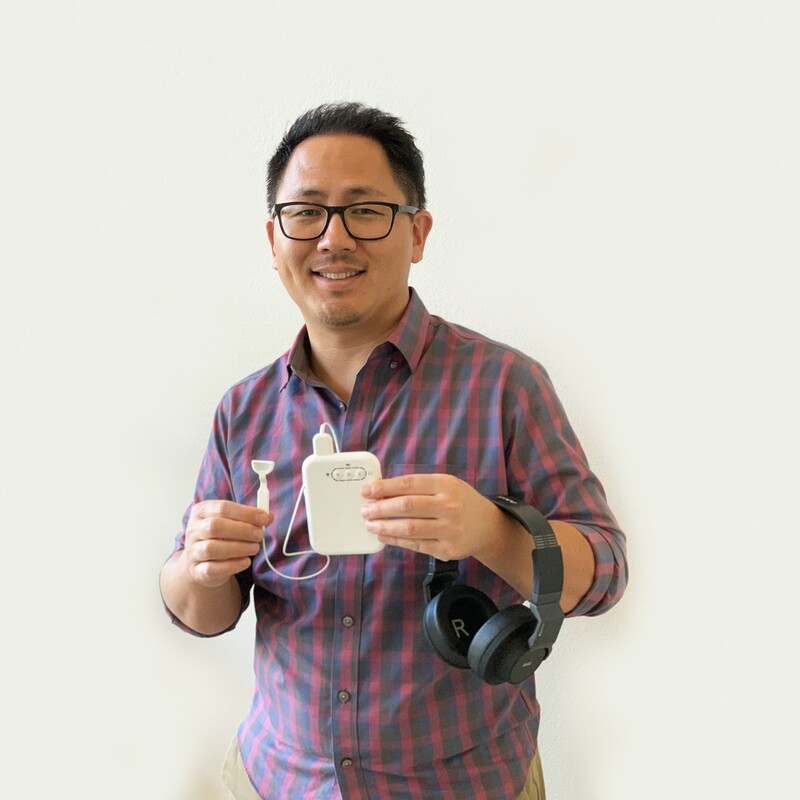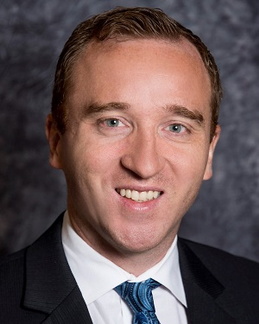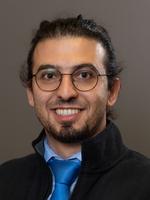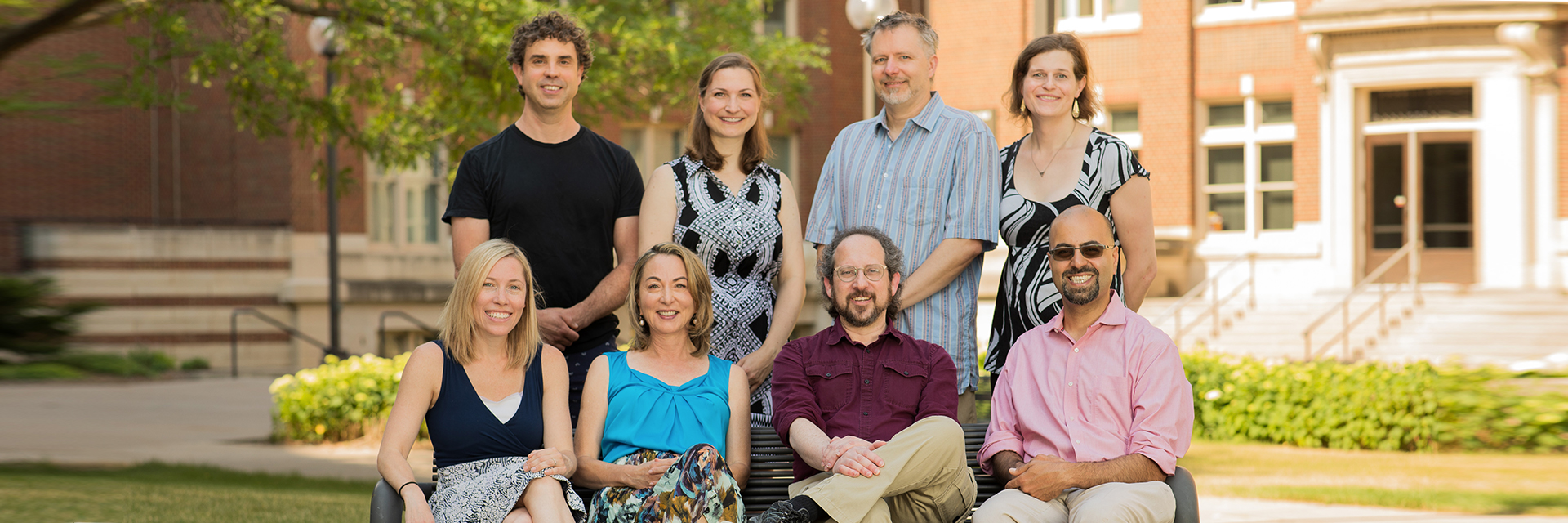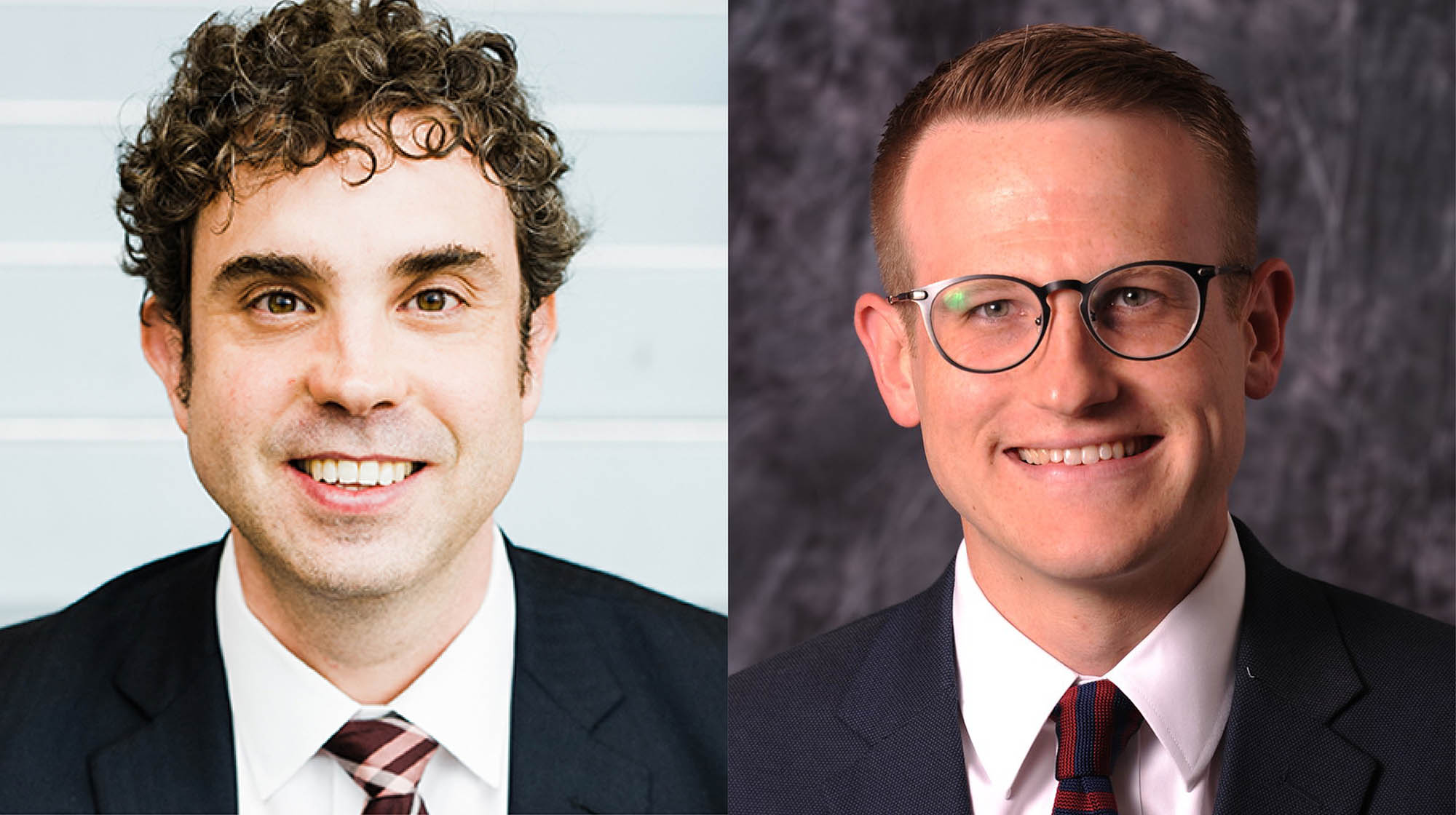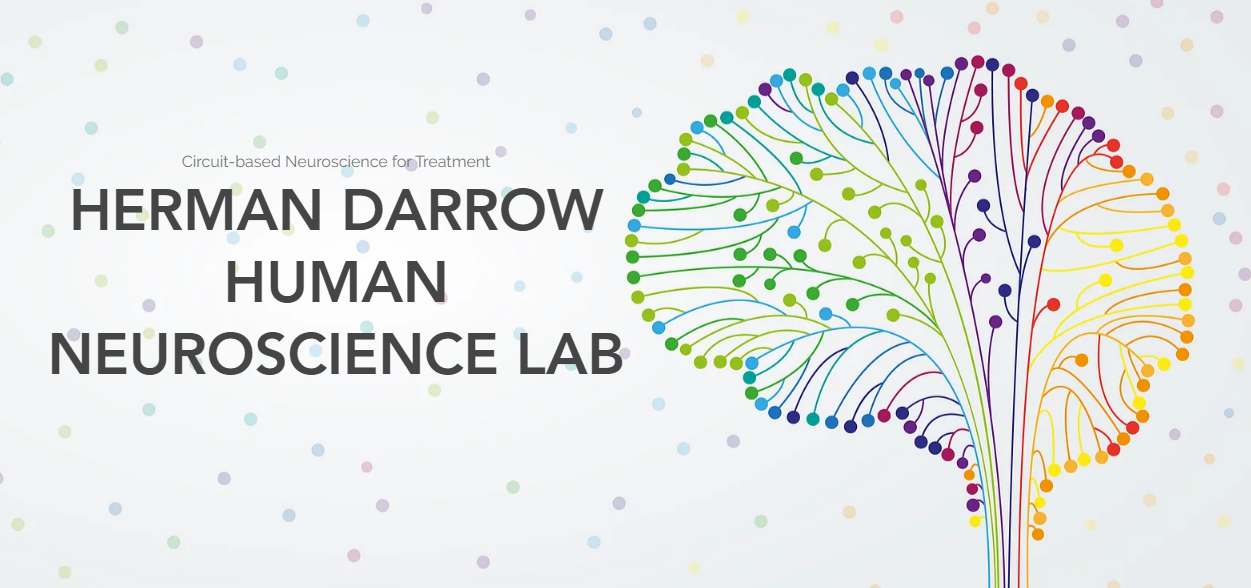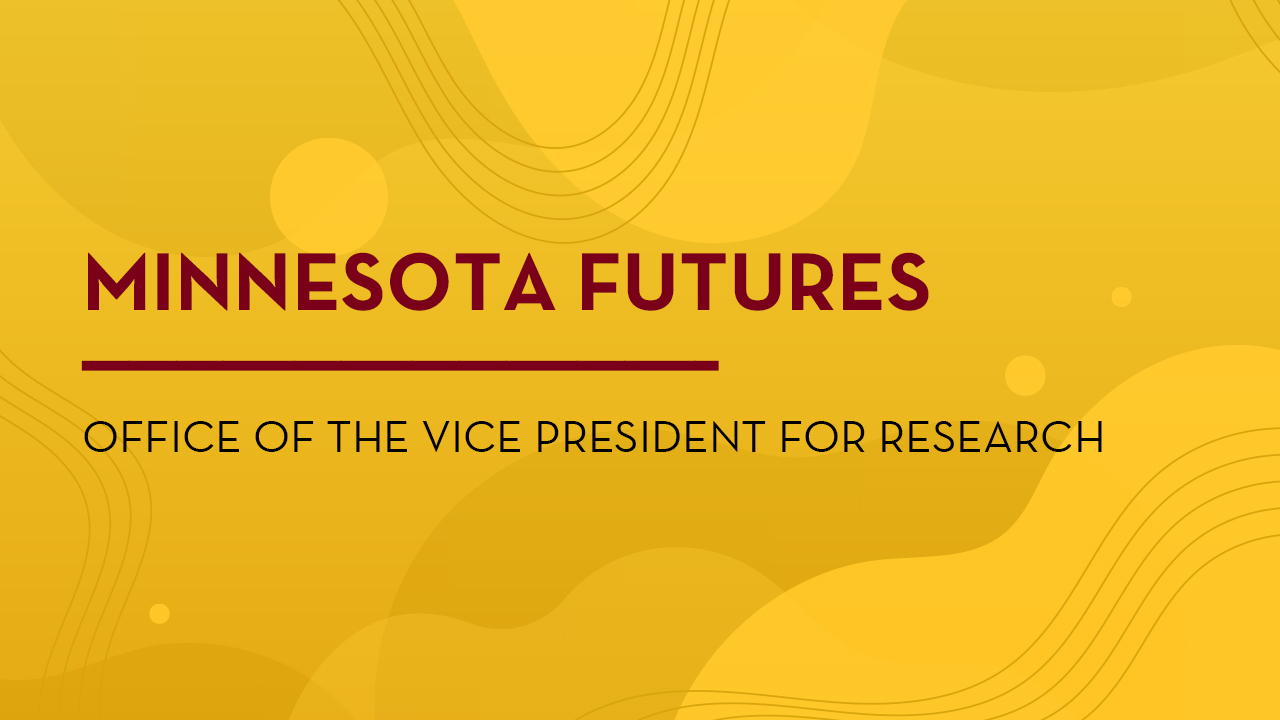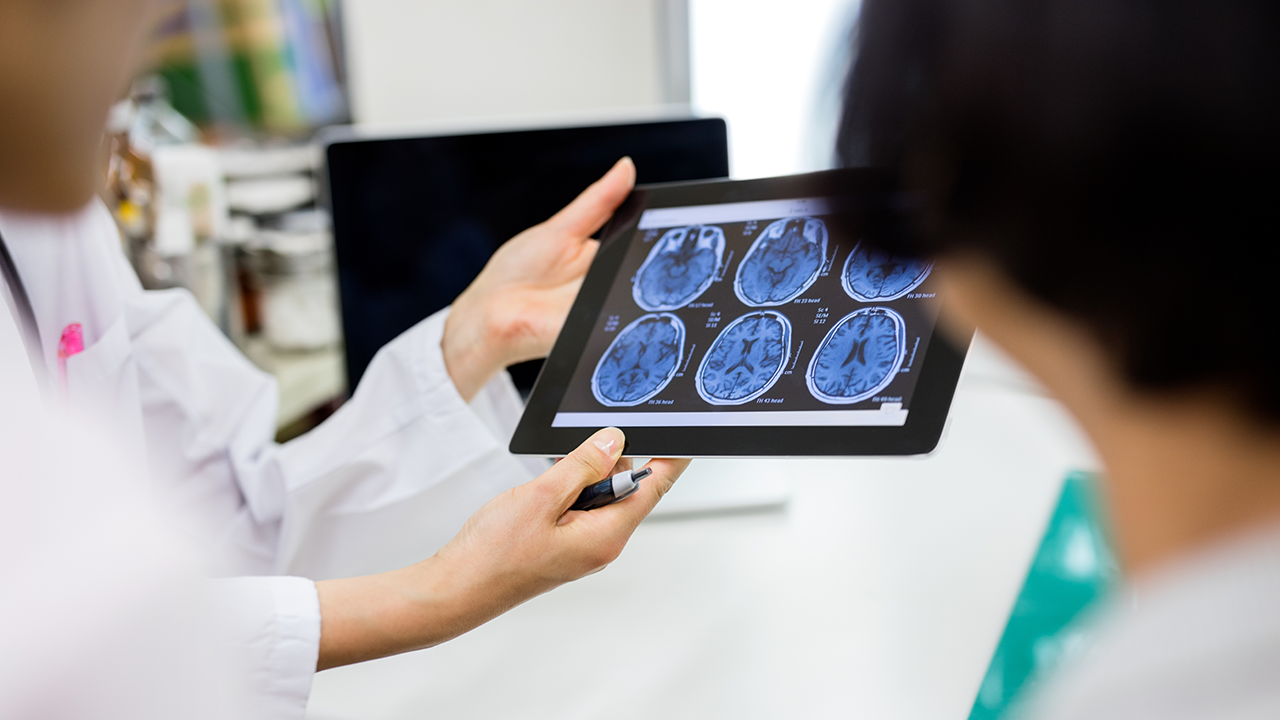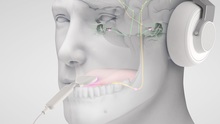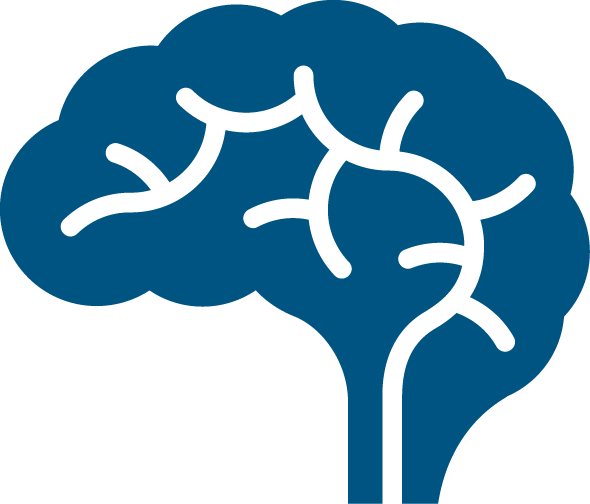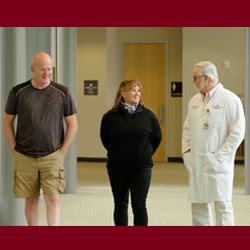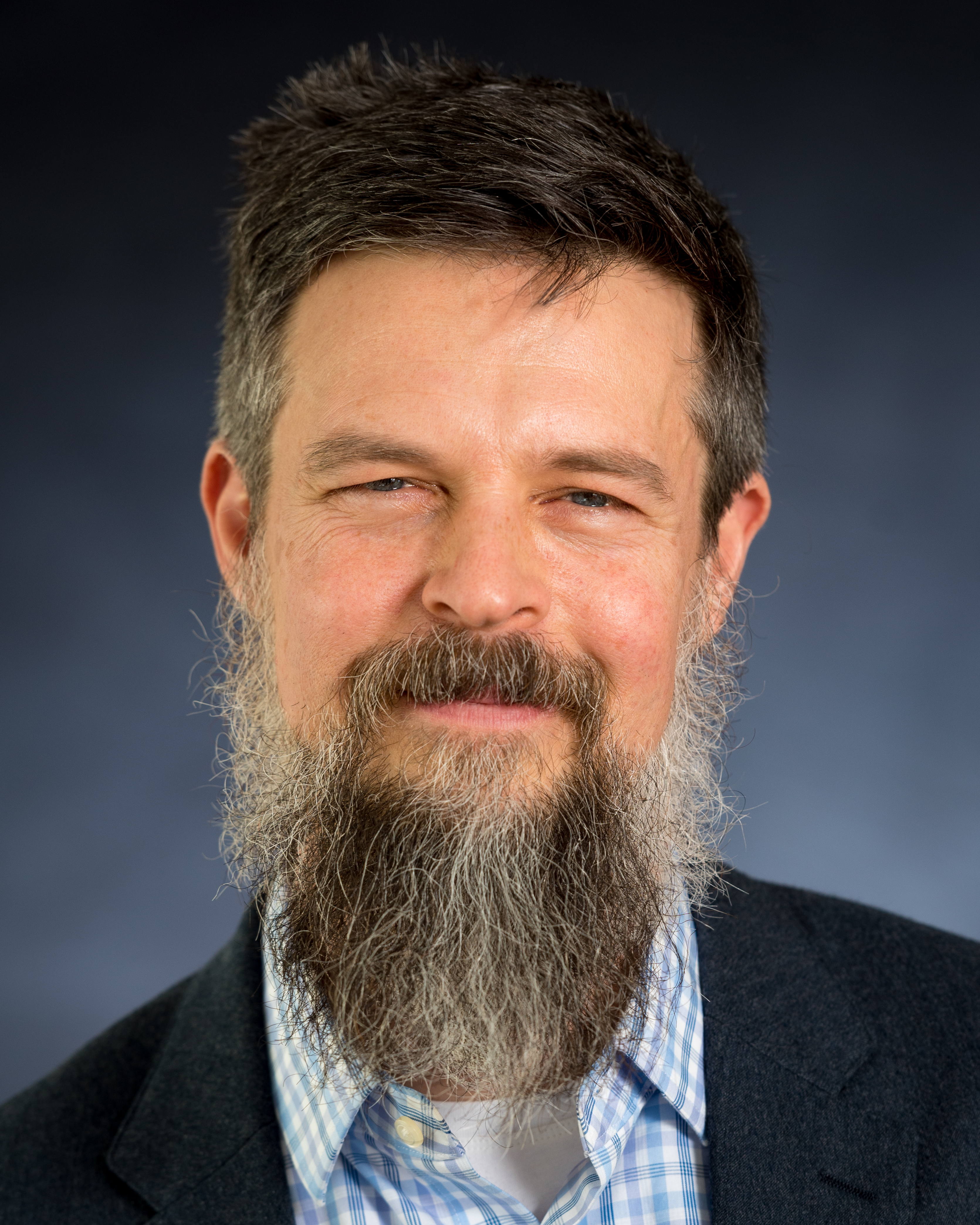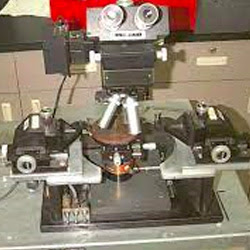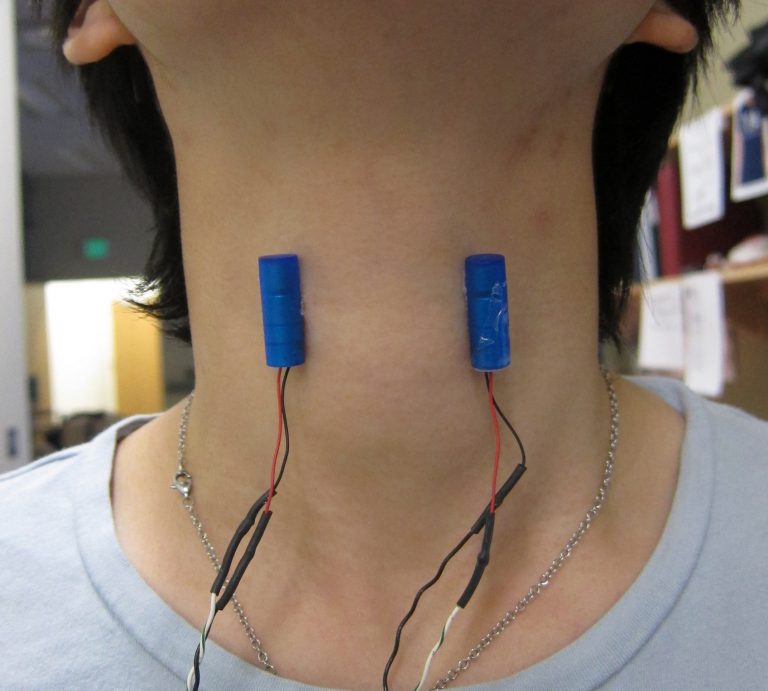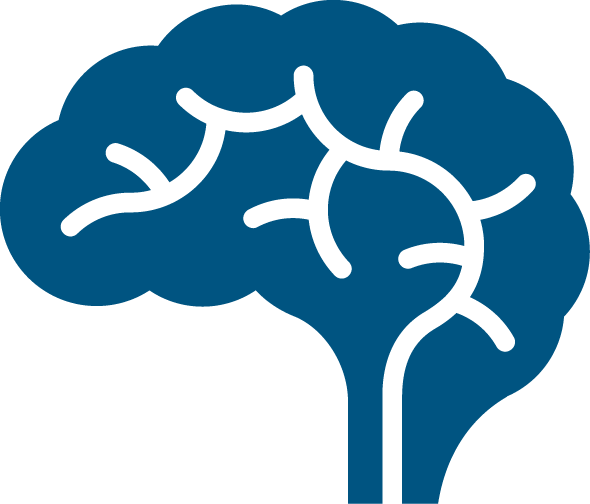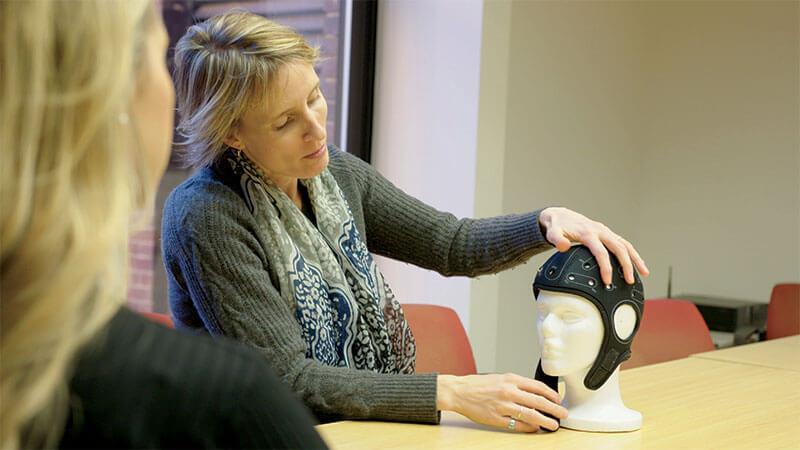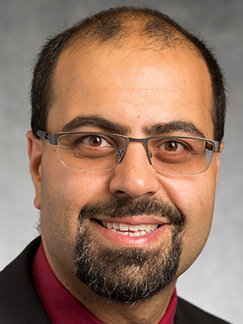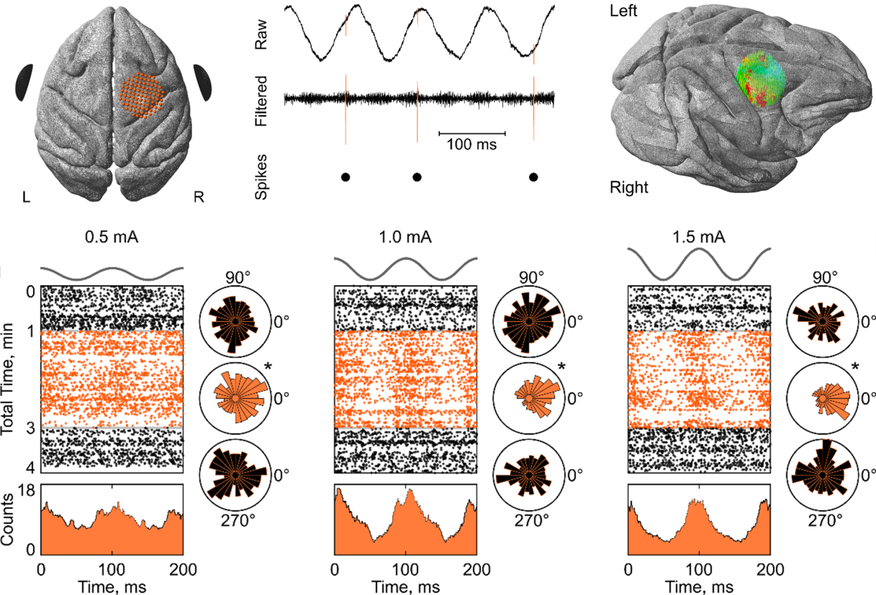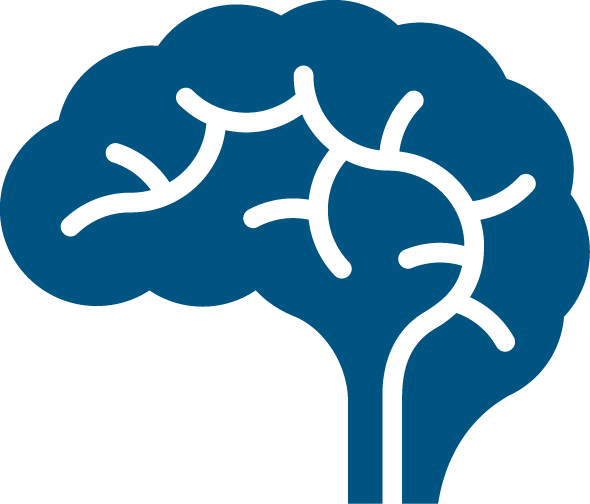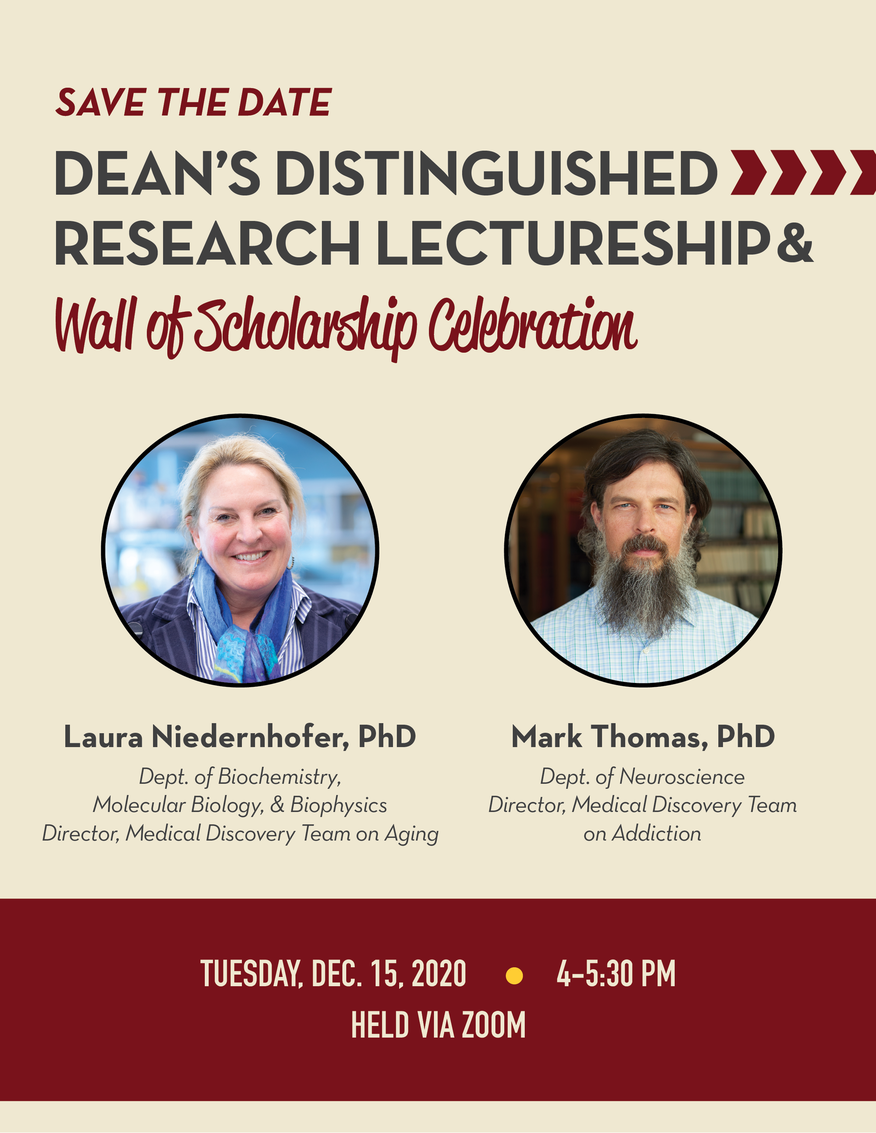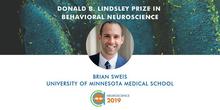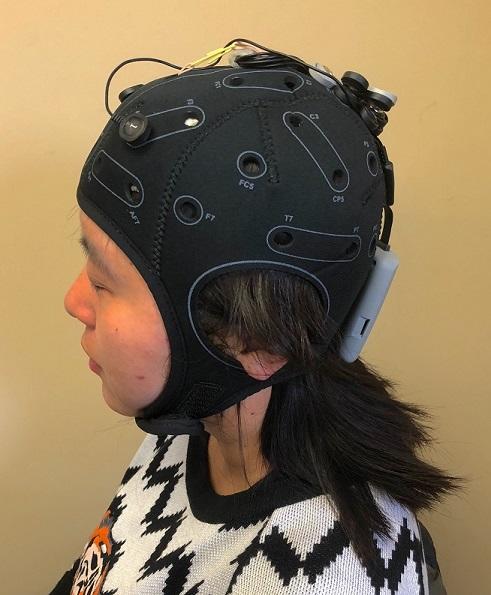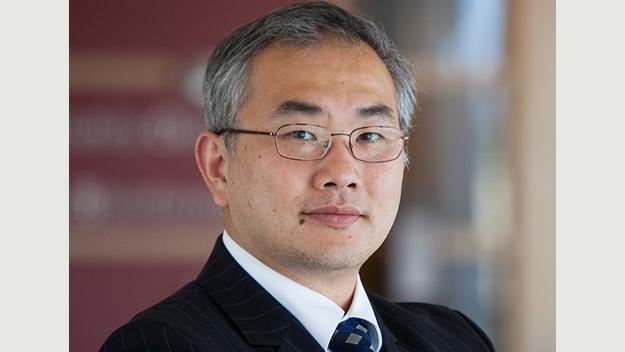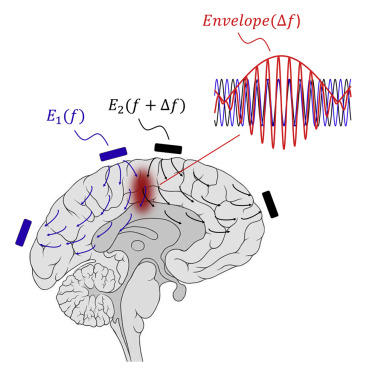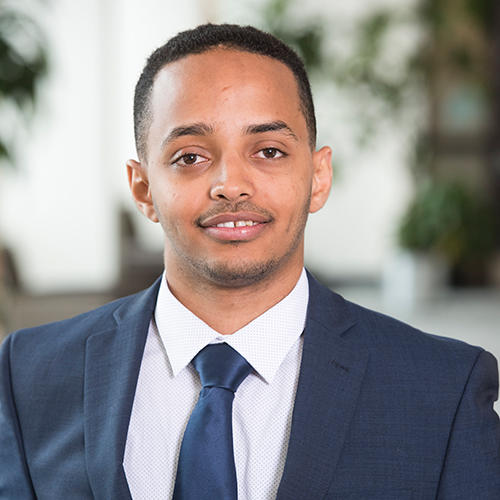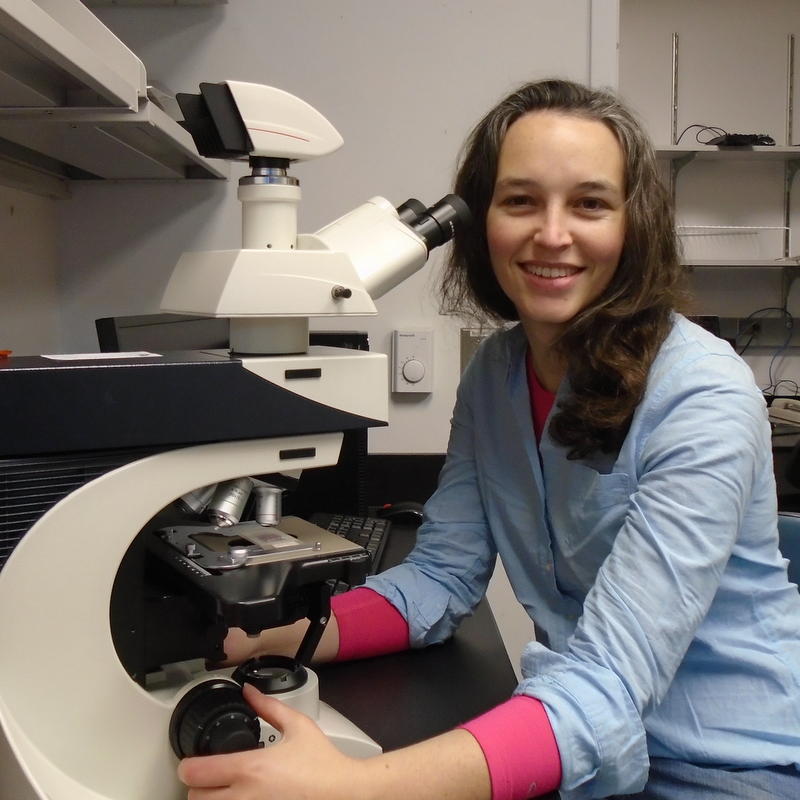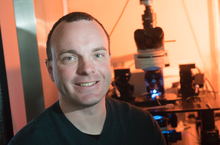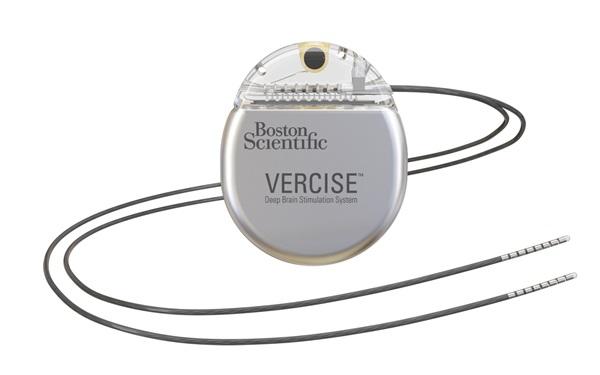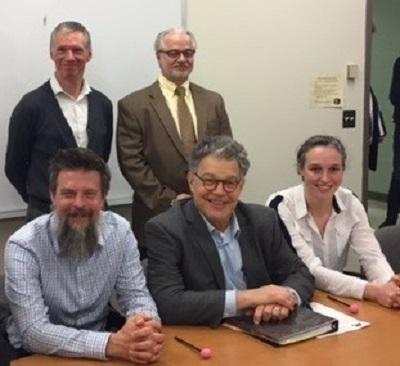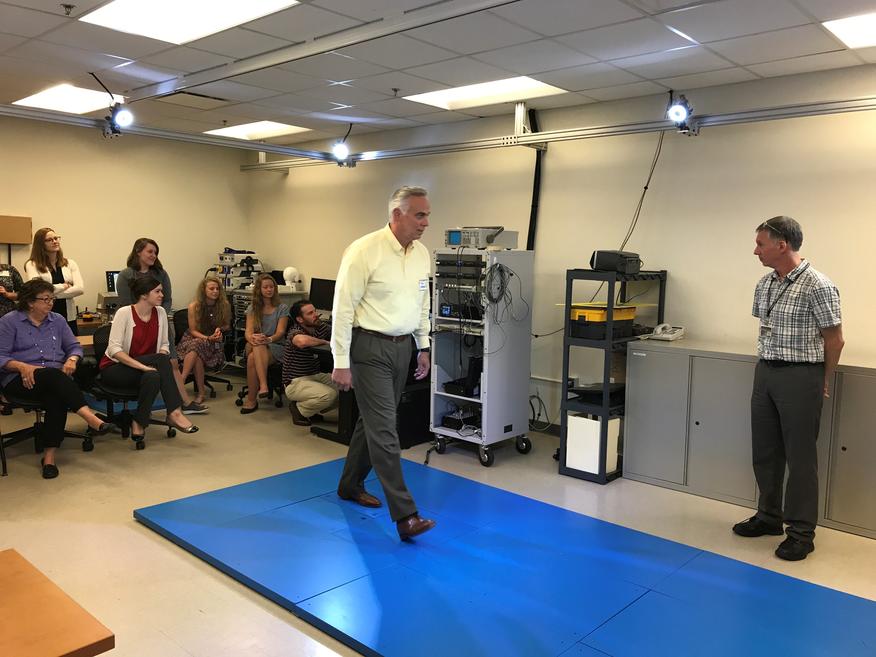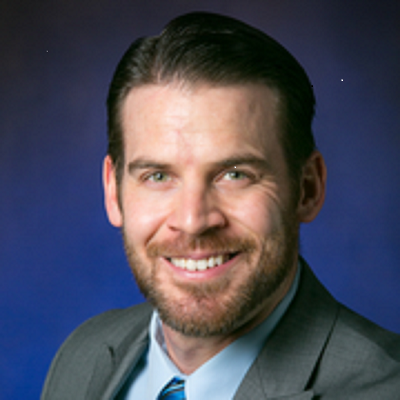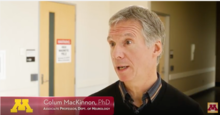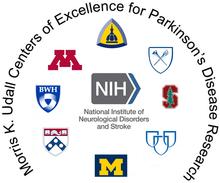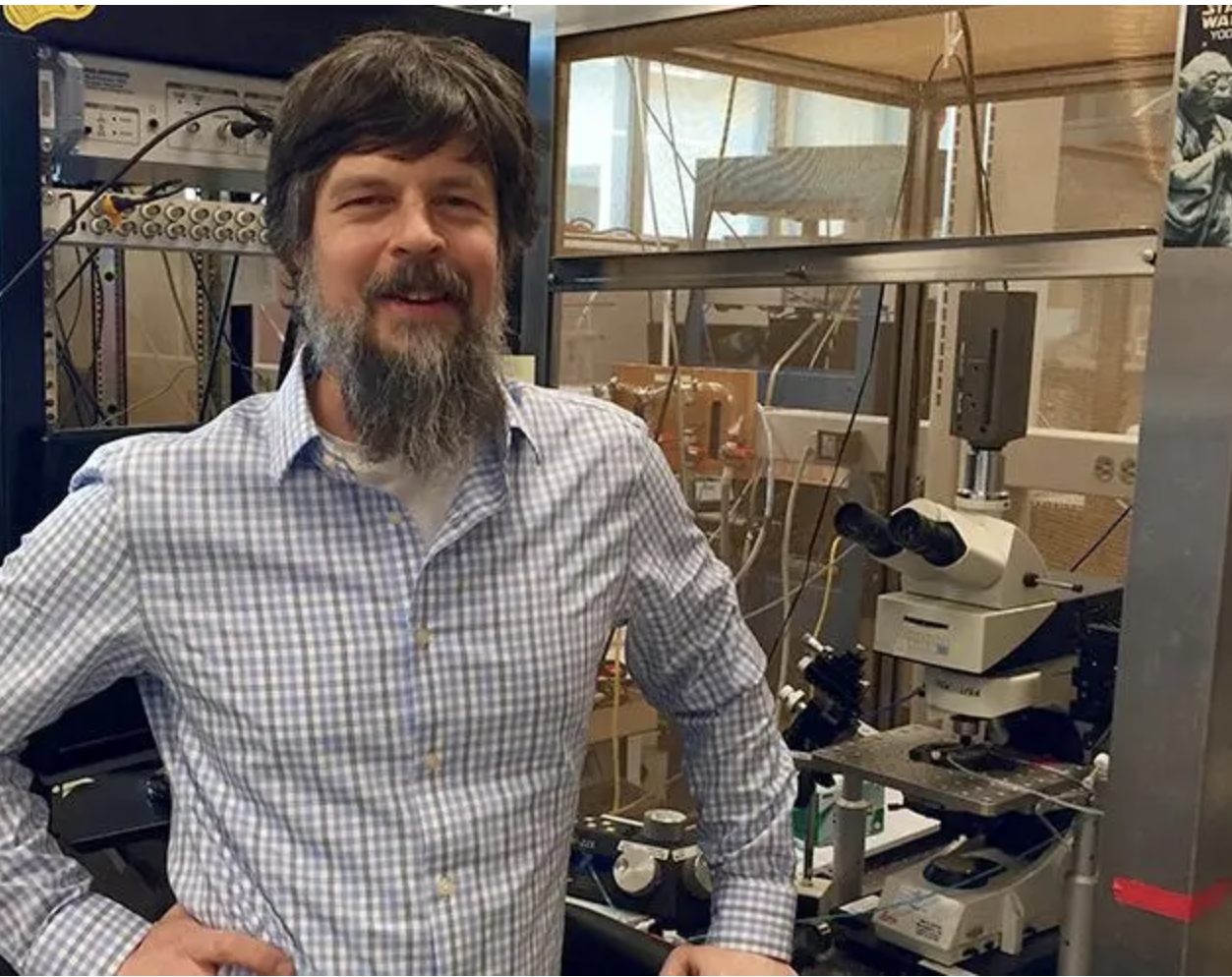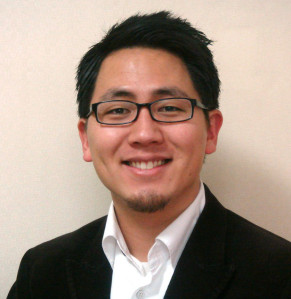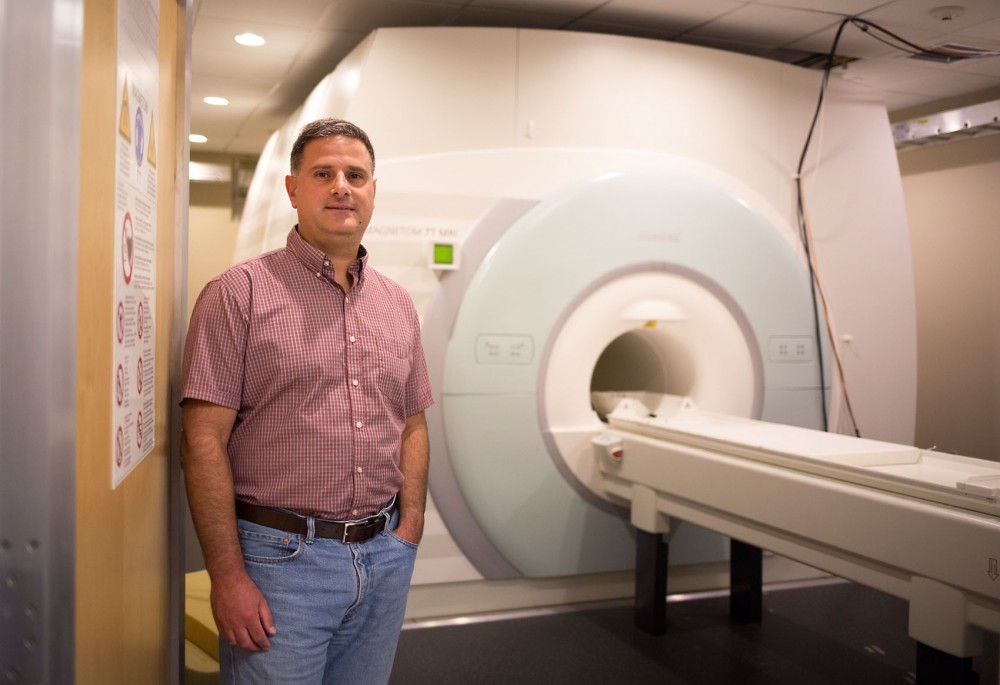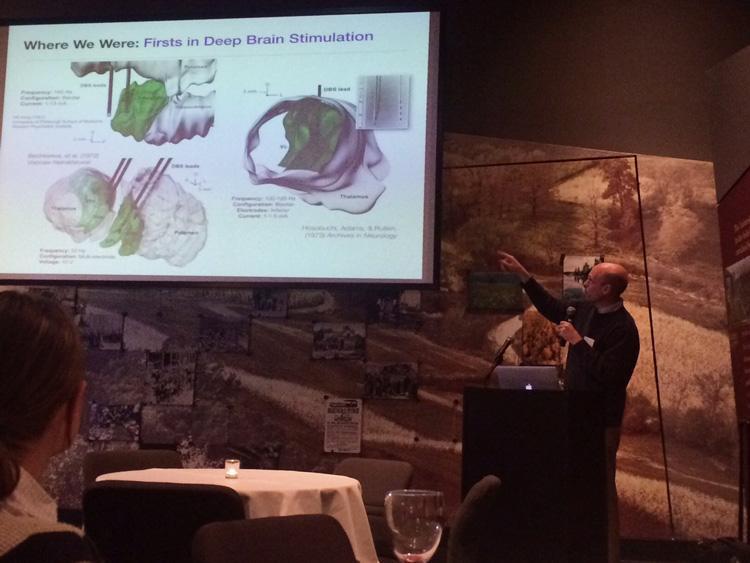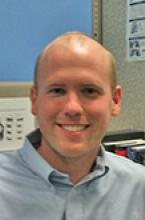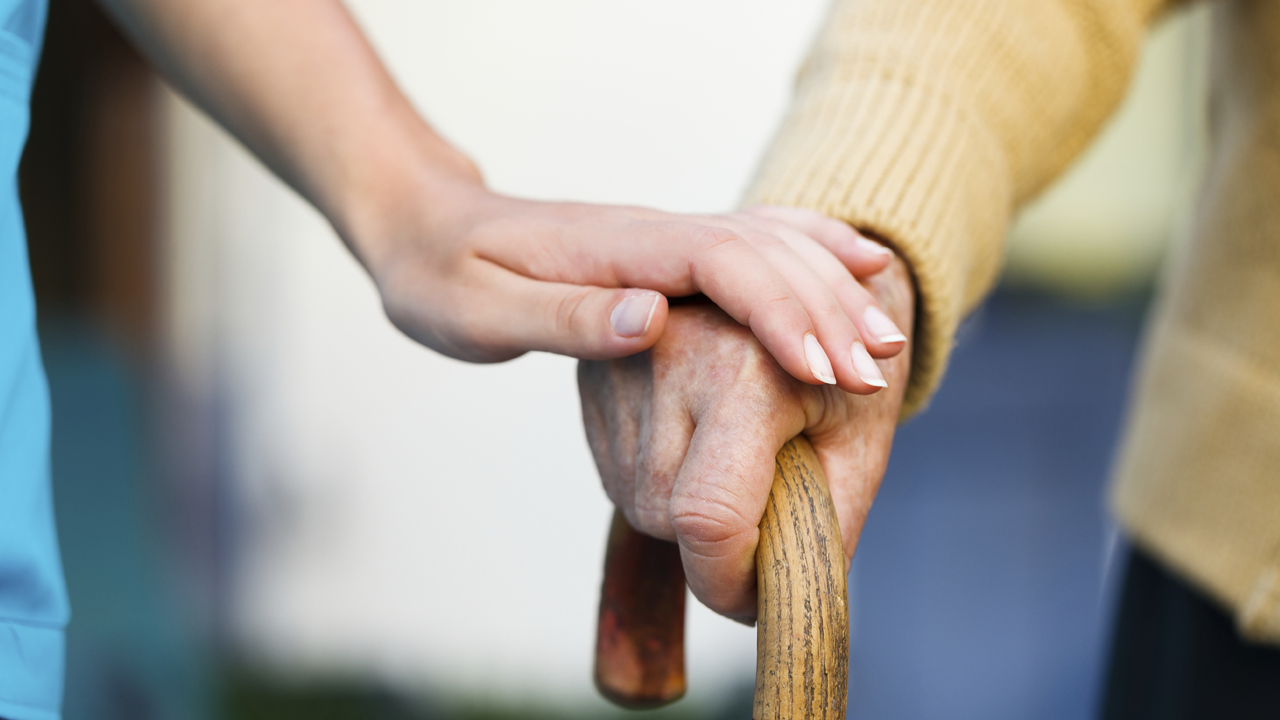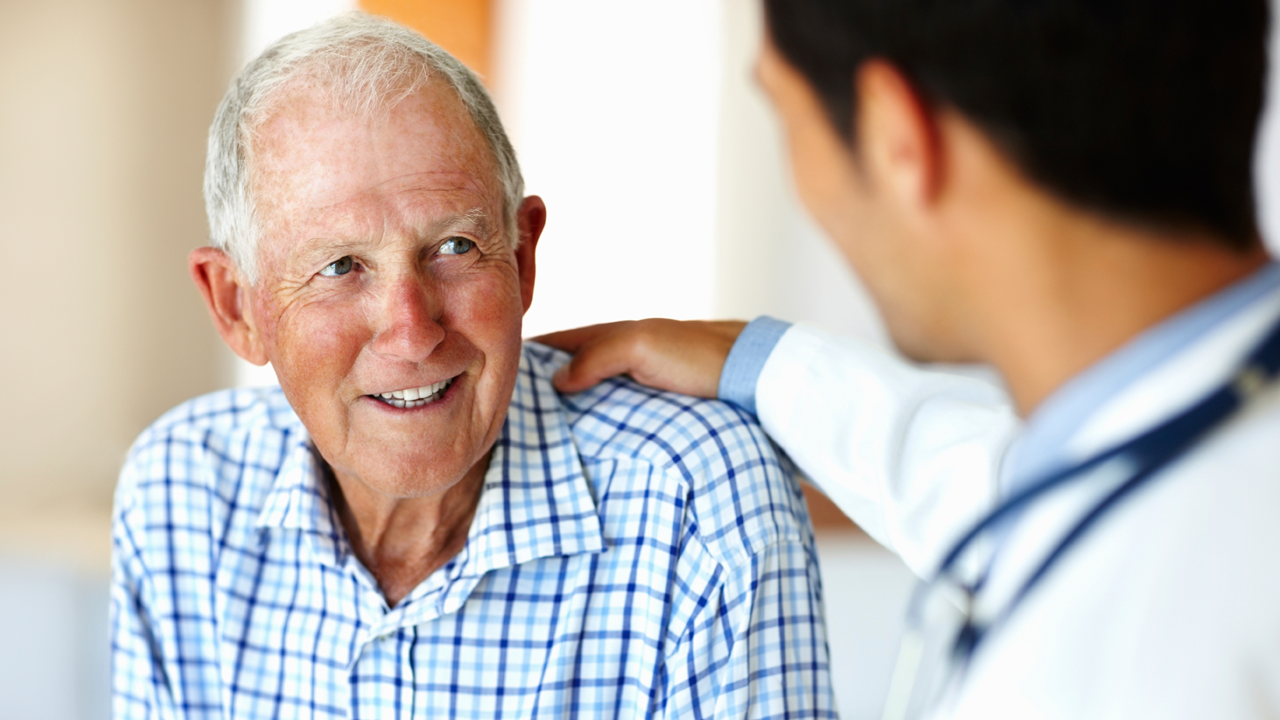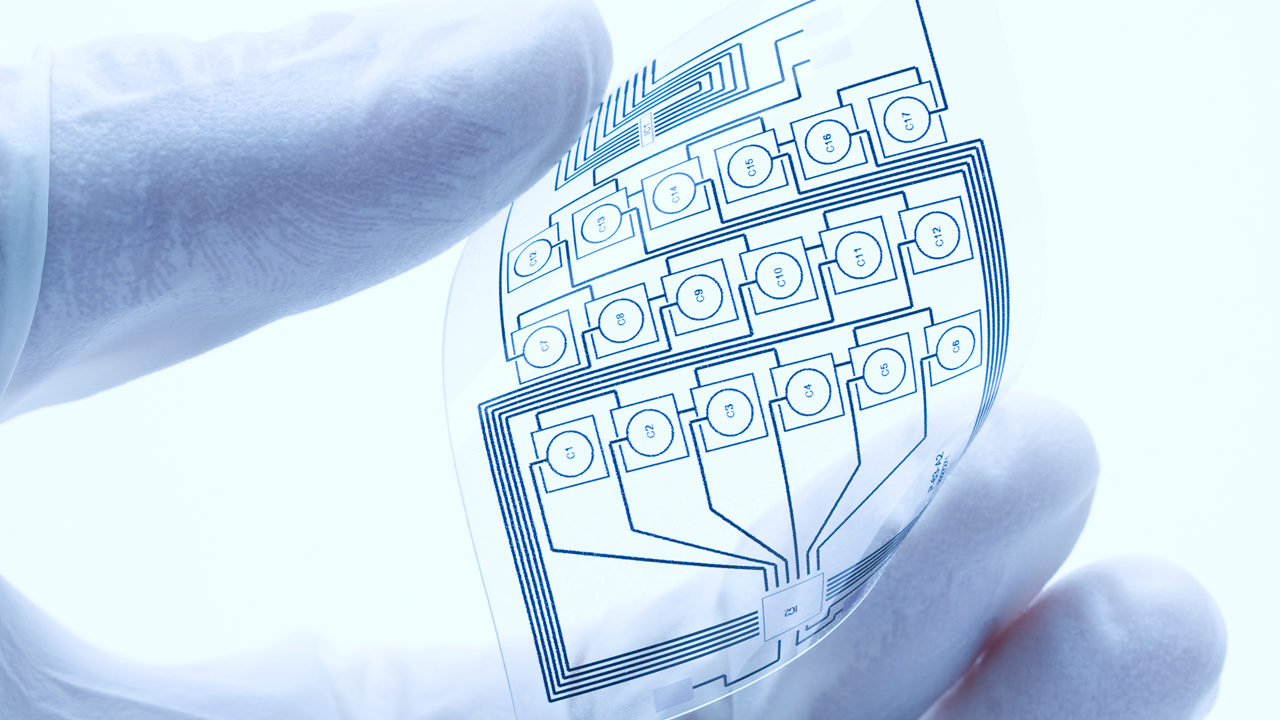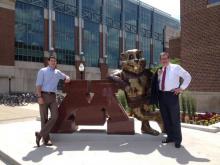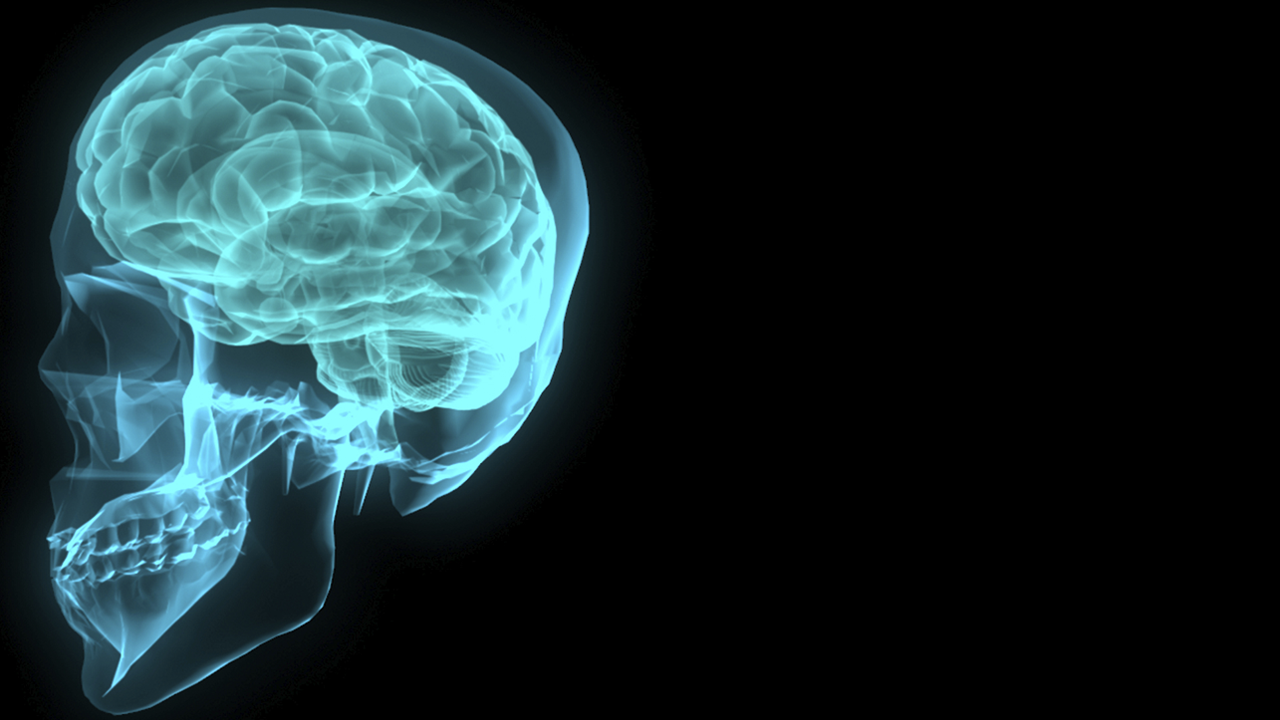
Submit any MnDRIVE Brain Conditions News, Research, Events, Accomplishments Here
Wishing MnDRIVE Brain Conditions a happy birthday and many more!
Transcranial magnetic stimulation gained little attention for years, but emerged in the post-pandemic era as more Minnesotans grappled with depression.
We have a new YouTube Channel!!!!
We have a new YouTube Channel!!!!
Newest member of MnDRIVE Brain Conditions Steering Committee representing the Department of Neurosurgery.
Prof. Lim will bring his rich expertise in research, innovation, and entrepreneurship to Bakken MDC to continue building collaborations with local, national, and global medical technology industries.
Some experts tout deep brain stimulation as a lifeline for people struggling with opioid use. Others question the hype.
Featuring member of MnDRIVE Brain Conditions Leadership & Neuromodulation Researcher, Dr. Sophia Vinogradov amazing work!
Depression is both a mental illness and a disability.
Walter Low and Wei Chen develop a pre-clinical treatment for a pediatric brain disease.
- This webinar is sponsored by the Research & Innovation Office; Consortium on Law and Values in Health, Environment & the Life Sciences; Masonic Cancer Center; and Clinical and Translational Science Institute.
Mark your calendar for November 16th!
Congratulations Drs. Vinogradov and Camchong!!!
Application Deadline Date: October 6th
Wishing MnDRIVE Brain Conditions a happy birthday and many more!
“What Is Vagus Nerve Stimulation For?”
Congrats, Dr. Oscar Miranda-Dominquez!
"Can we do a better job of detecting suicidality? U of M team using a DARPA award to test the possibility."
Congrats, Dr. Jeremy Chaikind!
Article features Dr. Christine Conelea.
Article features faculty member Dr. Michael C. Park regarding SynerFuse.
Car accident victim can move her legs after 23 years.
SAVE the DATE: August 24-25
Understanding the brain, curing disease, and creating new brain-based technologies using spintronics and micromagnetic devices.
Accepting applications for Postdoctoral Trainees and Clinical Associates!
CONGRATS, Drs. Tay Netoff and Alexander Opitz!
Apply today! Deadline is May 22, 2023.
She gave MnDRIVE Brain Conditions a very nice shout out!
Researchers collaborate at the U’s Masonic Institute for the Developing Brain to find better ways to help children who have neurodevelopmental disorders.
Congrats, MnDRIVE EFCD UIC Awardee and Neuromodulation Medicine Fellow, Dr. Saydra Wilson!
Congrats, Dr. Lind (MnDRIVE Optogenetics & Neuromodulation Associate Director) on your first 1st author publication!!!
Cranial Nerve Stimulation in Practice – Where have we been, and where are we heading?
Cranial Nerve Stimulation in Practice – Where have we been, and where are we heading?
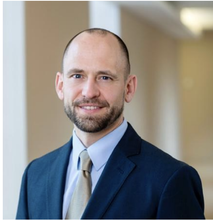
1/19/23 Brain Stimulation, Adaptation, and Fractional Dynamics - Keller Hall 3-230 at 1 pm
Article written by John Horchner was featured in the Park Bugle.
Learn more about the creativity camps at MIDB led by MnDRIVE Neuromodulation Researcher, Dr. Kathryn Cullen.
MnDRIVE Brain Conditions teamed up with the Bell Museum to host a fun brain themed event on November 5th.
Congratulations, to Drs. Kamil Ugurbil and Damien Fair for being selected as speakers for the Dean’s Distinguished Research Lectureship & Wall of Scholarship Recognition. Hope you can join us on November 9th.
MnDRIVE neuromodulation research and University of Minnesota faculty member Dr. Ziad Nahas plays a leading role.
Join the University of Minnesota (UMN) at Advanced Manufacturing Minneapolis ? bringing together Medical Design & Manufacturing (MD&M), Automation Technology Expo (ATX), Design & Manufacturing (D&M), MinnPack, and Plastec November 2-3, at the Minneapolis Convention Center
Kelvin Lim and VA research collaborator Casey Gilmore are featured in this article.
Congratulations to Dr. Sophia Vinogradov!
Event Date: June 8, 2022 to June 10, 2022
We are happy to announce the 3rd iteration of our workshop on brain stimulation in Minnesota taking place on June 8-10, 2022. It will be organized in a hybrid format with in-person attendance in Minneapolis.
Event Date: September 4, 2016
MnDRIVE Brain Conditions at the Minnesota State Fair! Visit us at the U of M building (on Dan Patch between Underwood & Cooper)
Bell Museum and MnDRIVE Brain Conditions have partnered up for this fun filled outreach event about brains. Join us on November 5th at the Bell Museum from 10 am to 2 pm
Event Date: July 30, 2021
The Louis Stokes North Star STEM Alliance invites you to its 2021 MnDRIVE Research Symposium, featuring 7 MnDRIVE interns from 6 different institutions: UMN-TC, UMN-Duluth, Augsburg U., Carleton, St. Olaf, & Bemidji State
MnDRIVE Neuromodulation Researcher Dr. Zhi Yang & other UMN researchers have developed a more accurate, less invasive technology that allows amputees to move a robotic arm using their brain signals.
Join us on September 19th where Alex Herman will be talking about "Invasive Neuromodulation for Non-motor Symptoms of Parkinson's Disease".
Congratulations to our Neuromodulation Postdoctoral fellow, Xinyuan Yan, PhD
Virtual reality demo took place at the Minnesota State Fair outreach event.
Mia joined the Non-invasive Neuromodulation Laboratories (NNL) as a Research Professional in June 2022.
Congratulations, to Nicholas Arnoudse, MD, who was awarded the MnDRIVE Neuromodulation Medicine Fellowship.
Event Date: July 13, 2022
Med tech innovators and entrepreneurs share early mistakes and surprises, and how they could be avoided.
Congratulations, to our postdoctoral fellow, Dr. Sina Shirinpour, who was awarded the MnDRIVE Neuromodulation Therapy Commercialization Fellowship.
Event Date: June 1, 2022 to June 30, 2022
We invite everyone - kids, adults, and anyone who is interested - to submit a creative and fun name for our TMS Robot.
University of Minnesota Medical School MnDRIVE Brain Conditions faculty were presented with 2022 McKnight Awards.
Dr. Hubert Lim is quoted in a Washington Post story.
Event Date: August 31, 2022
MnDRIVE Brain Conditions at the Minnesota State Fair! Visit us at the U of M building (on Dan Patch between Underwood & Cooper)
Neurologist Jerrold Vitek, MD, PhD, and his team are at the forefront of deep brain stimulation for the treatment of Parkinson's disease and other movement disorders.
She hopes to facilitate and advance clinical neuromodulation research that will ultimately improve the well-being of youth with neurological disorders and mental illness.
Event Date: September 10, 2022
Each Optimism Walk is part of a nationwide movement to mobilize and inspire people to step up and help put an end to Parkinson's disease. Be a part of it! Rain or Shine!
Event Date: May 9, 2022
Join Medtronic and the Department of Biomedical Engineering at the University of Minnesota for a virtual grand rounds event.
Findings open up new opportunities for using targeted ultrasound to modulate nerve activity as a complementary tool to electrical stimulation technologies for a broad range of health conditions, including pain, inflammation, and movement.
Join us in congratulating the recipients of the 2022-2023 MnDRIVE Neuromodulation Research Fellowships!
Congratulations, Dr. Sophia Vinogradov!
Neurosurgeon Michael C. Park, MD, PhD, oversees and conducts a procedure called deep brain stimulation, also known as neuromodulation. The therapy can help relieve Parkinson's disease symptoms.
Event Date: April 5, 2022
"Equity and Inclusive Excellence in Medical Innovation"
Event Date: June 6, 2022 to June 7, 2022
Learn How to Translate and Commericialize Neurotechnology
This course is continuous and consists of an annual workshop.
Event Date: April 7, 2022
Please join us to learn more about Medtronic's innovative projects on different neuromodulation therapies, which will be followed by a Q/A session!
Event Date: April 11, 2022
Join Abbott and the Department of Biomedical Engineering at the University of Minnesota for a virtual grand rounds event.
Event Date: April 11, 2022 to April 15, 2022
Join us for IEM Innovation Week!
U of M researchers combine engineering and brain science expertise to give people better control over severe mental illness.
Event Date: April 11, 2022
The Center for Medical Device Cybersecurity at the University of Minnesota has two great offerings coming up that you may be interested in.
The first veteran at the VA in Minneapolis underwent a DBS procedure, opening new treatment options for veterans with movement disorders.
Event Date: March 15, 2022
Neuroscientist Dr. Manny Esguerra will show us a real human brain & discuss what the brain does, how it can trick you & more!

Deadline: April 19, 2022
The University of Minnesota announces a commercialization-focused trainee fellowship program in Neuromodulation for 2022-2023. Open to U of M graduate students, post-docs, clinical fellows/residents, and MDC innovation
The Wallin Neuroscience Discovery Fund was established in 2011 to fund creative, pioneering studies in neuroscience each year.
Minnesota Partnership Awards Five Collaborative Research Grants for 2022
Pictured, left to right: SynerFuse Co-Founder & CSO Gregory F. Molnar, PhD, Dr. Rohan Lall, Michael C. Park.
Event Date: March 3, 2022
Going Beyond User Experience: Integrating Effective Community Engagement into Neurotechnology Development
Event Date: February 3, 2022
Splenic Neuromodulation - Implantable Device Treatment for Inflammatory Conditions
Event Date: May 5, 2022
Is the treatment Worse than the Disease?: Ethical Concerns and Attitudes Towards Psychiatric Electroceutical Iterventions
Event Date: April 7, 2022
Restoring Words Through a Speech Neuroprothesis
Event Date: January 19, 2022
MnDRIVE Brain Conditions and the Institute for Translational Neuroscience will hold a joint in-person retreat.
Event Date: April 14, 2022 to April 15, 2022
The Minnesota Neuromodulation Symposium is aimed at bringing together basic scientists, engineers, clinicians, industrial practitioners, and entrepreneurs to discuss challenges and opportunities in neuromodulation.
From E-Stand algorithm development using neurostimulation to relieving central post-stroke pain.
A U of M Medical School study indicates this method could be a new approach to treating a variety of severe mental illnesses
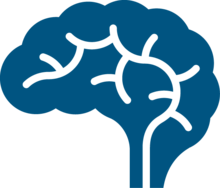
Deadline: January 19, 2022
Summer or Fall 2022 start dates. Recipients will be notified in March 2022.
Dr. Jerrold Vitek's research team explores innovative ways to understand and treat Parkinson's disease.
Tinnitus, or ringing in the ears, is one of the most common health concerns in the United States, affecting up to a quarter of the population.
U of M Medical School researchers Robert McGovern, MD, and Youssef Hamade, MD, MS, published a study that highlights the racial and ethnic disparities in epilepsy surgery underutilization.
Event Date: September 24, 2021
Join us for the virtual MnDRIVE fall kick-off event for the Louis Stokes North Star STEM Alliance (LS-NSSA).
Event Date: September 25, 2021
Each Optimism Walk is part of a nationwide movement to mobilize and inspire people to step up and help put an end to Parkinson's disease. Be a part of it! Rain or Shine!
Saydra Wilson, M.D. received the new MnDRIVE Brain Conditions Early Faculty Development Award.
Congratulations, to Camille Mehri, MD, who was awarded the MnDRIVE Neuromodulation Medicine Fellowship.

Deadline: March 15, 2021
Post-Baccalaureate Research Program for Underrepresented Minorities in Pursuit of a Career in Neuroscience
Four Approaches that Helped the U of M Medical School Secure a P50 Grant
Lab working across disciplines to find innovative answers to big questions about improving mental health.
2021 Research Infrastructure Awards Announced
University of Minnesota Medical School MnDRIVE Brain Conditions faculty were presented with 2021 McKnight Awards.
Congratulations, to MnDRIVE Neuromodulation Researcher, Dr. Kathryn Cullen and her team for receiving the Office of Vice President for Research 2021 Minnesota Future Award.
Event Date: September 24, 2021
Join us virtually for Dr. Alik Widge's TED Talk.
A University startup based on Professor Dr. Noam Harel’s research recently reached a major milestone in helping to ensure that deep brain stimulation is effective for more patients with Parkinson’s disease.
In the largest clinical trial of its kind, Professor Hubert Lim and his team showed that combining sound and electrical stimulation of the tongue can significantly reduce tinnitus, commonly described as “ringing in the ears.”
Congratulations, to our graduate fellow, Anne Huntemer-Silveira, who was awarded the MnDRIVE Neuromodulation Industry Partnerships Fellowship.
Watch “Chuck’s Story”- a sneak preview of our June “Where Discovery Creates Hope” installment.
The story of the Mini-MScope is a great example of collaboration between researchers in different fields.
Event Date: June 3, 2021 to June 4, 2021
In this workshop, students and researchers can learn about state-of-the art modeling methods in non-invasive brain stimulation and their combination with imaging methods.
Check out their publication regarding, High-Frequency Oscillations in the Pallidum: A Pathophysiological Biomarker in Parkinson's Disease?
Use of vibro-tactile stimulation as a non-invasive neuromodulation technique to treat symptoms of focal dystonia of the voice and neck.
Join us in congratulating the recipients of the 2021-2022 MnDRIVE Neuromodulation Fellowships!
Check out our MnDRIVE Brain Conditions winners!
Event Date: April 1, 2021
Hosted by the College of Continuing and Professional Studies, brain stimulation psychiatrist and biomedical engineer Alik Widge will provide an overview of emerging technologies such as deep brain stimulation and transcranial magnetic stimulation.
Event Date: April 15, 2021 to April 16, 2021
The Minnesota Neuromodulation Symposium is aimed at bringing together basic scientists, engineers, clinicians, industrial practitioners, and entrepreneurs to discuss challenges and opportunities in neuromodulation.
Event Date: March 15, 2021 to March 19, 2021
Join us for fun events planned this week for Brain Awareness Week!
MnDRIVE Brain Conditions researchers participate in live virtual outreach events with the Bell Museum. Brain researchers from the University of Minnesota talk about the latest brain science and neuromodulation.
Mindful breathing with transcranial direct current stimulation: A new approach to depression therapy
Neuromodulation: A new area of psychiatry and patient, Natalie Narvaez's story.
MnDRIVE Brain Condition researchers at the University of Minnesota Medical School have been awarded a $6.6 million grant from the National Institute of Mental Health to develop a new medical device that can treat mental health
Learn more about the MnDRIVE Minnesota Neuromodulation Medicine training program.

Deadline: April 19, 2021
A commercialization focused fellowship opportunity. Open to U of M graduate students, post-docs, clinical fellows/residents, and innovation fellows.
"Dose-dependent effects of transcranial alternating current stimulation on spike timing in awake nonhuman primates"
Join us in congratulating the recipients of the 2020-2021 MnDRIVE Neuromodulation Fellowships!
Event Date: December 15, 2020
Medical School Honors Laura Niedernhofer and Mark Thomas with Distinguished Lectureship Award
Medical School Honors Laura Niedernhofer and Mark Thomas with Distinguished Lectureship Award
Join us Tuesday, December 15th from 4 pm to 5:30 pm for the Dean's

Deadline: January 19, 2021
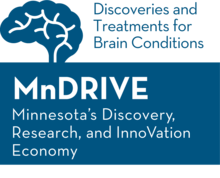
Deadline: June 5, 2020
A commercialization focused fellowship opportunity. Open to U of M graduate students, post-docs, residents/clinical fellows and innovation fellows

Deadline: January 21, 2020
A commercialization focused fellowship opportunity
Open to graduate students, post-docs, residents/clinical fellows and innovation fellows
Minne Inno, July 16, 2019
The work of U of M Researchers, who have been working to bring new and improved therapies to Minnesotans suffering from a wide range of brain conditions, is featured in this Minne Inno story.

Deadline: January 21, 2020
Jazmin Camchong tests new therapies to prevent addiction relapse
MnDRIVE members Sophia Vinogradov and David Redish spoke at the Dean’s Distinguished Research Lectureship (DDRL) last week at Northrop Auditorium.

Deadline: January 21, 2019
Summer or Fall 2019 start dates. Recipients will be notified in March 2019.

Deadline: January 21, 2019
Summer or Fall 2019 start dates.
University of Minnesota researchers show that “temporal interference” works to precisely stimulate deep brain regions without the need to implant an electrode

Deadline: May 4, 2018
Summer 2018 or Fall 2018 start dates.
Neuromodulation Partnerships, February 22, 2018
Nahom Mossazghi earns prestigious NIH award for neurotechnology research.
Event Date: March 7, 2018
In March, The Petri Dish will feature neuromodulation researchers Daniel Schmidt and Mark Thomas, and MnDRIVE neuromodulation scholar David Darrow.
Neuromodulation Scholar Esther Krook-Magnuson, in the department of Neuroscience, named a McKnight Land-Grant Professor for 2018-2020.
Event Date: February 7, 2018
The Brain Bee is a neuroscience competition targeting high school students to foster interest in neuroscience, sponsored by MnDRIVE Brain Conditions.
Event Date: April 12, 2018 to April 13, 2018
The Minnesota Neuromodulation Symposium is aimed at bringing together basic scientists, engineers, clinicians, industrial practitioners and entrepreneurs to discuss challenges and opportunities in neuromodulation.
Neuromodulation scholar Patrick Rothwell awarded a Fellows Award for early career scientists.
University of Minnesota Health, December 14, 2017
MnDRIVE Neuromodulation scholars performed the first implant of an innovative Deep Brain Stimulation device following recent FDA approval
Senator Al Franken talks with U researchers about impact of NIH funding on health science research.
July 19, 2017, Legislators and legislative staff came to the University to learn about neuromodulation and addiction research.
Matthew Petrucci, PhD, recent MnDRIVE Brain Conditions Postdoctoral Fellow in Neuromodulation, has been awarded the prestigious Parkinson’s Foundation-PSG (Parkinson’s Study Group) Mentored Clinical Research Award.
Health Talk, July 20, 2016
MnDRIVE researcher Colum MacKinnon, Ph.D., is studying a link between Parkinson's disease and sleep problems.

Deadline: January 19, 2018
Summer 2018 or Fall 2018 start dates.

Deadline: May 25, 2017
Summer 2017 or Fall 2017 start dates.
Event Date: October 18, 2016
Neuromodulation Researcher Matt Johnson will speak at U of M to hosted Minnesota Sparks event in Marshall, MN.
University of Minnesota, September 22, 2016
Dr. Jerrold Vitek, MD, PhD, Head of Neurology and member of the MnDRIVE Brain Conditions leadership team, will direct the Udall Center.

Deadline: January 20, 2017
Summer 2017 or Fall 2017 start dates.
MinnPost, March 11, 2016
Kelvin Lim, M.D., a MnDRIVE researcher, discusses traumatic brain injuries.
MinnPost, February 25, 2016
Neuroscientists at the University have found a cell group associated with opioid relapse.
Health Talk, January 29, 2016
MnDRIVE researchers identified a target and tools for preventing morphine relapse.
Meet the five neuromodulation scholars. (December 29, 2015)
Inquiry, August 14, 2015
Hubert Lim, Ph.D., is working on a new brain stimulation device that may restore hearing for patients with hearing loss.
.
Minnesota Daily, July 29, 2015
Deep brain stimulation uses electrical currents to treat movement disorders like Parkinson's disease.
Medical School Blog, October 13, 2015
The Department of Neurology hosted a "Neuroscience Update" to give the neurology community a snapshot of department accomplishments and vision.
Access Minnesota, August, 2015
Jerrold Vitek, M.D., Ph.D., and Michael Park, M.D., Ph.D., explain deep brain stimulation in a TV segment.
Crain's Cleveland Business, September 21, 2015
A collaborative Parkinson's study will combine wearable technology with deep brain stimulation technology.
MinnPost, May 8, 2015
Brent Nelson, M.D., spoke to MinnPost about a new MnDRIVE-funded device which can provide symptom relief for people with treatment-resistant depression.
Health Talk, March 18, 2015
University of Minnesota researchers may have found an alternative method for deep brain stimulation, which would speed up the programming process for both clinicians and patients with Parkinson’s disease.
A new nonsurgical brain modulation laboratory will open this fall on the Twin Cities campus. This state-of-the-art laboratory will support research on noninvasive forms of neuromodulation.
Matthew Johnson was named a 2015-2017 McKnight Land-Grant Professor
PBS Newshour, March 31, 2015
Need a coffee to get going in the morning? A jolt of electrical current could be more stimulating. Lighting up the brain with small amounts of electricity
Inquiry, January 14, 2015
University of Minnesota researchers are working across disciplines to establish the first statewide registry of Minnesotans with Parkinson’s disease, a resource that could dramatically improve future studies on the disease.
Inquiry, October 14, 2014
University of Minnesota researchers and St. Jude Medical are collaborating to treat some of the most challenging and debilitating movement and neuropsychiatric disorders using deep brain stimulation (DBS).
Inquiry, October 3, 2014
A team of U of M researchers are working together to develop a groundbreaking new technology—thin, wearable electronics.
Inquiry, July 3, 2014
A national 20-site clinical study led in part by the University of Minnesota and sponsored by Boston Scientific will evaluate a new implantable brain stimulator
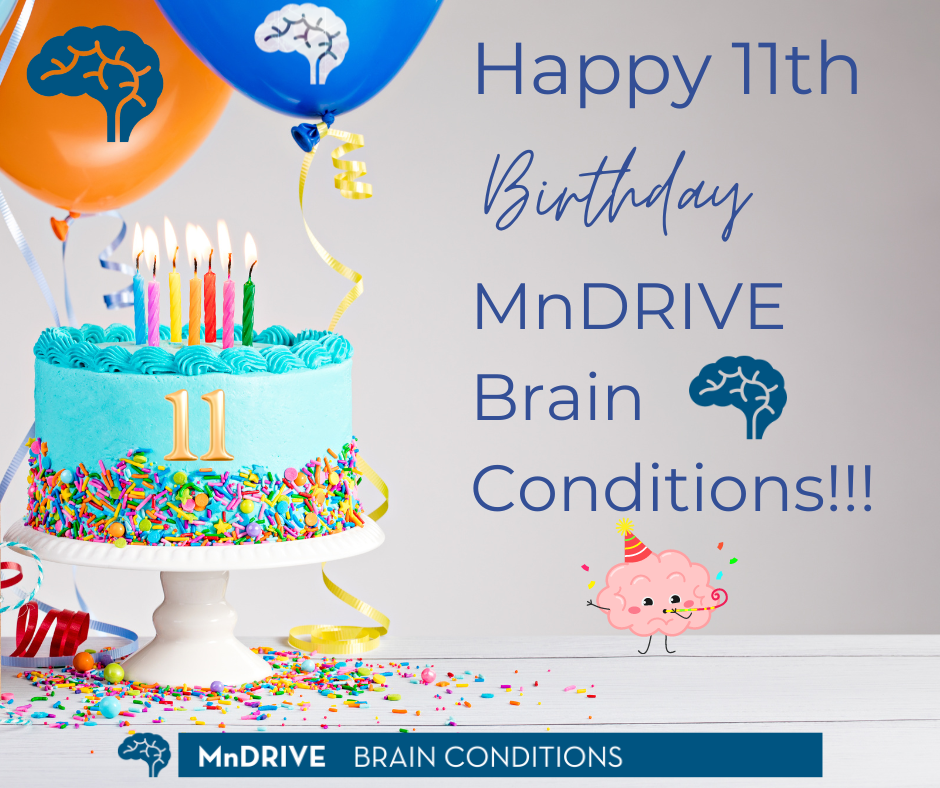
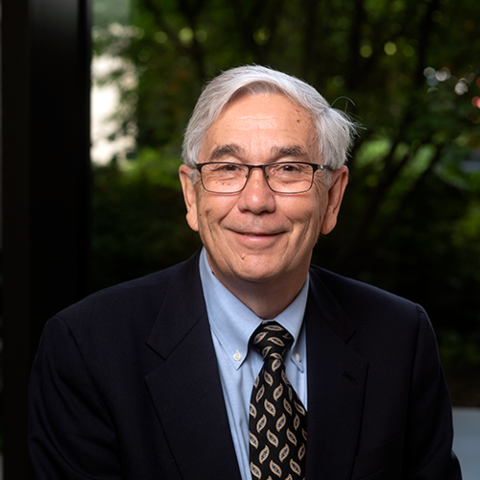
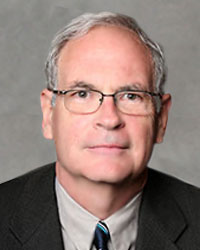
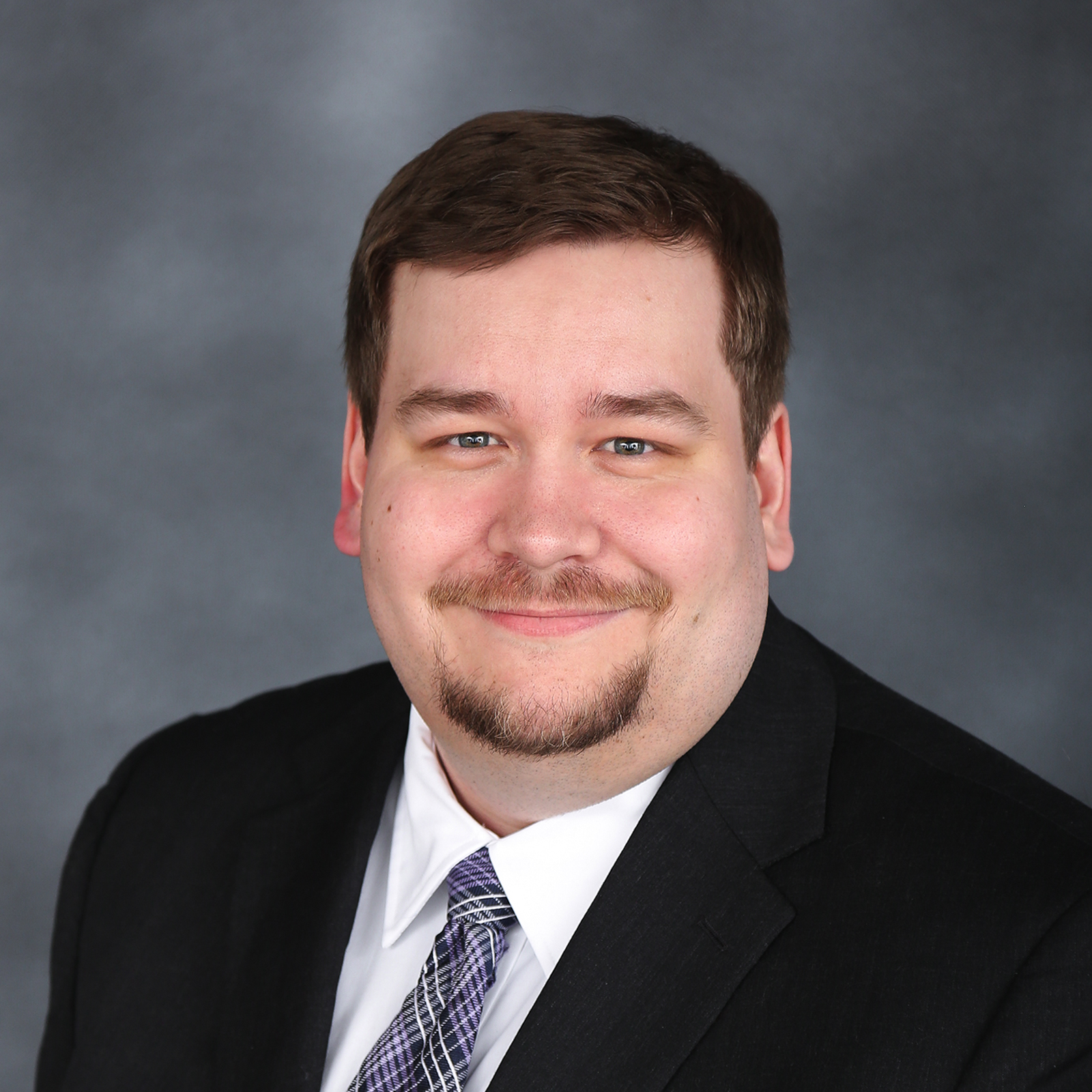

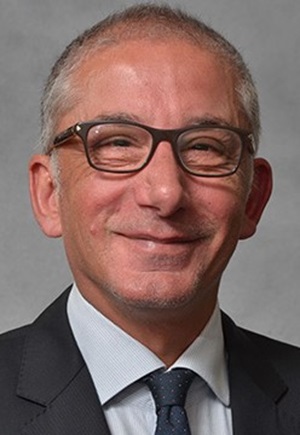
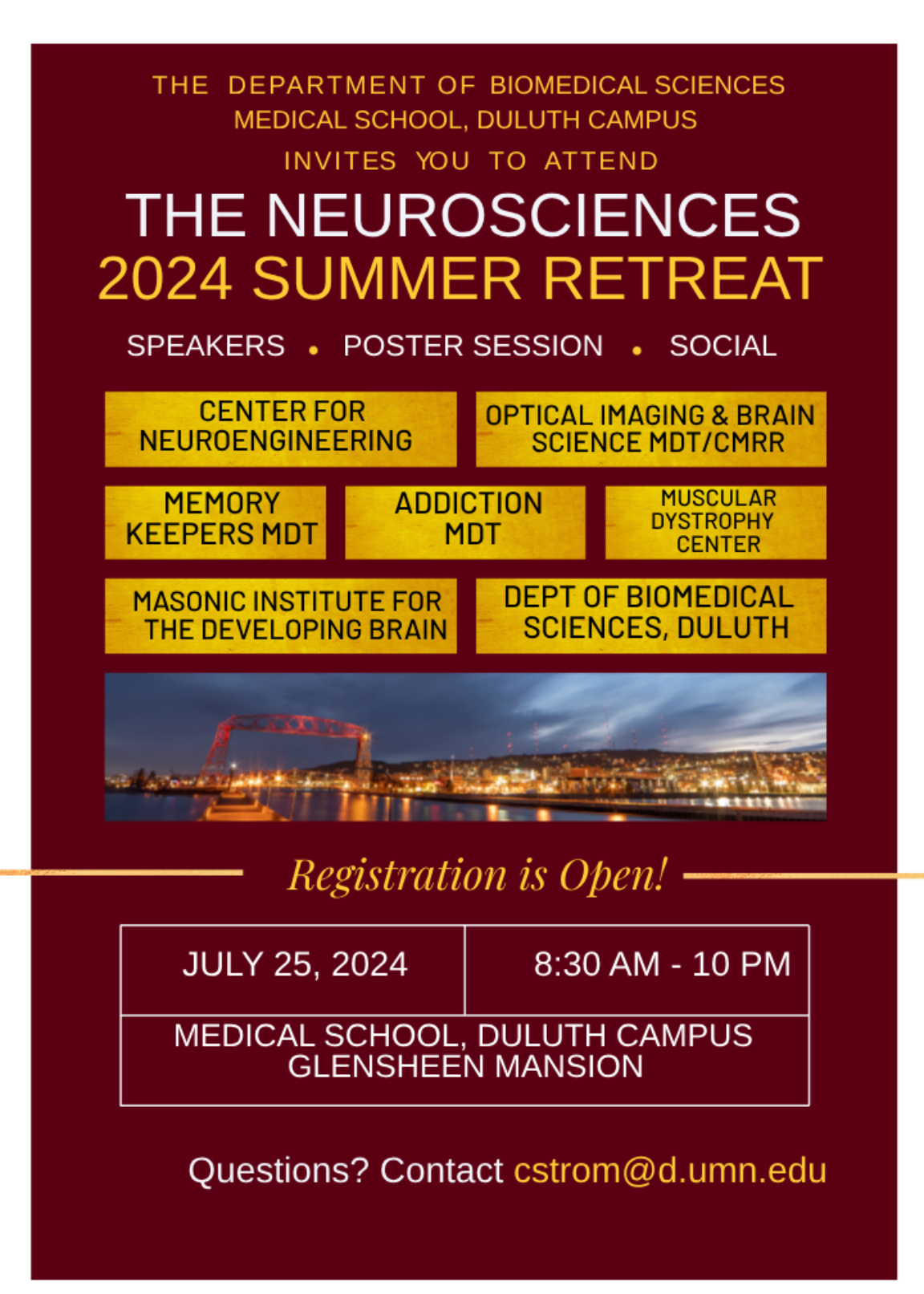

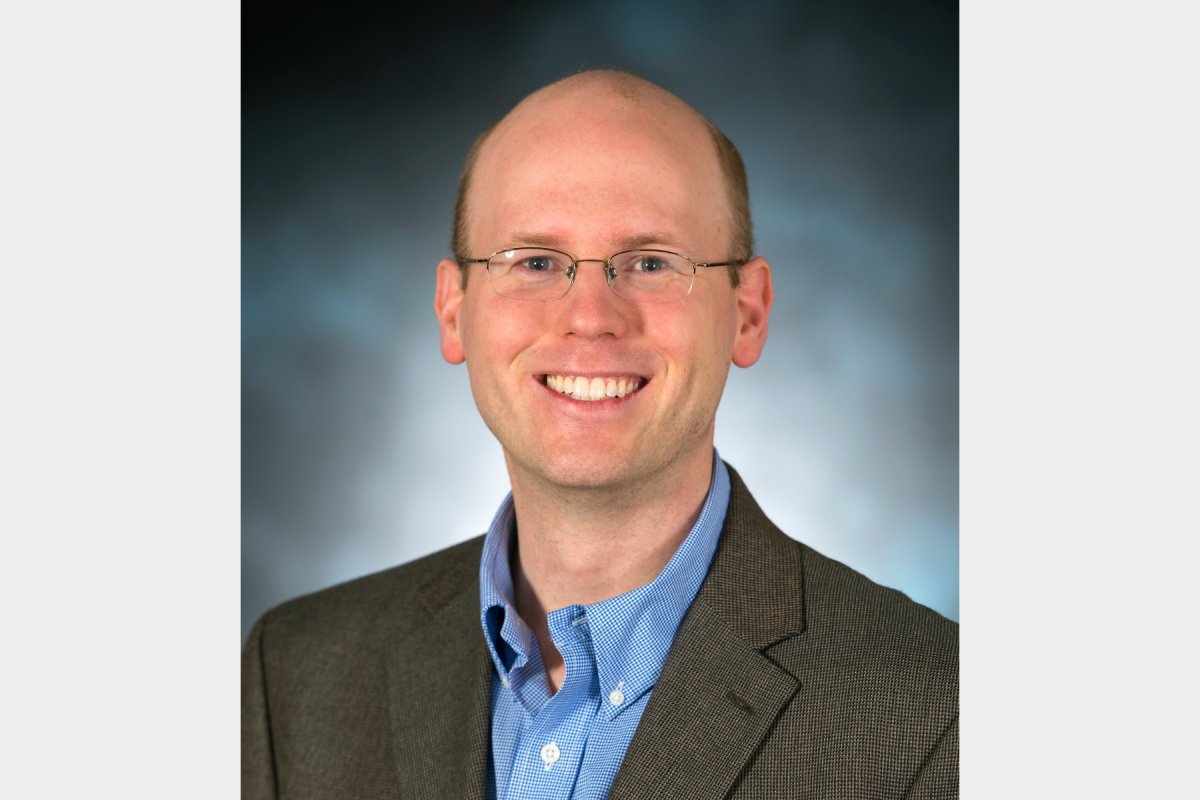
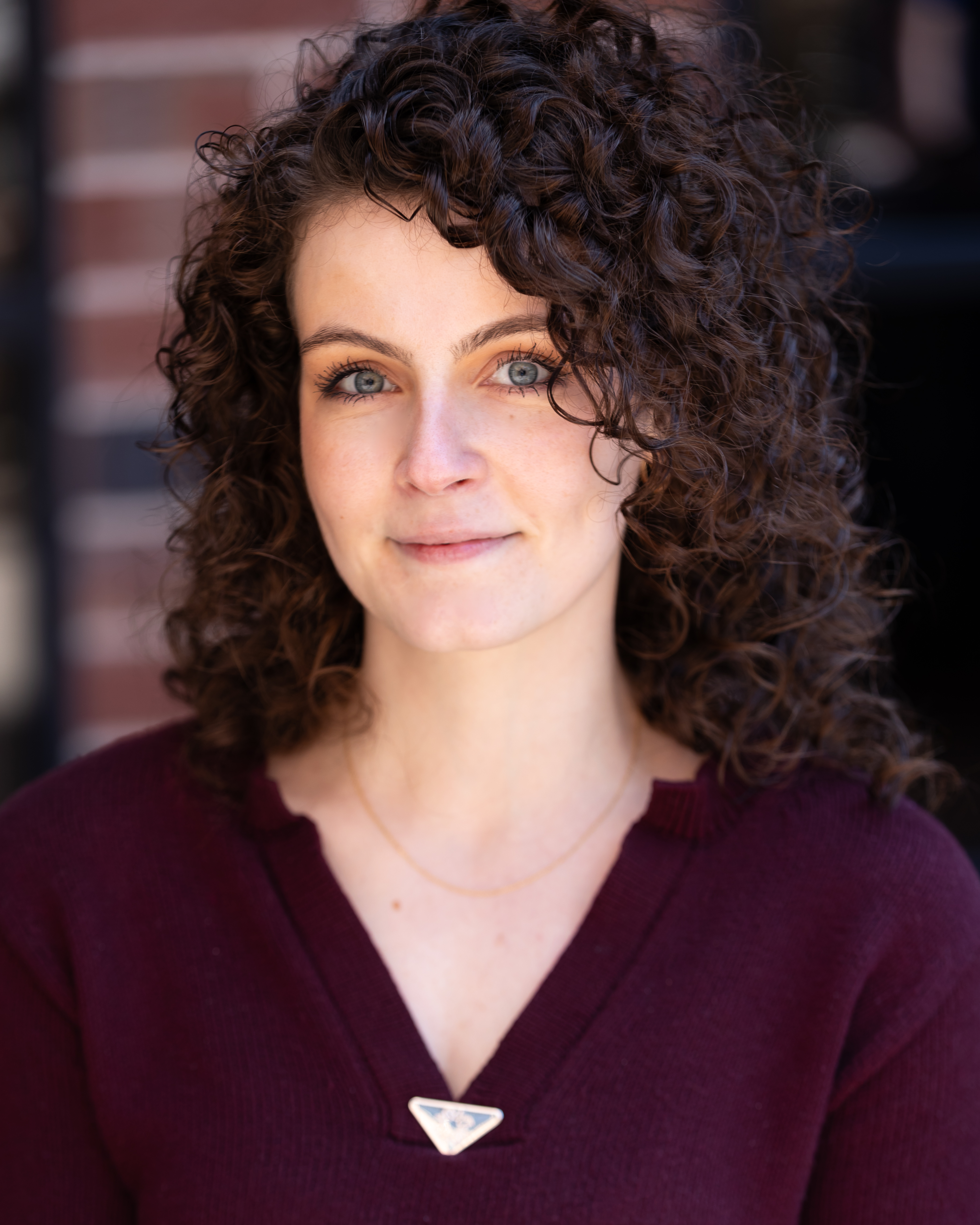
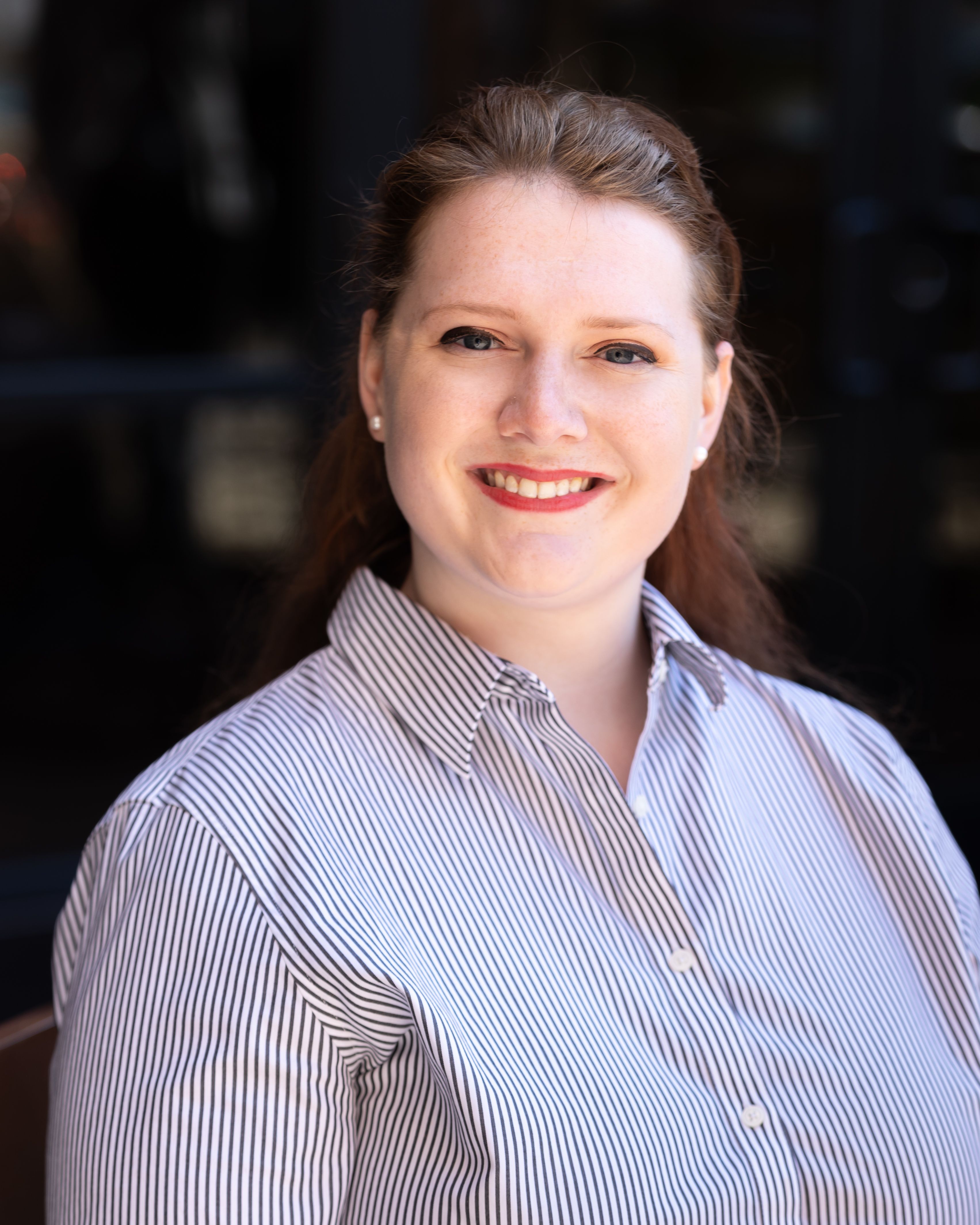

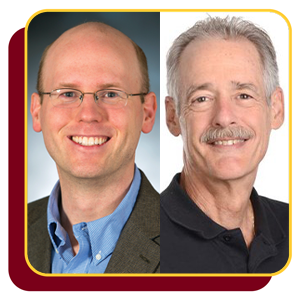
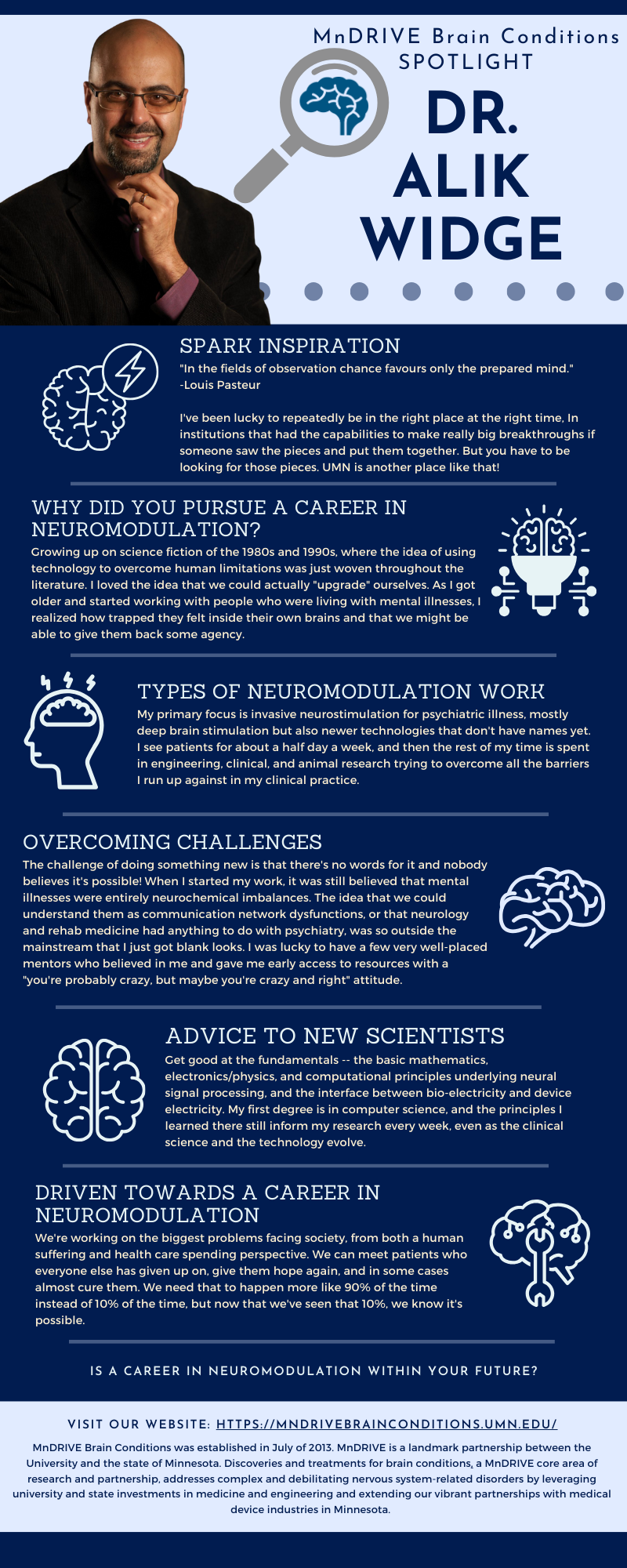
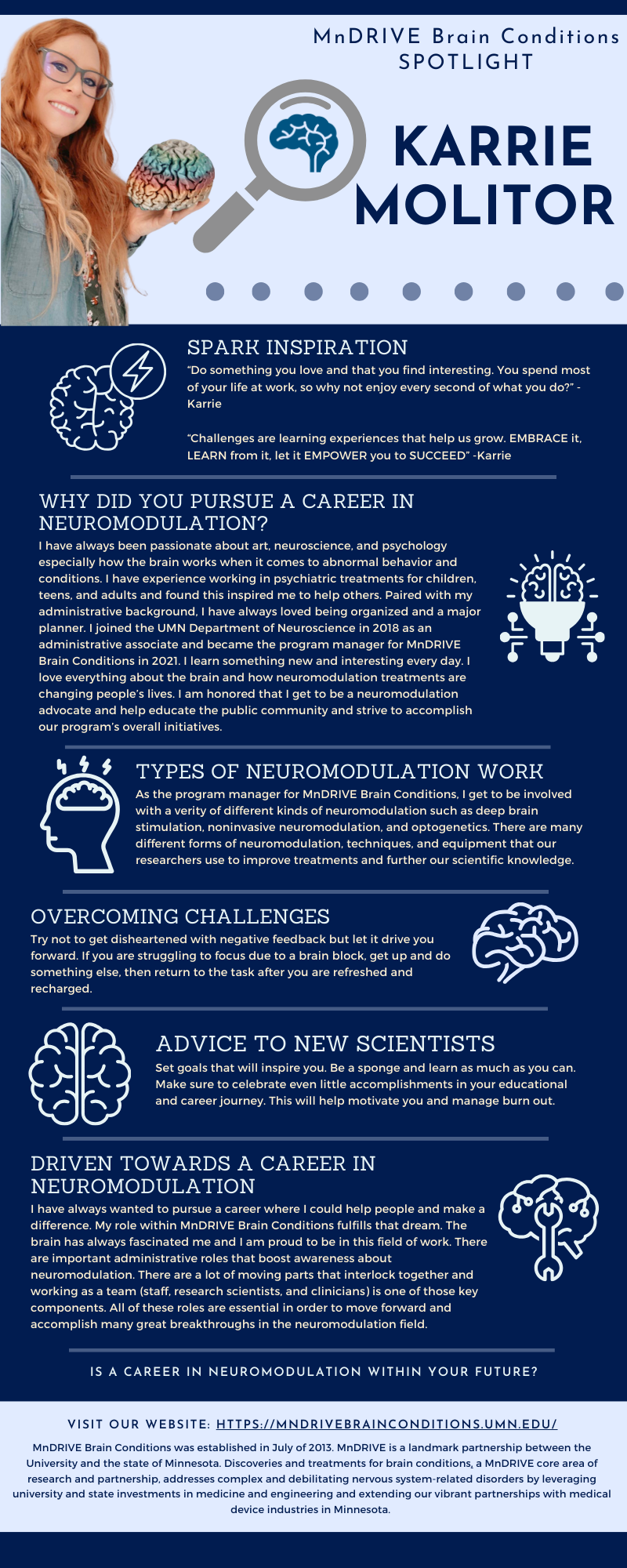
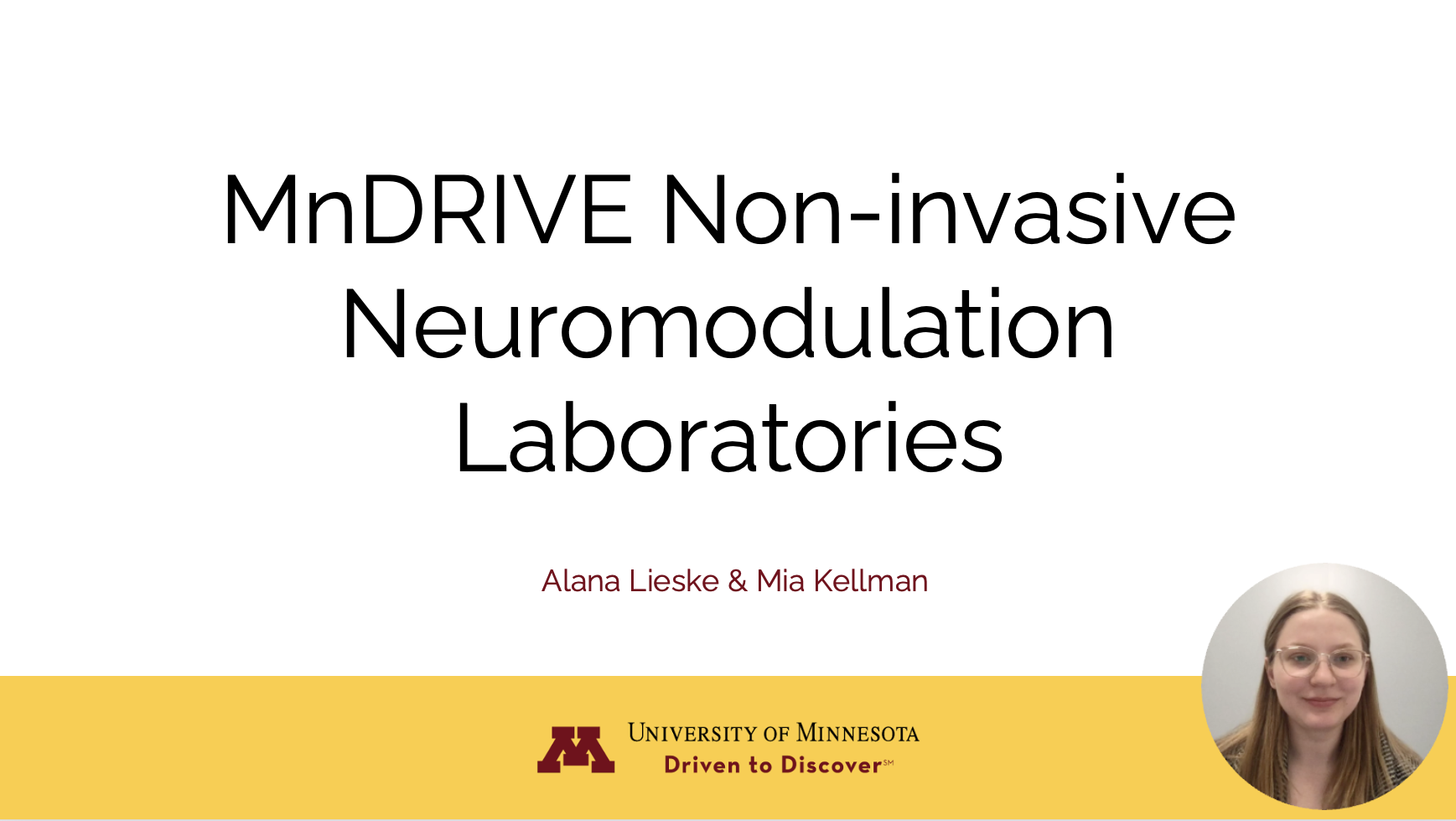
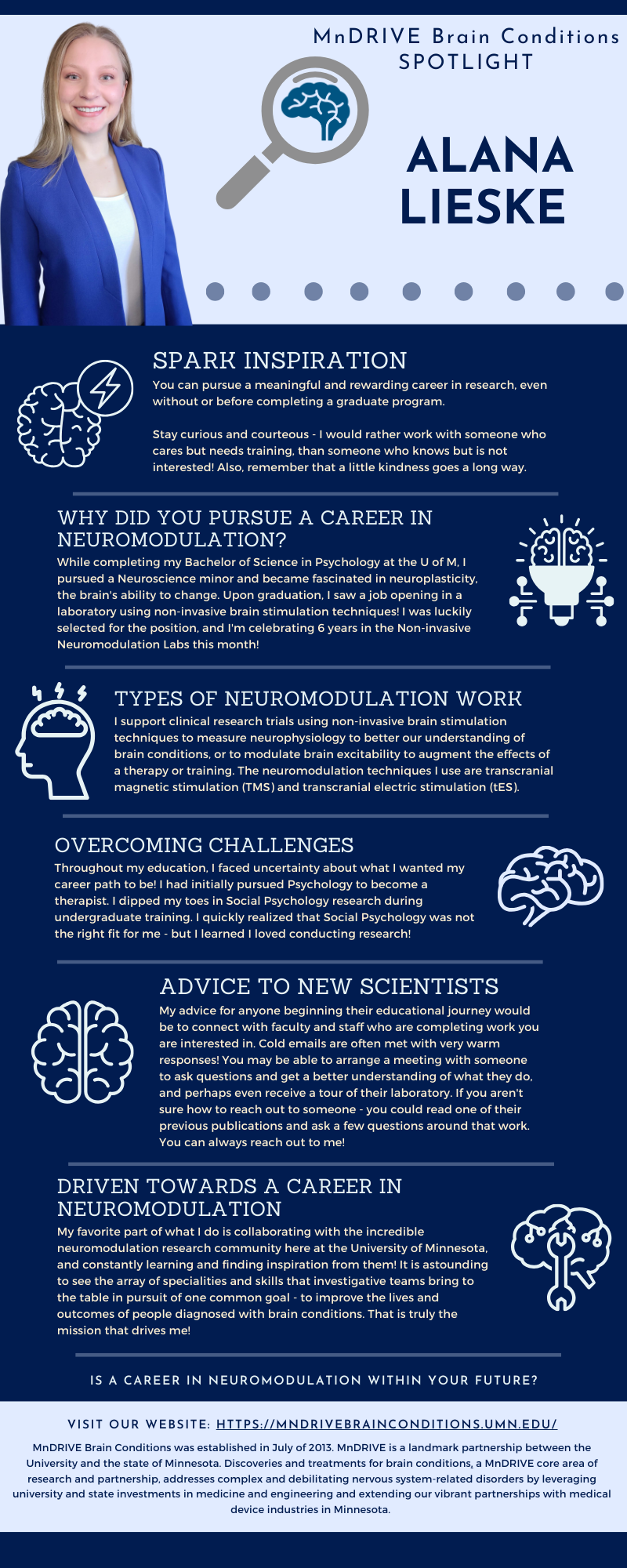
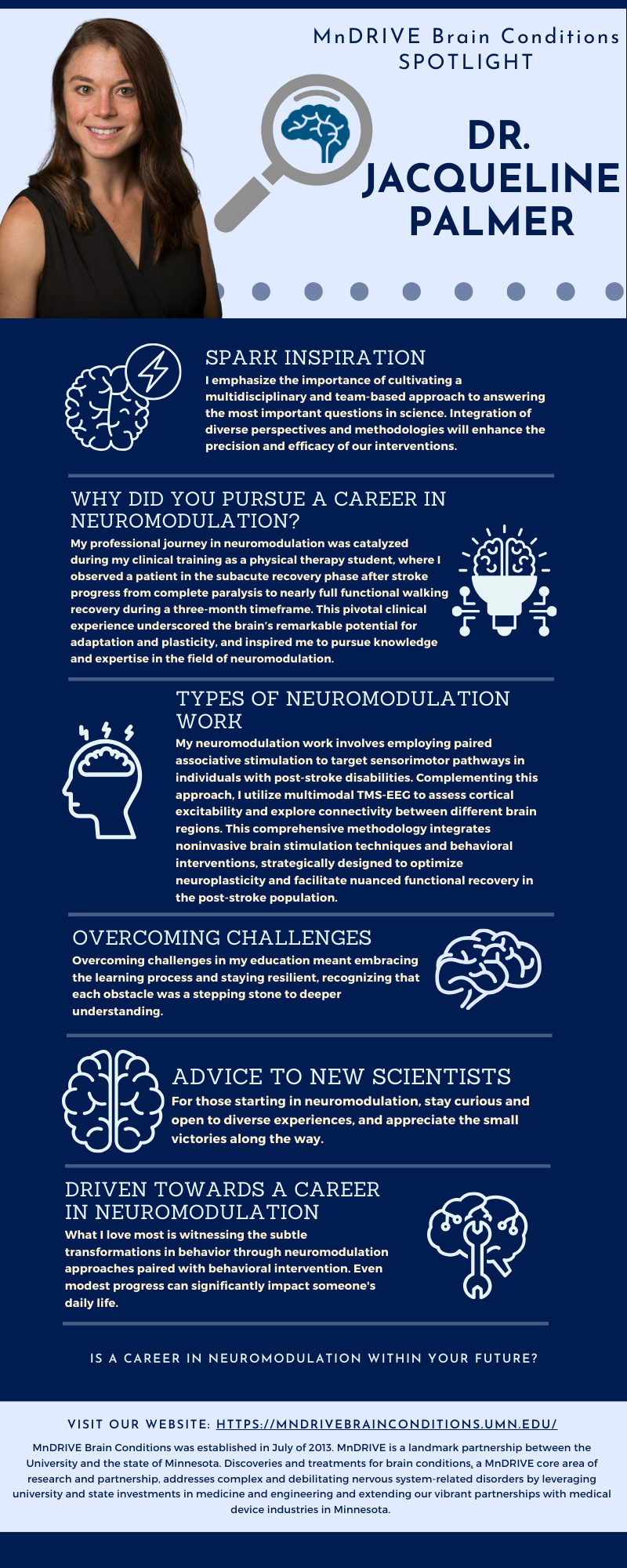
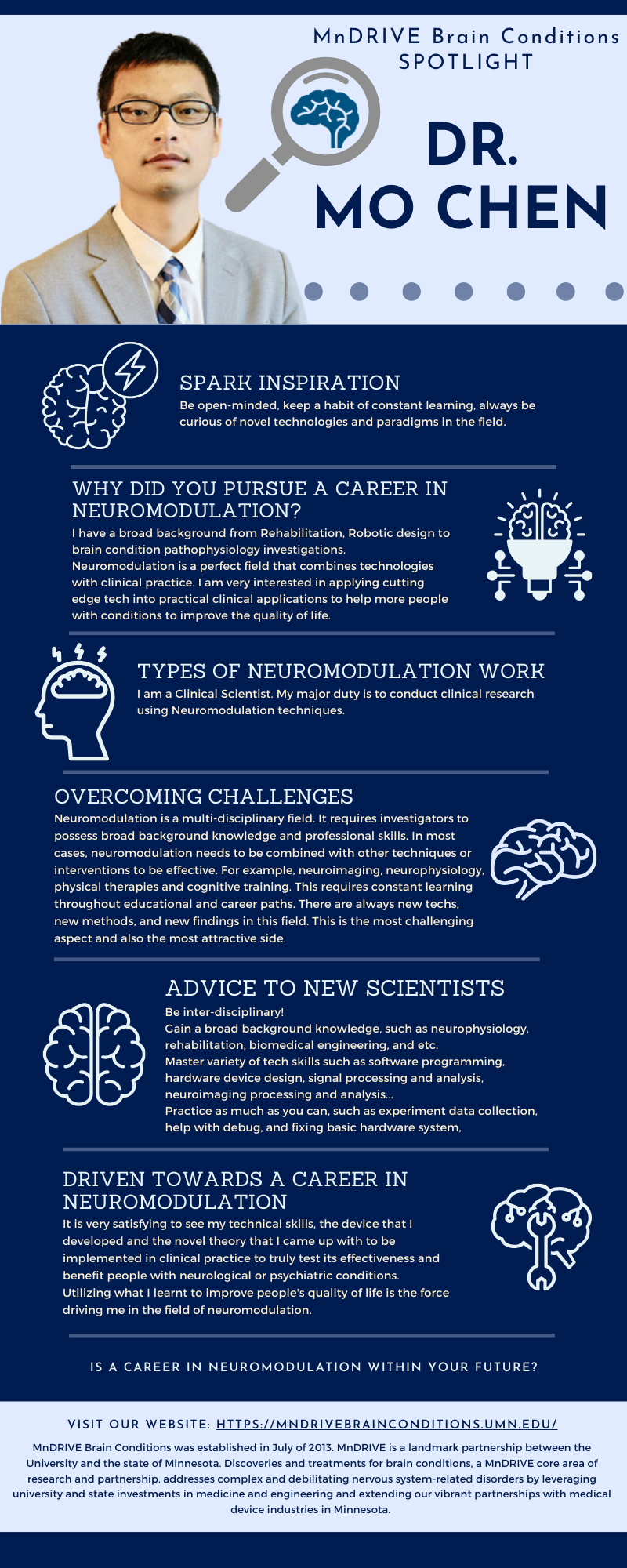
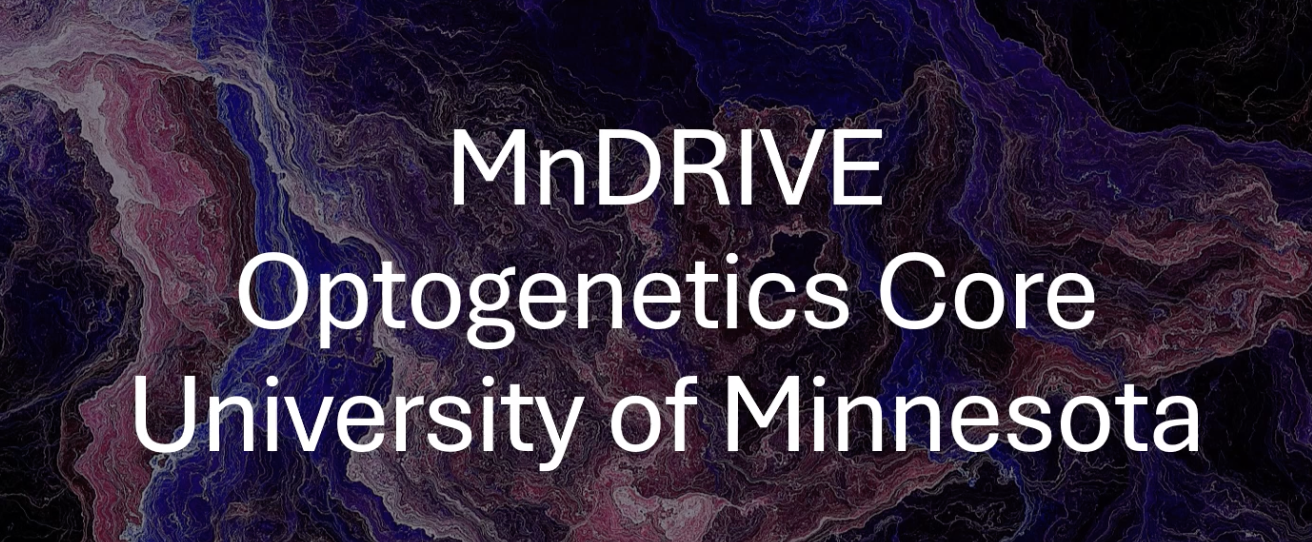
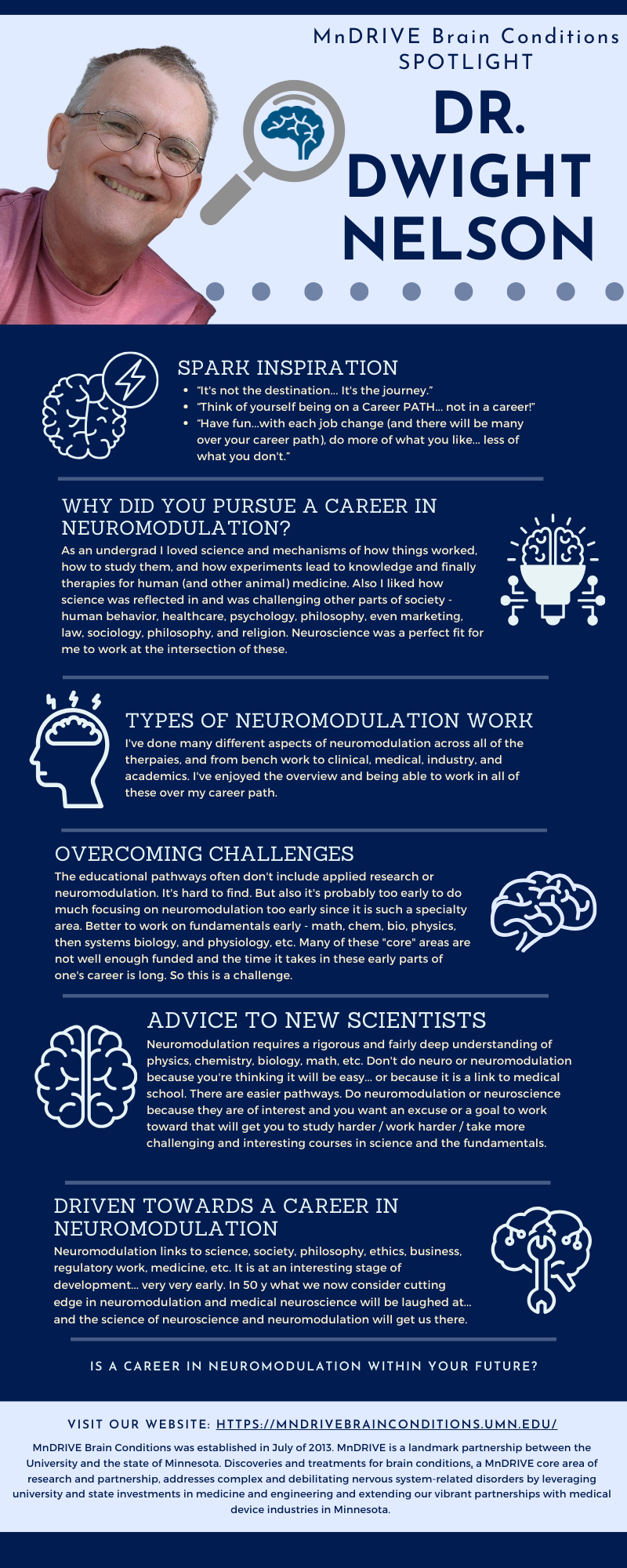
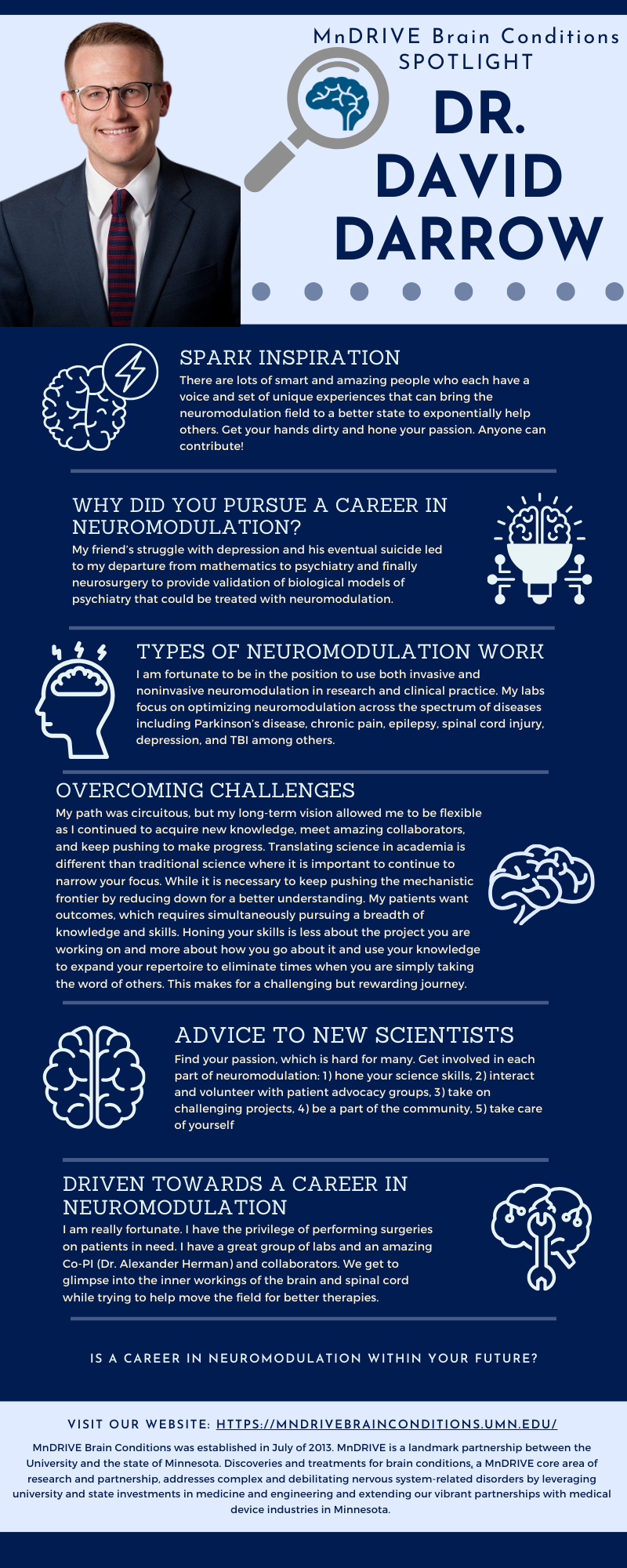
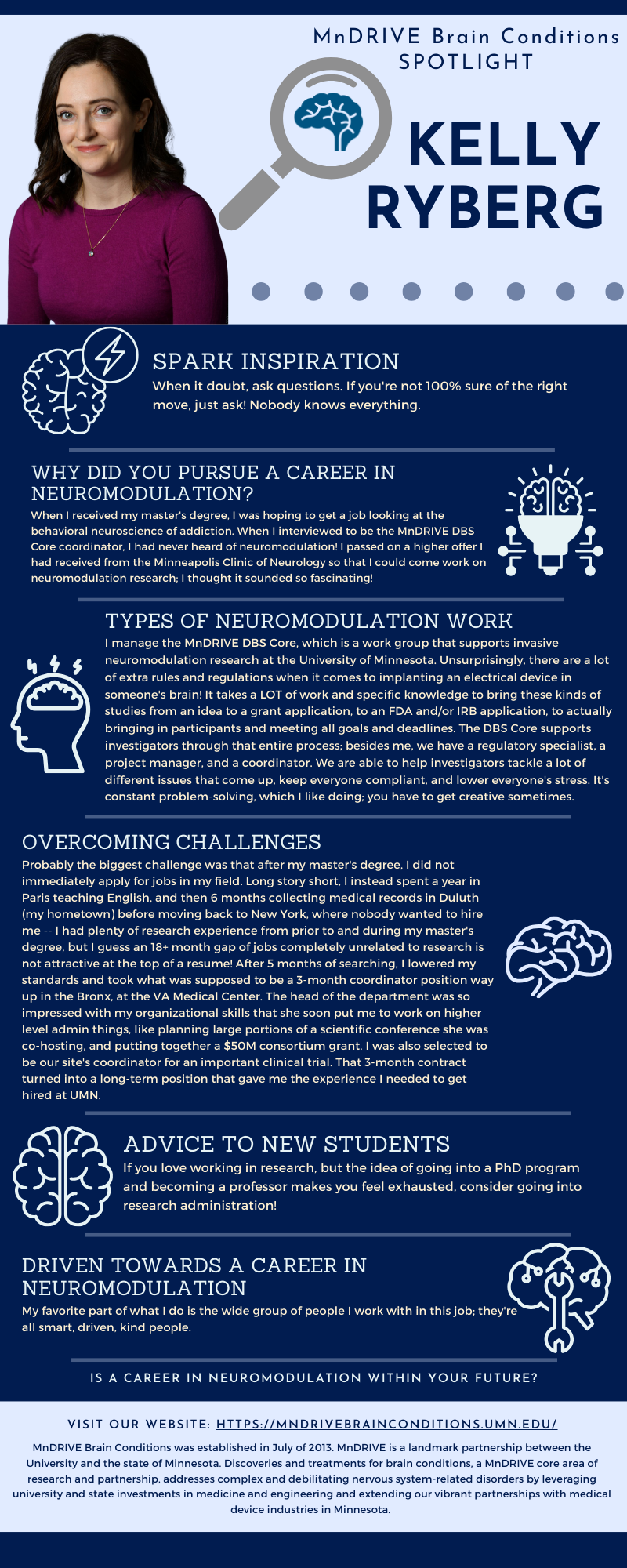
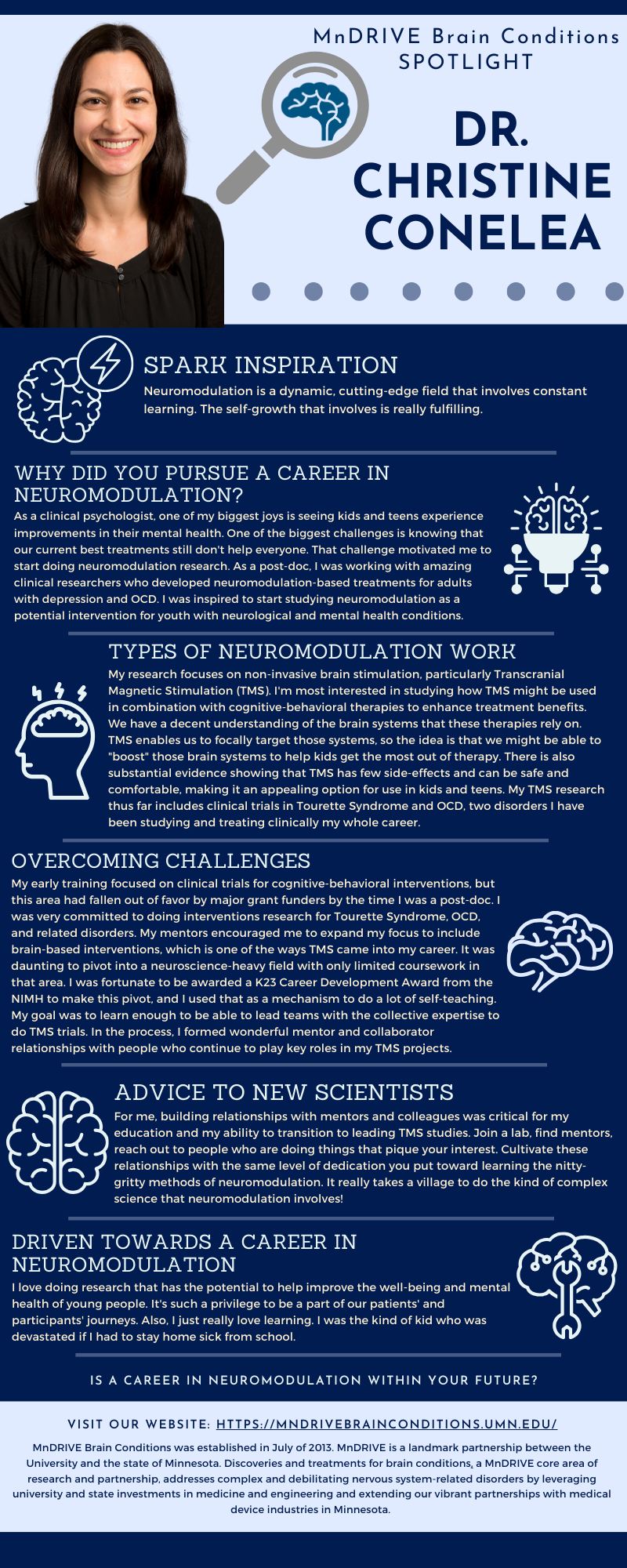
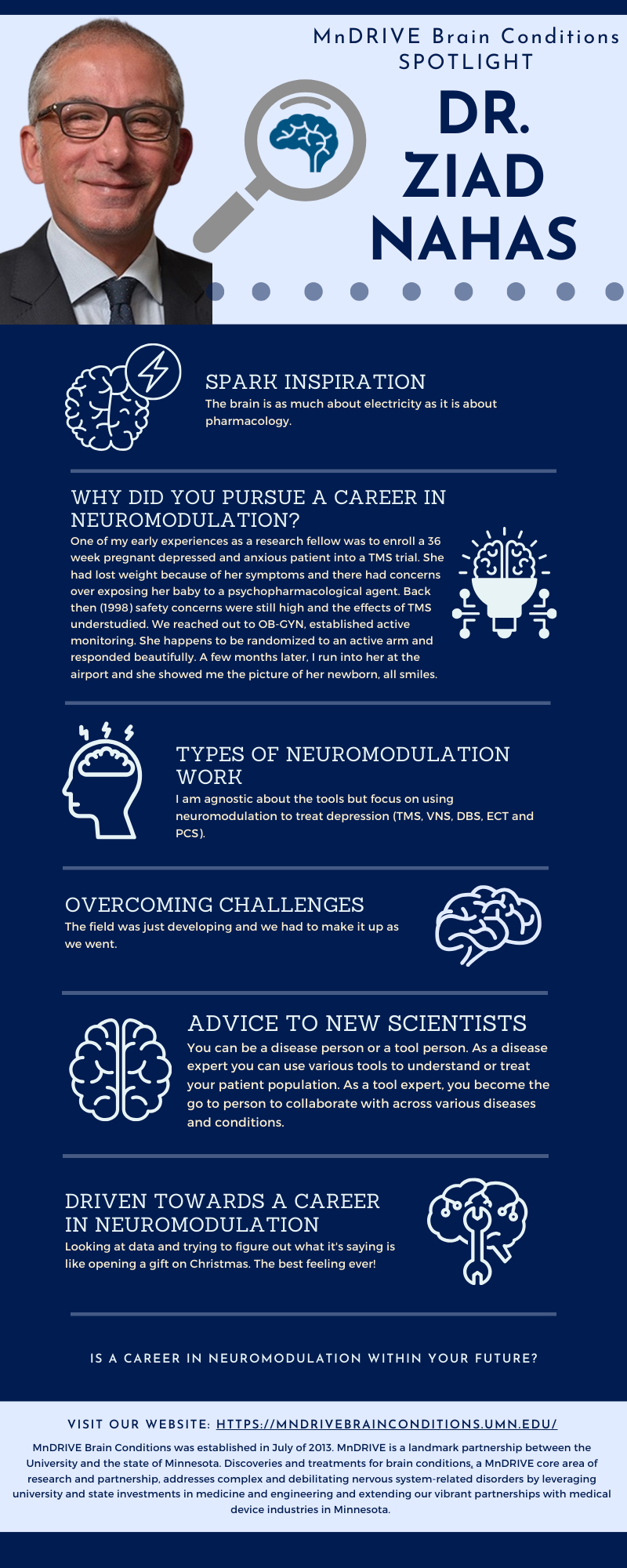
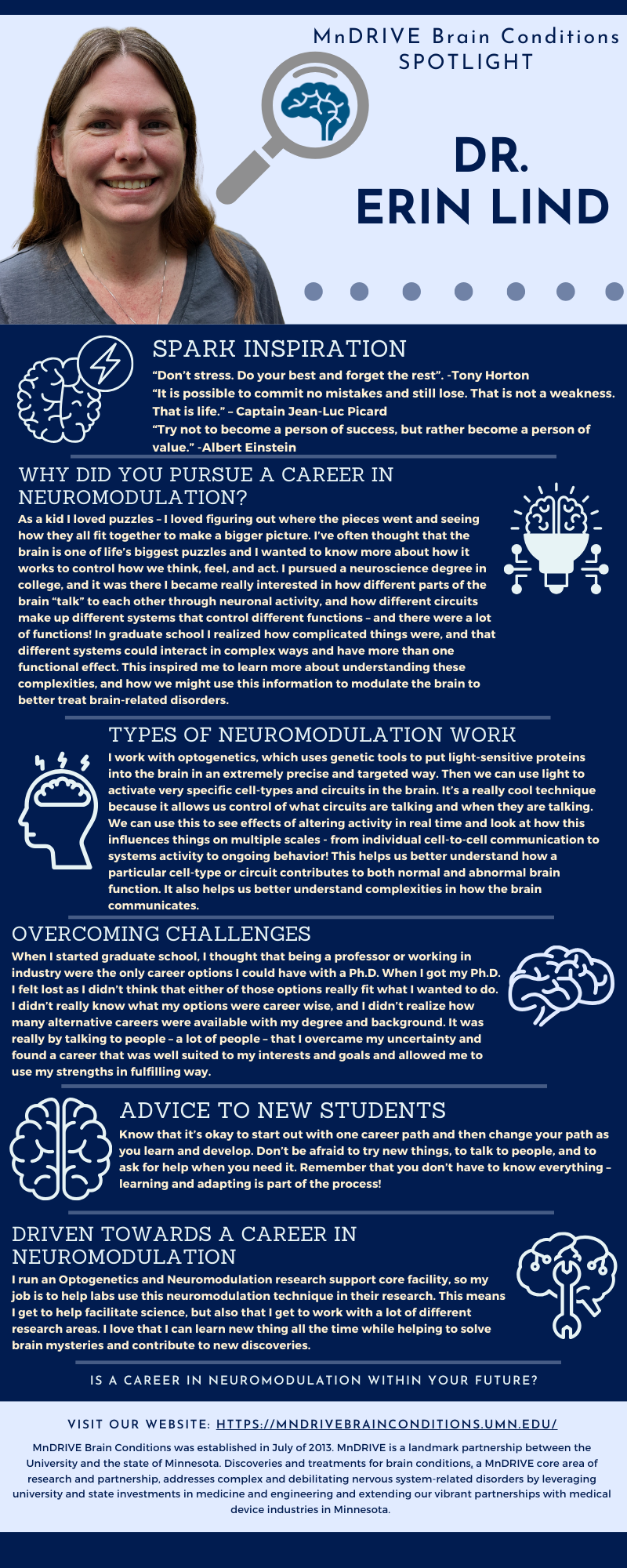
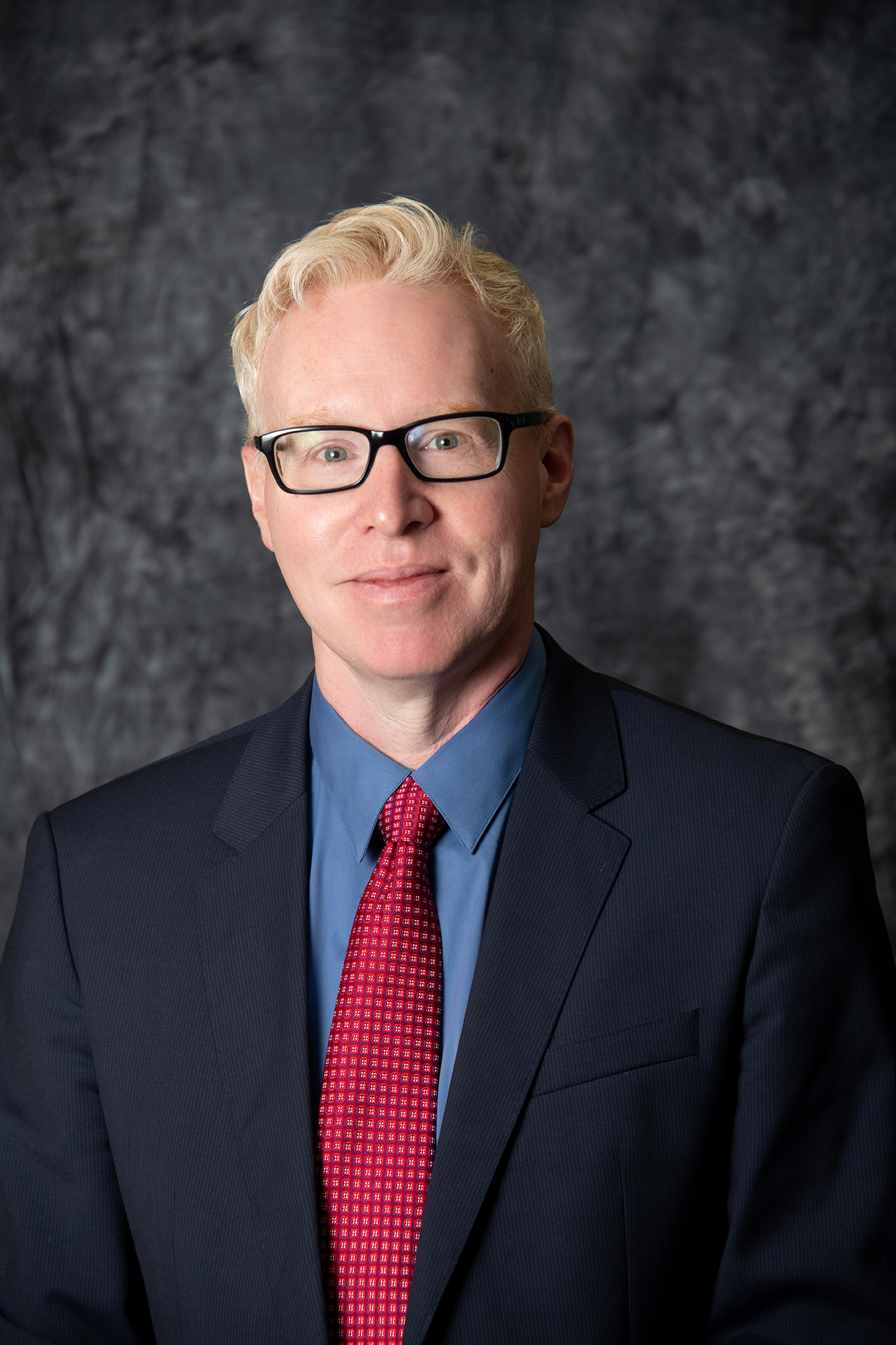


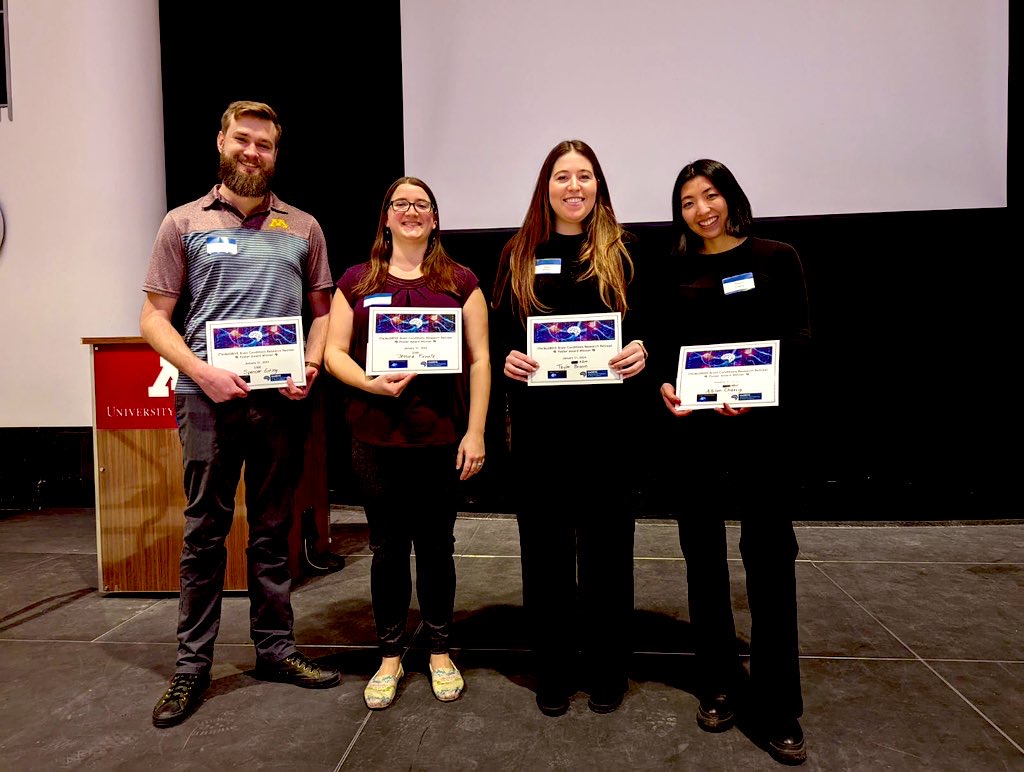

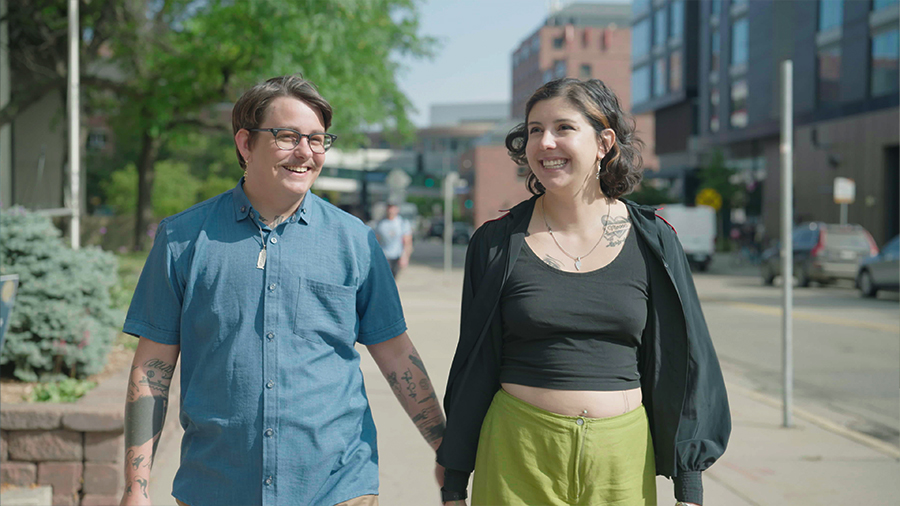
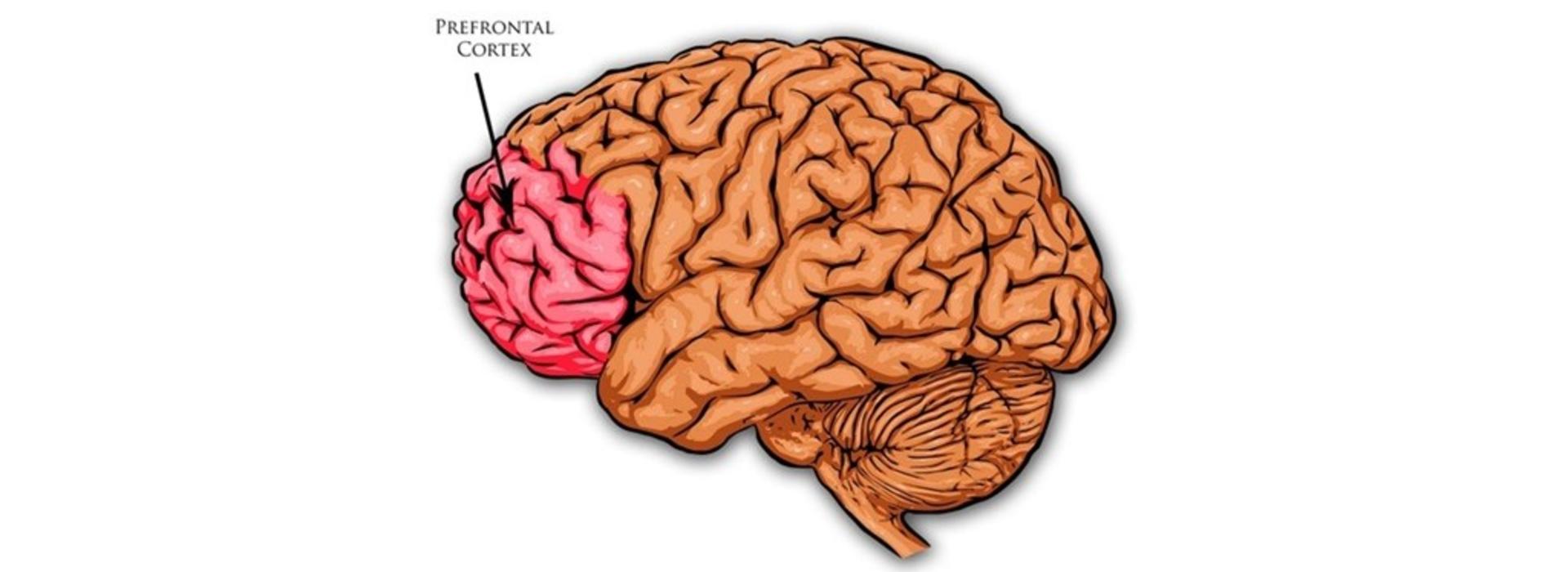
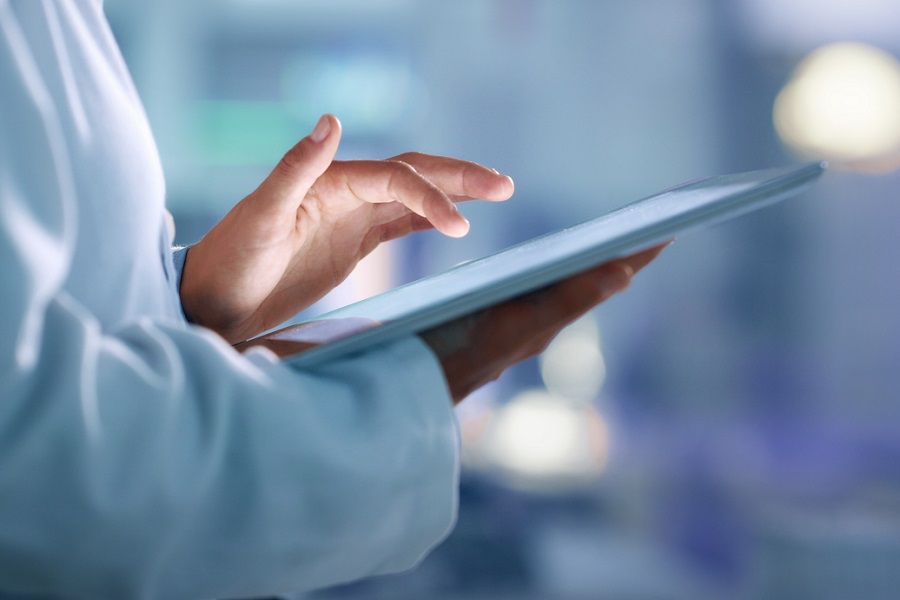


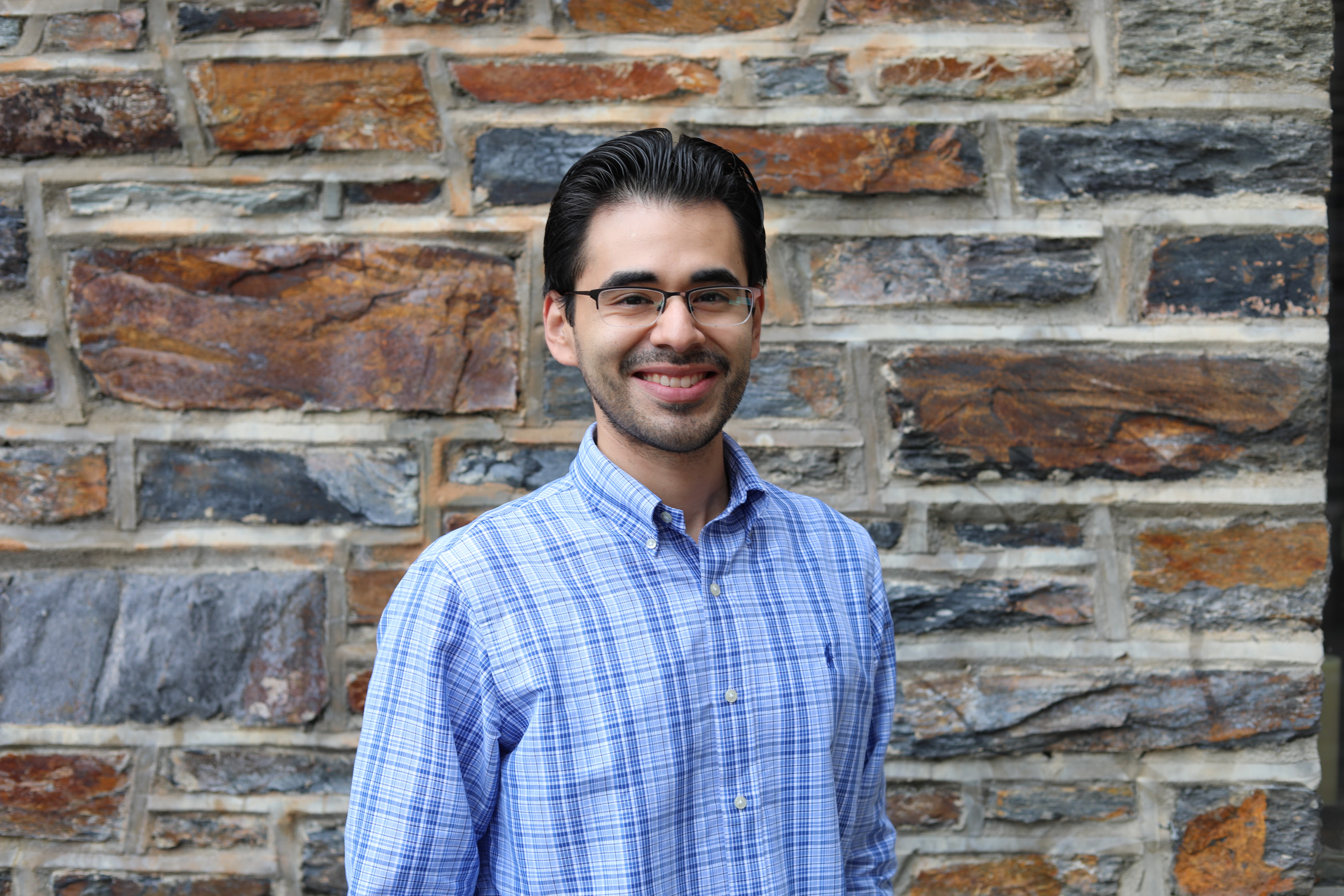
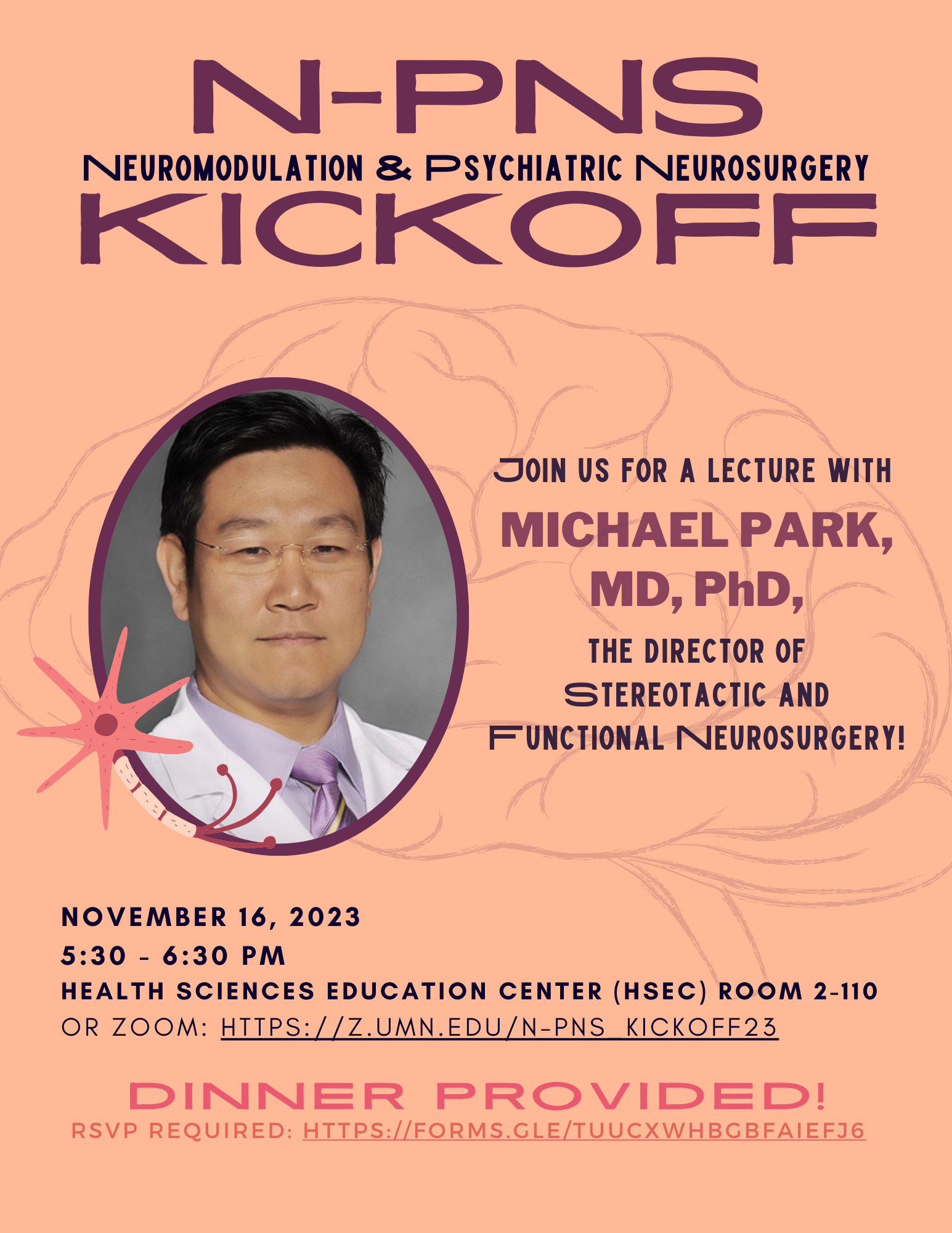


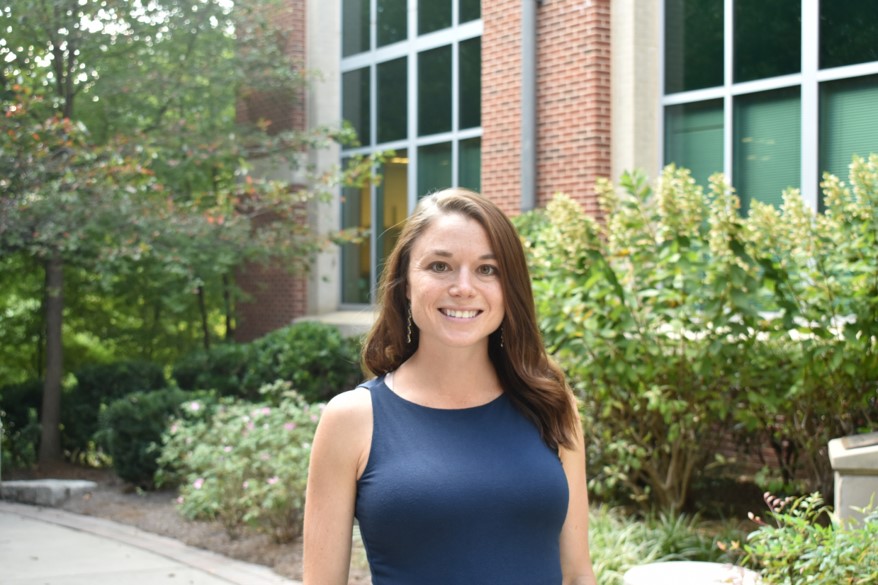



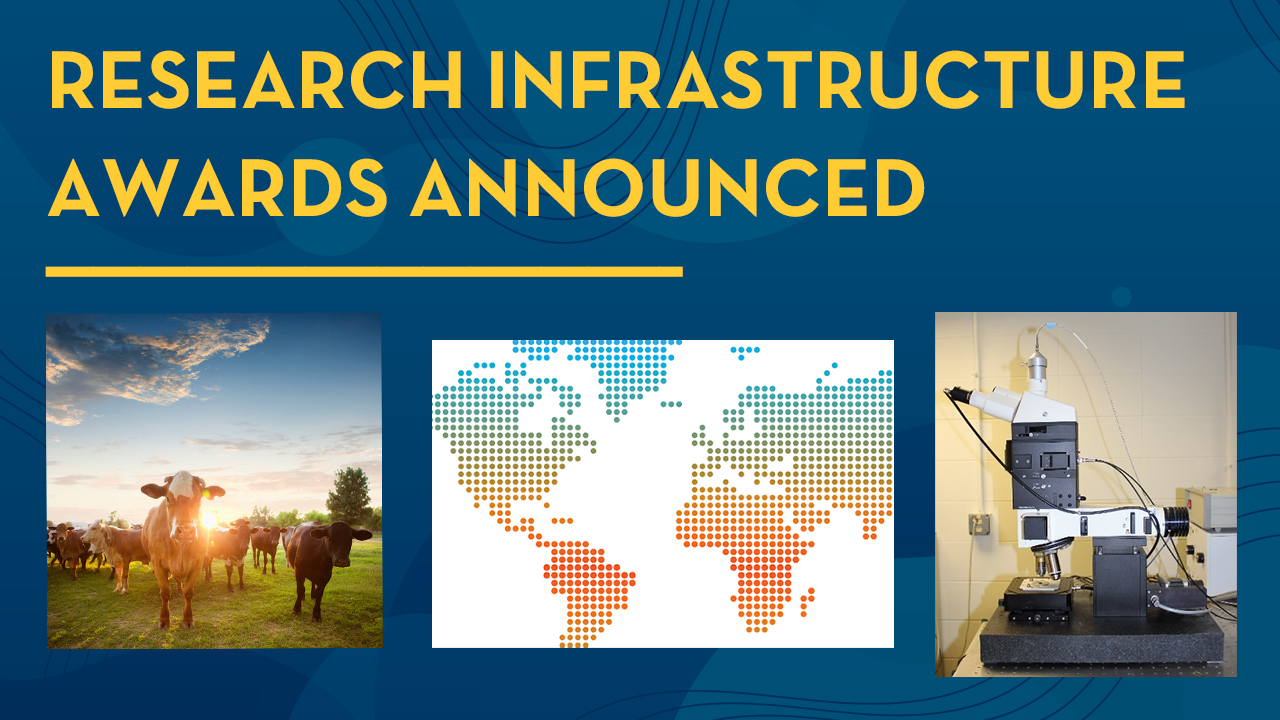

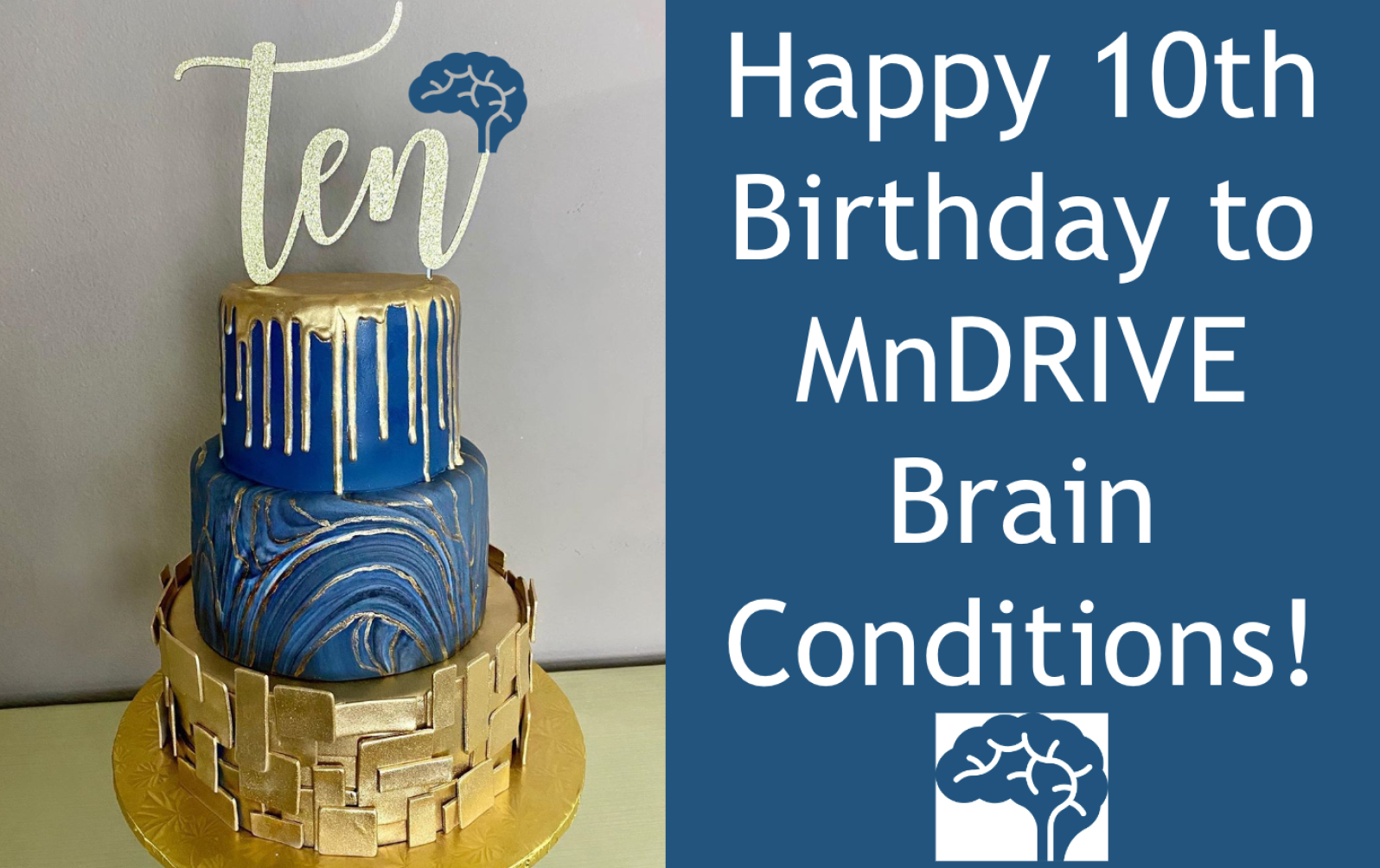
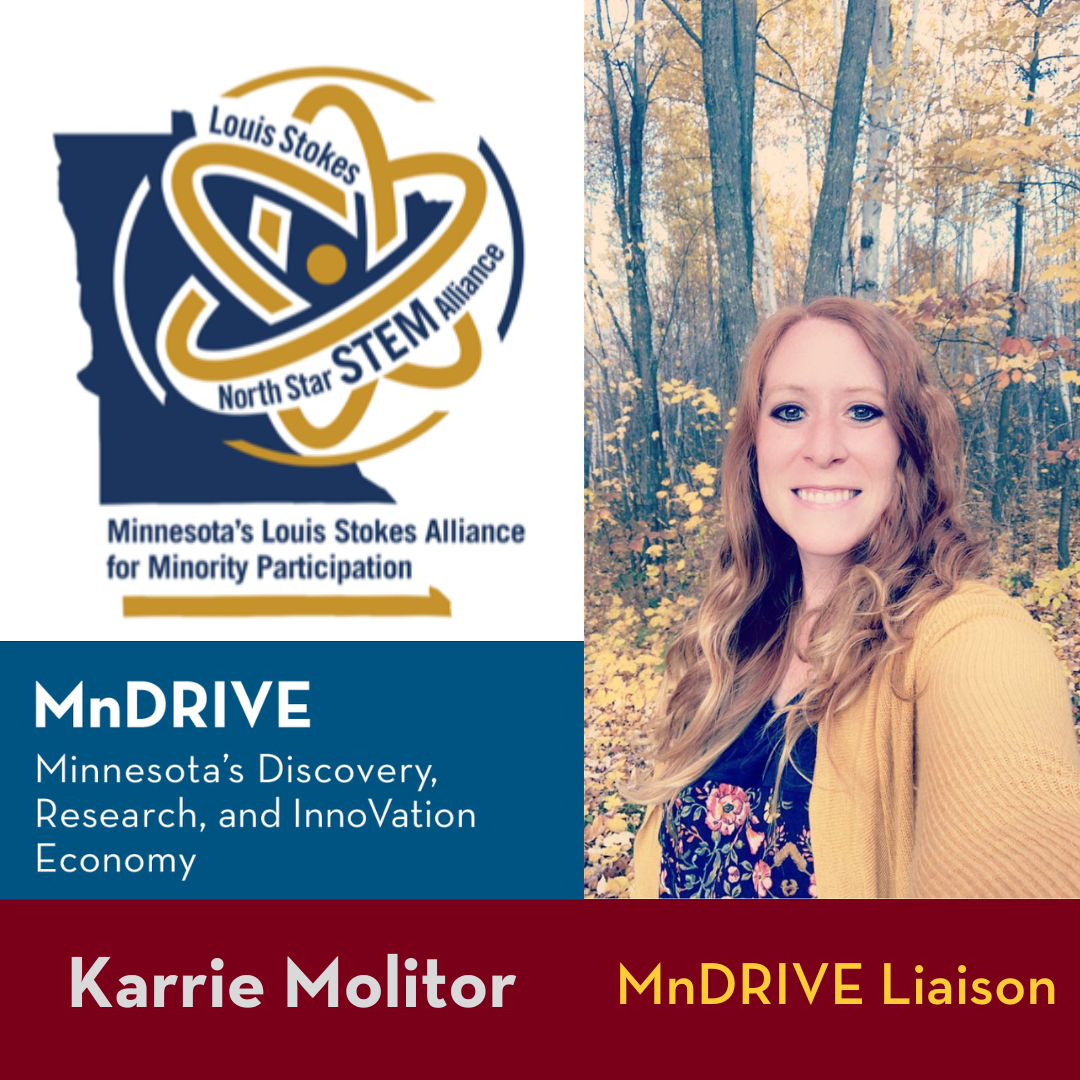
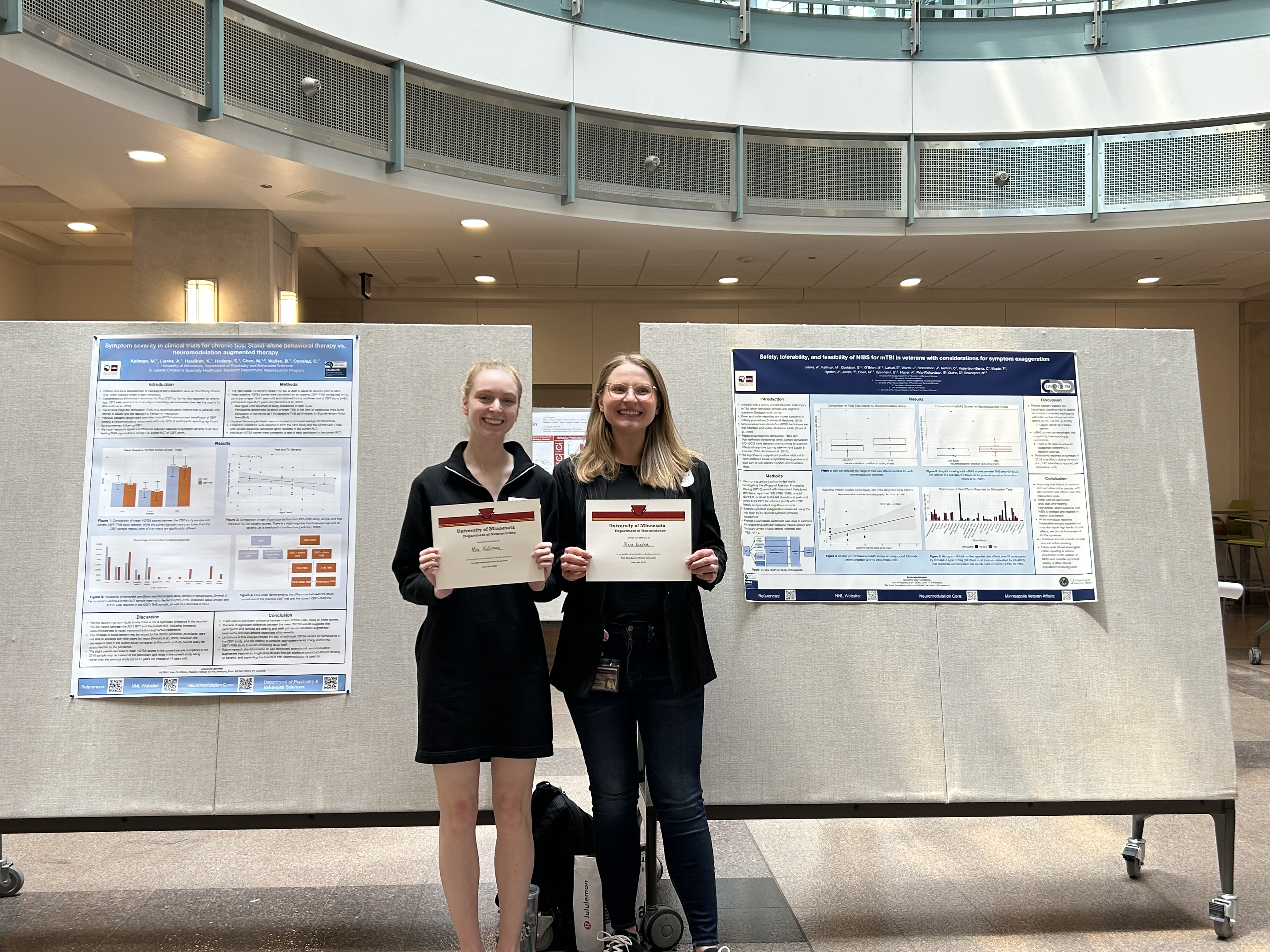
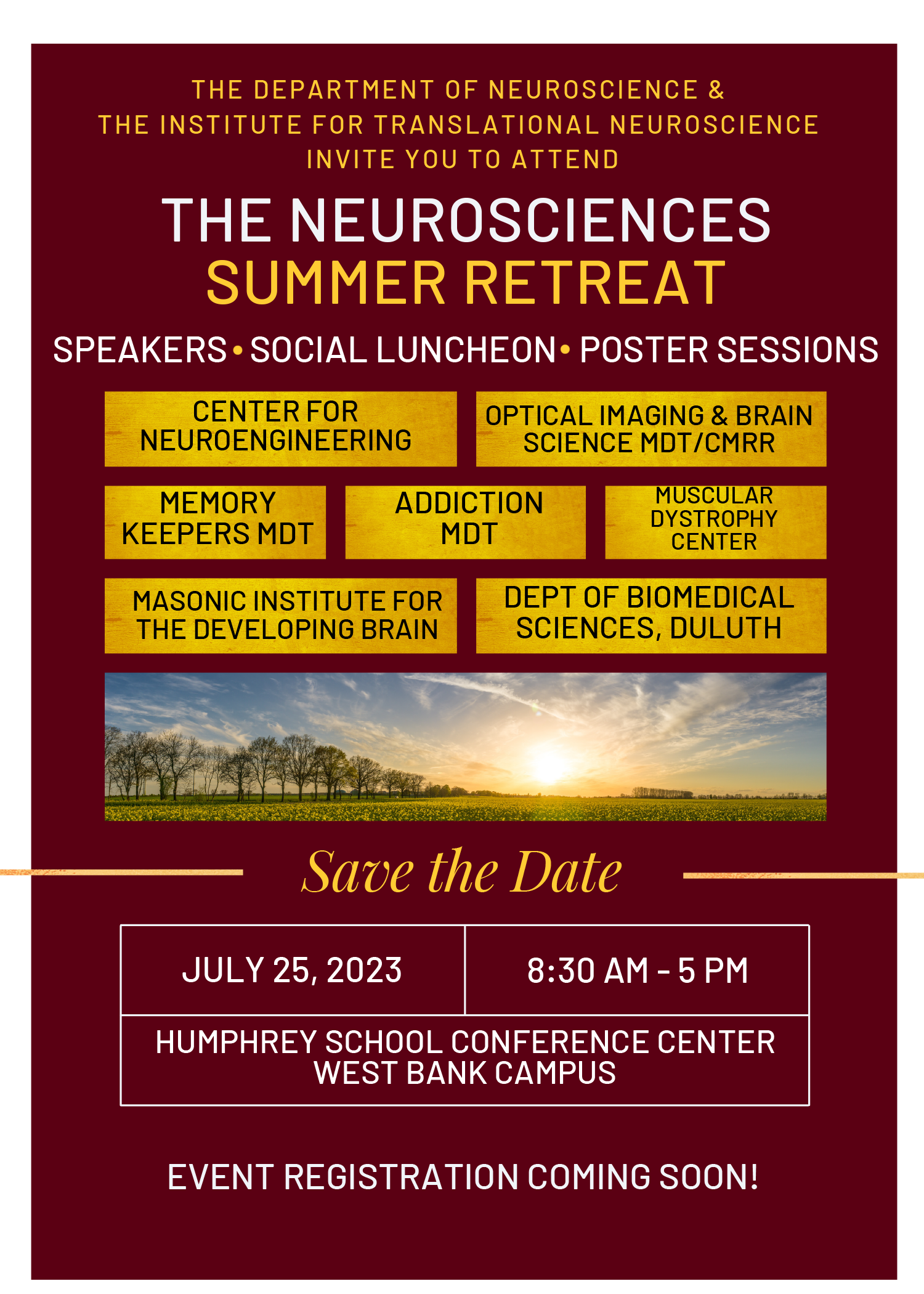
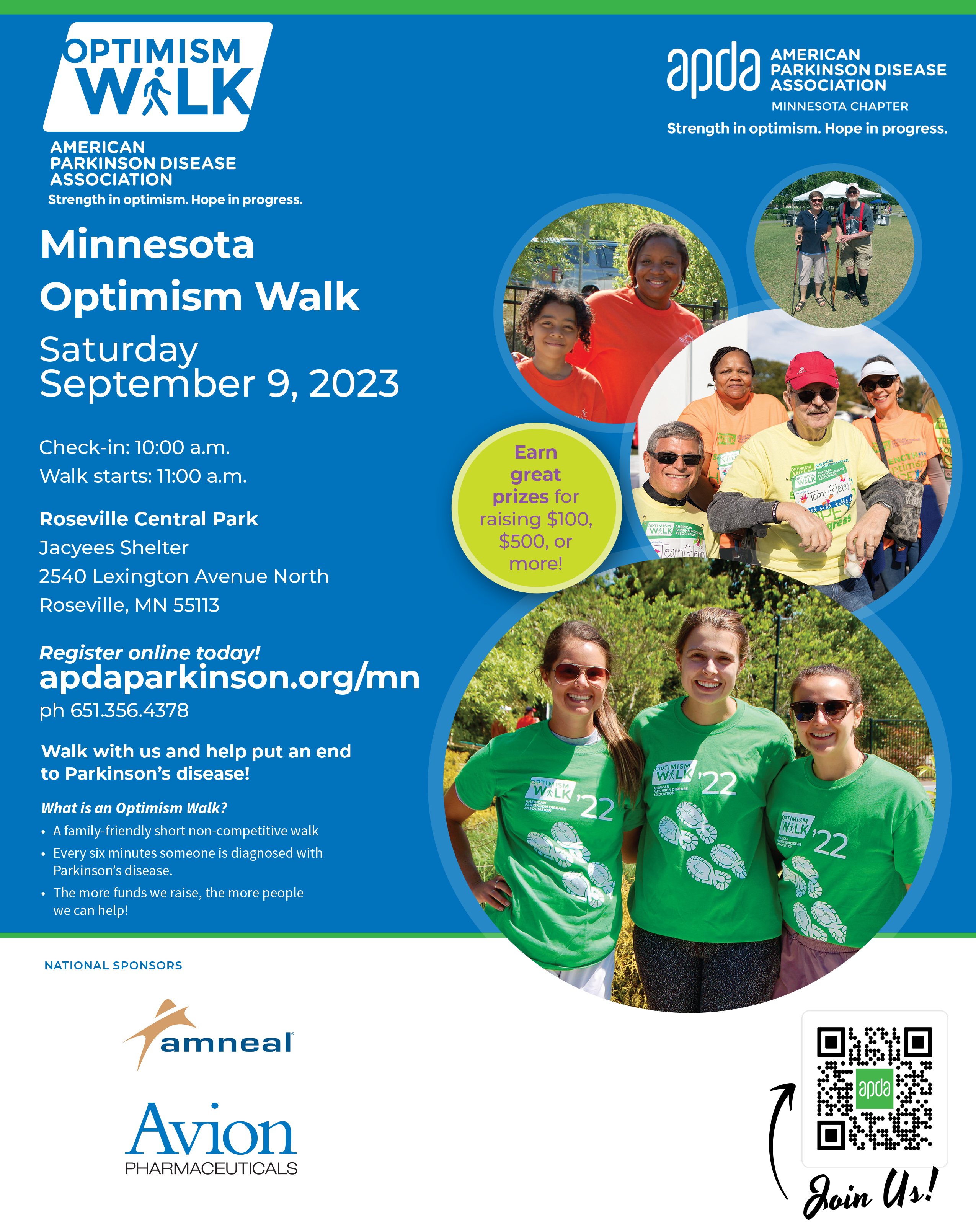
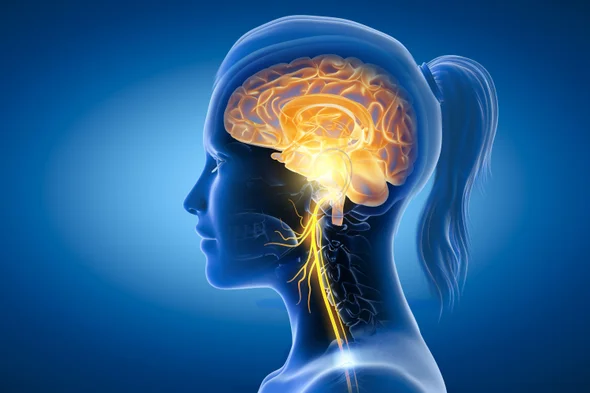
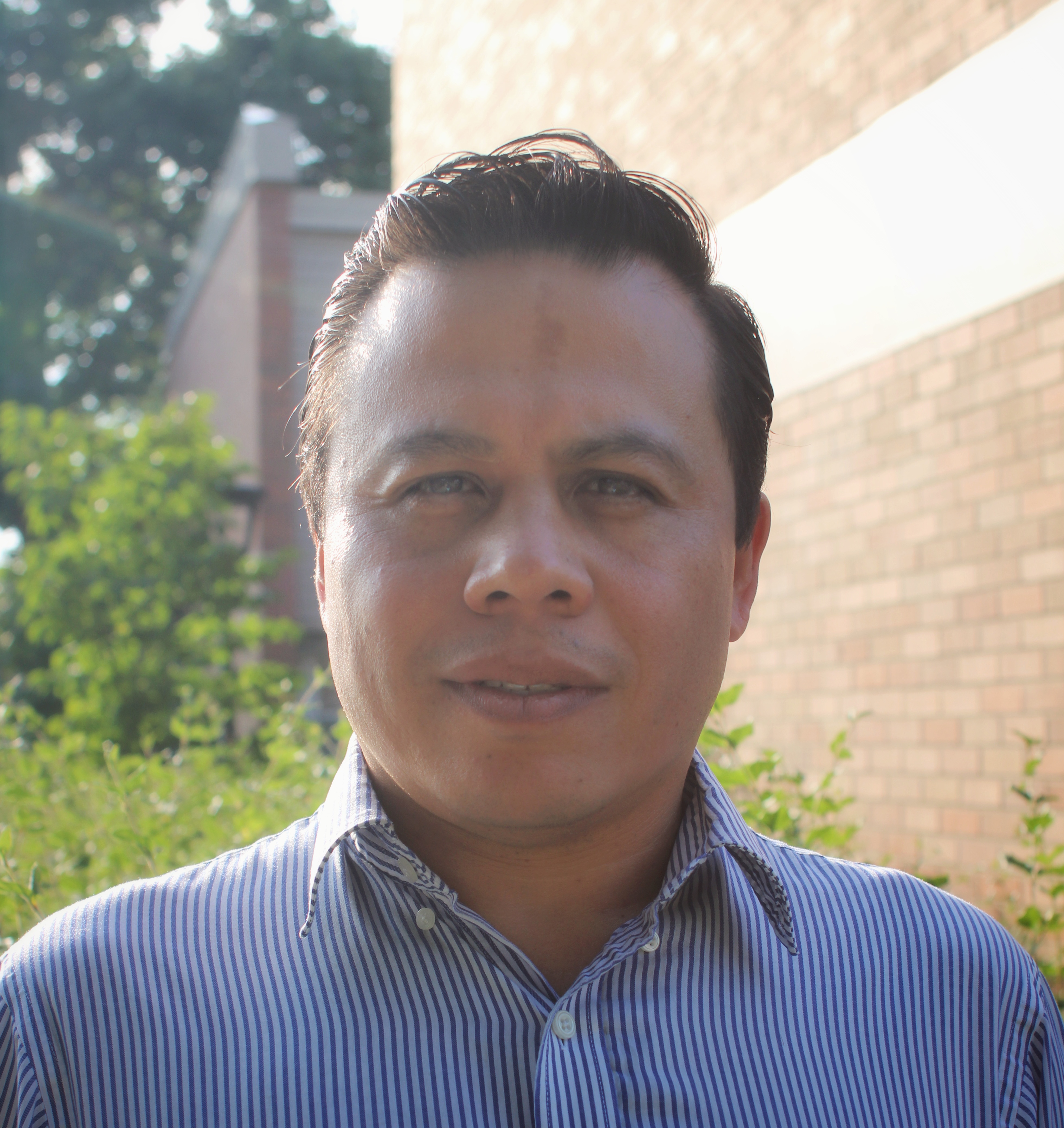
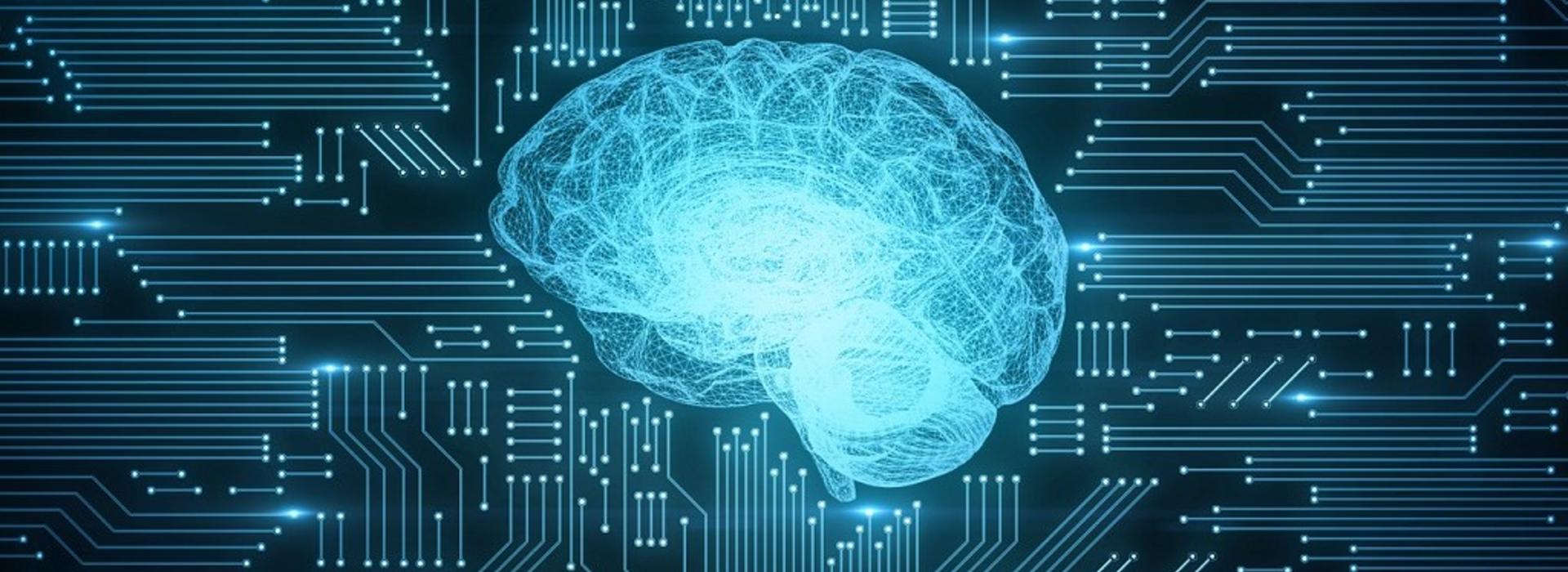
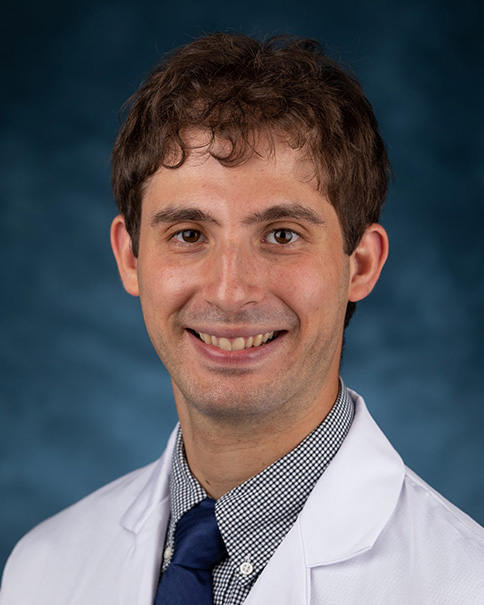
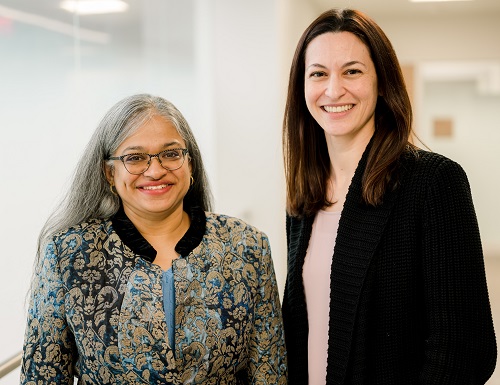

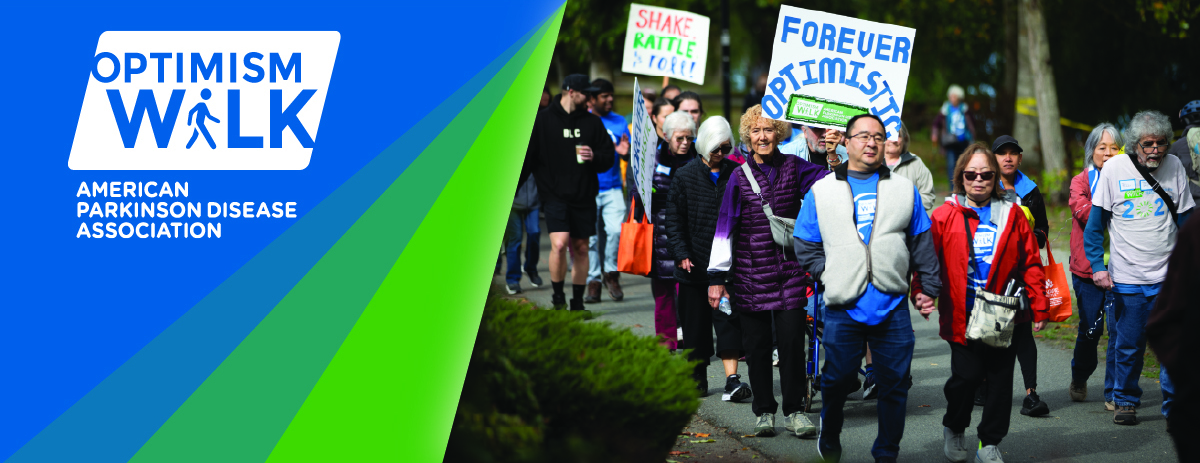
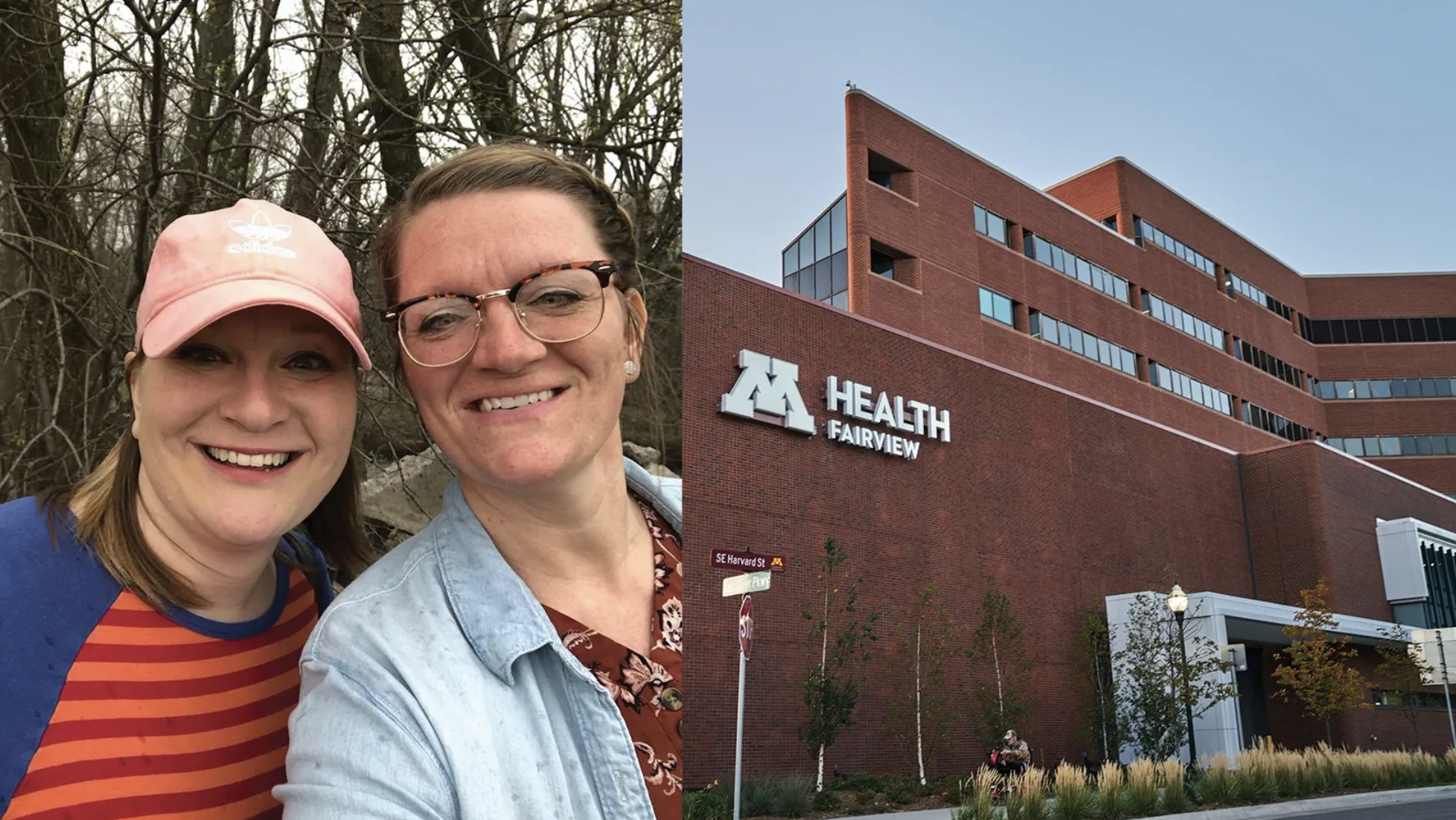
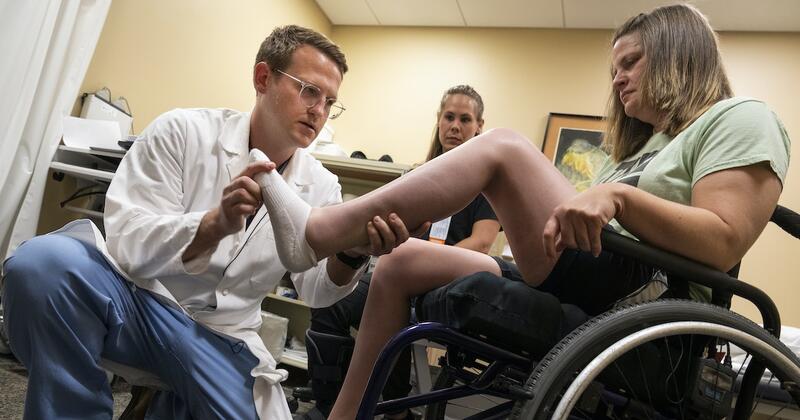
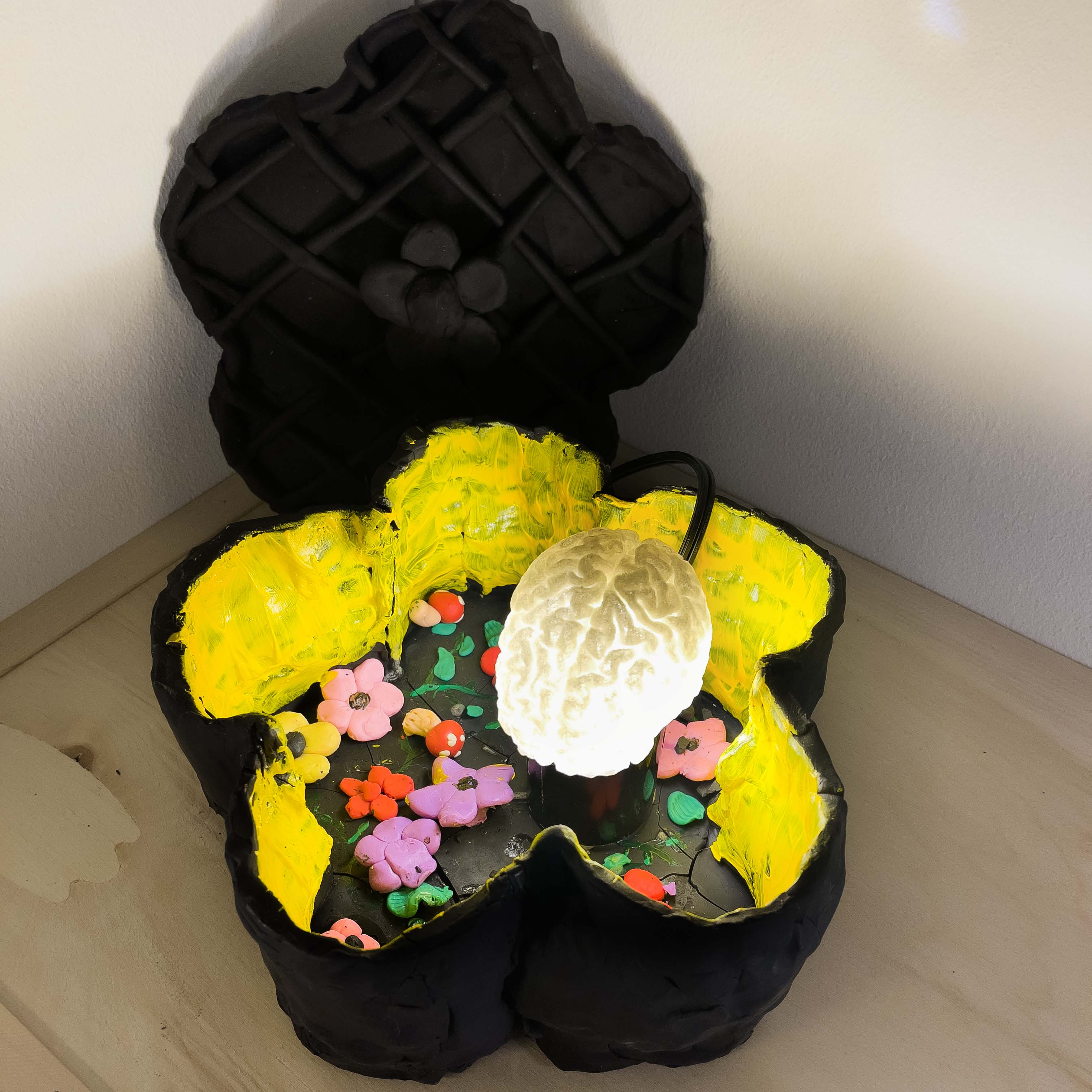
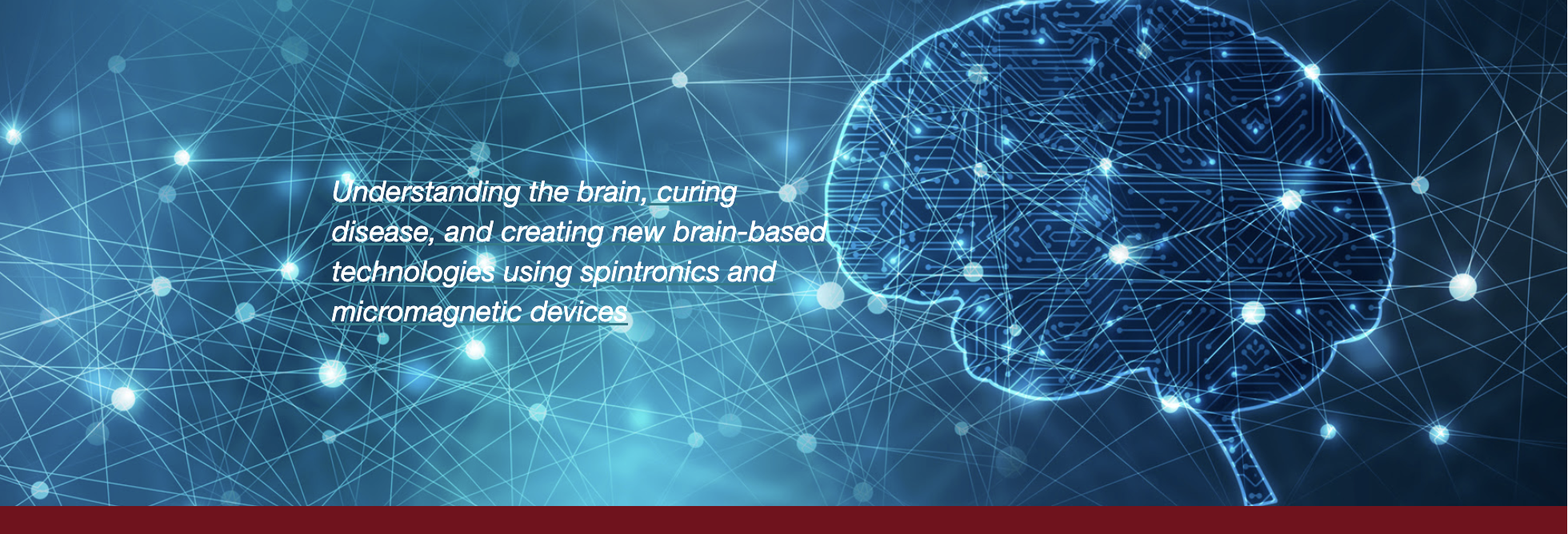
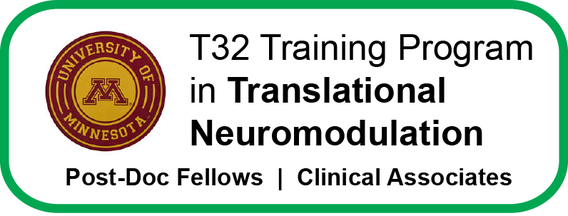
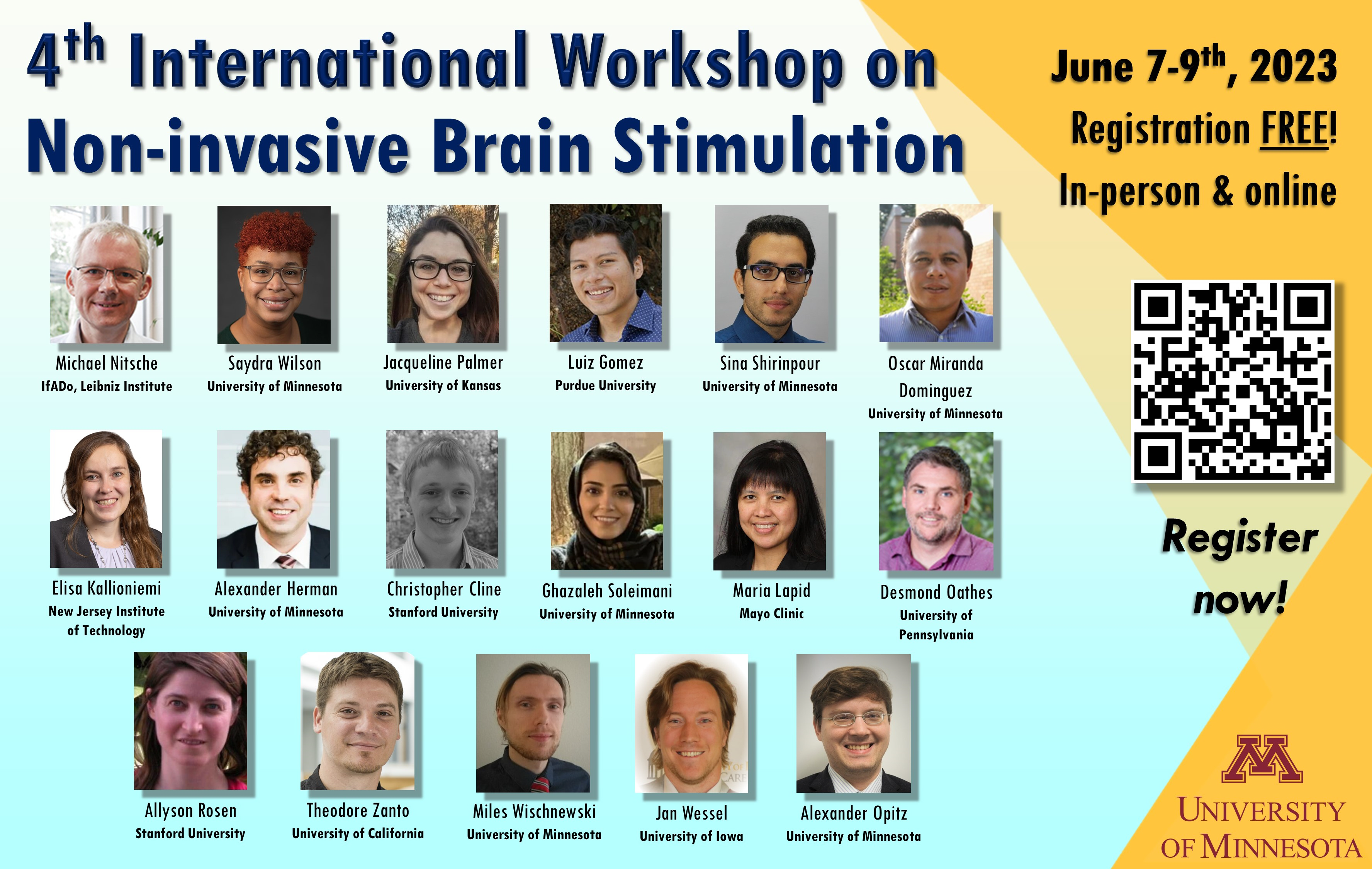
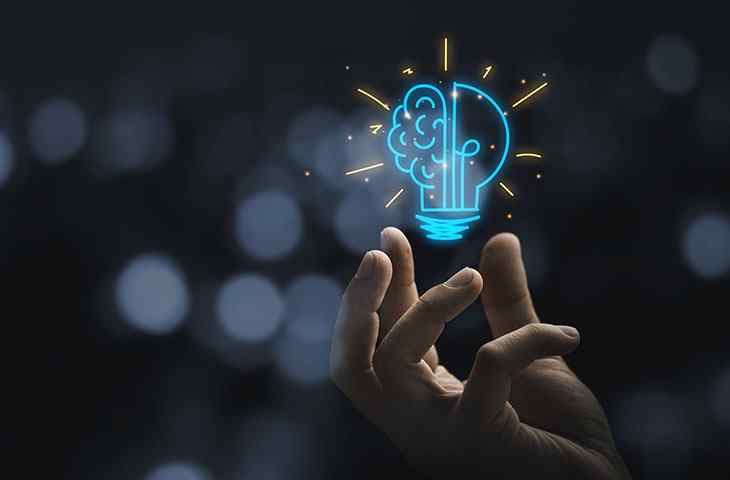


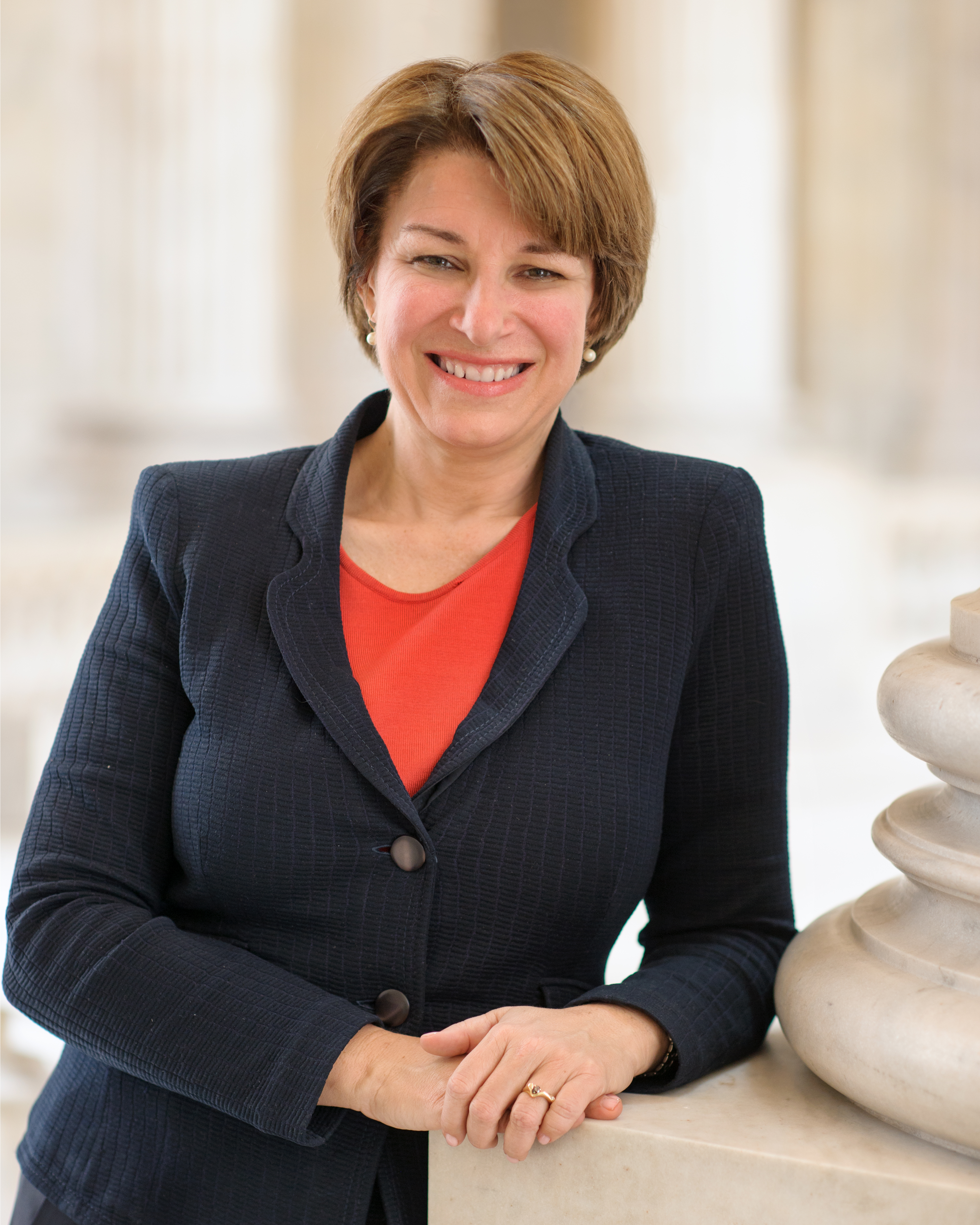
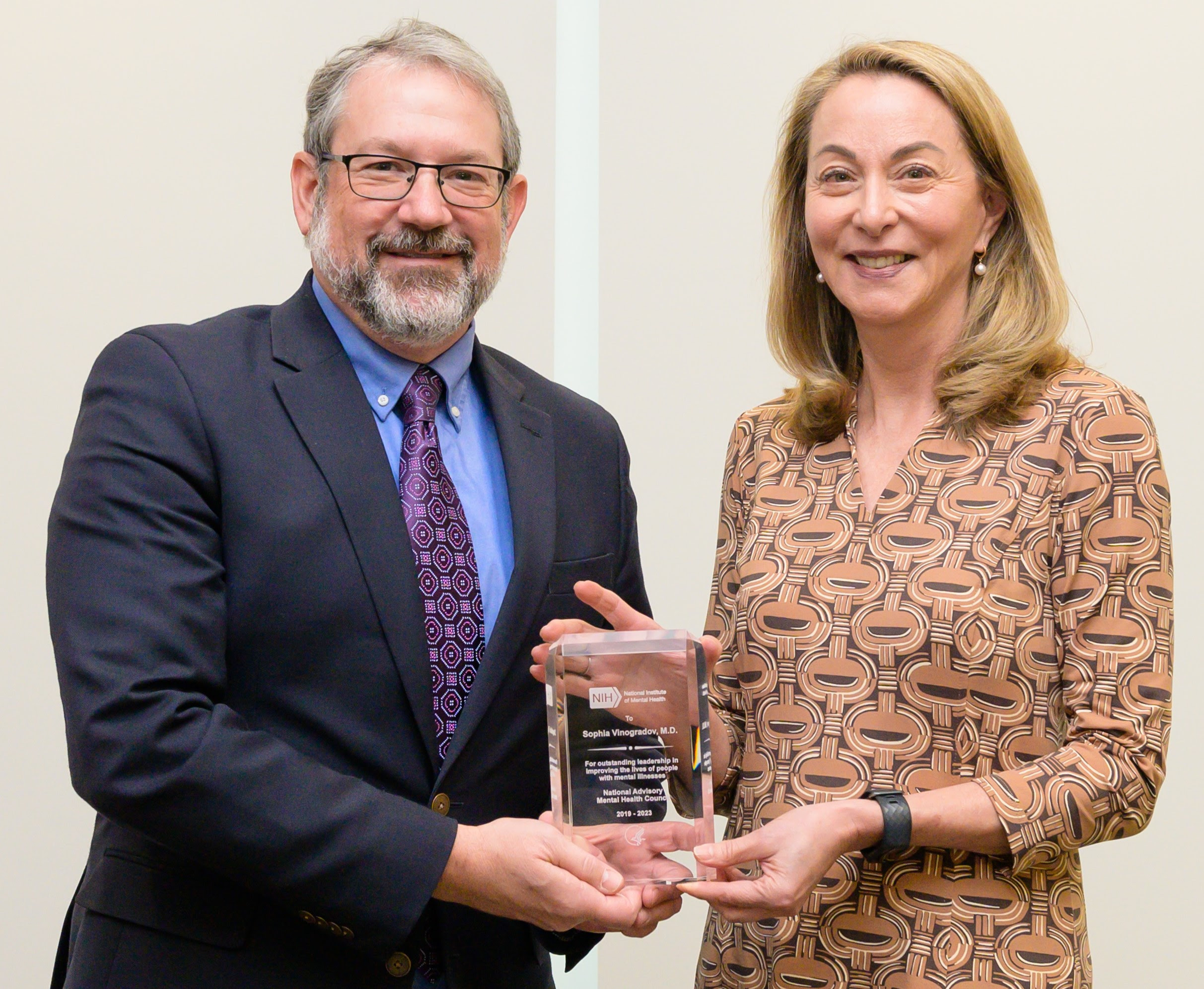
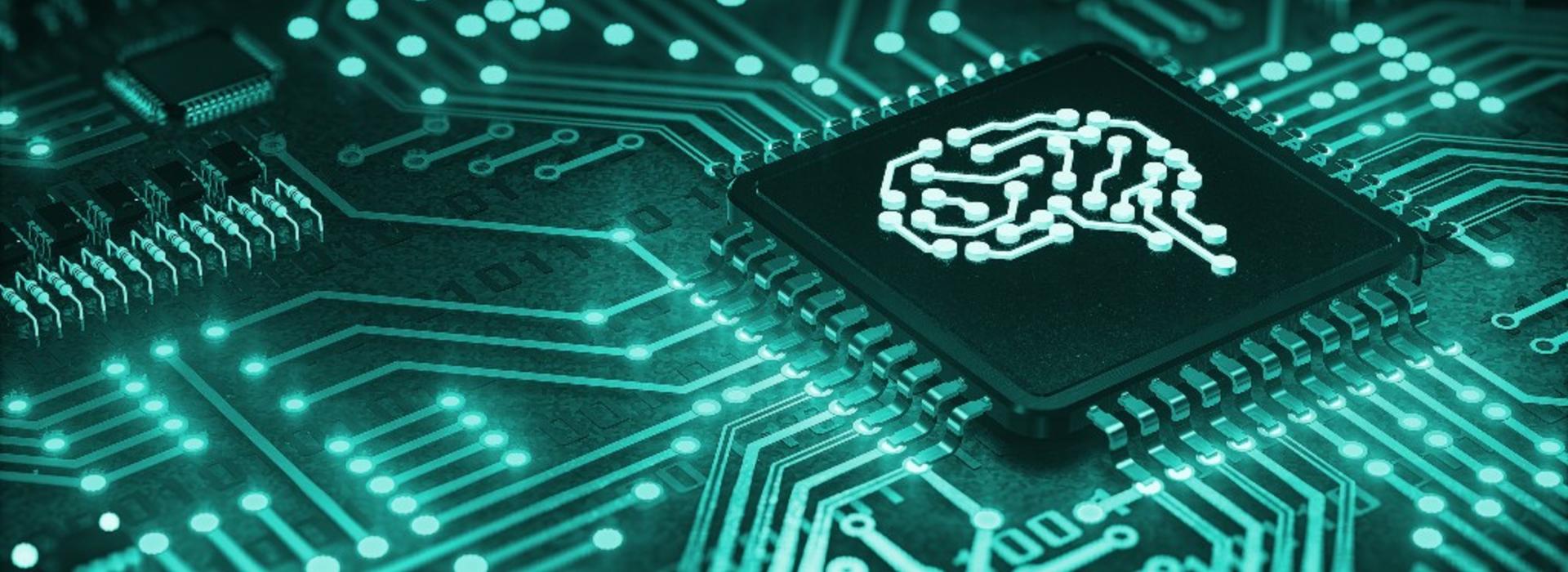
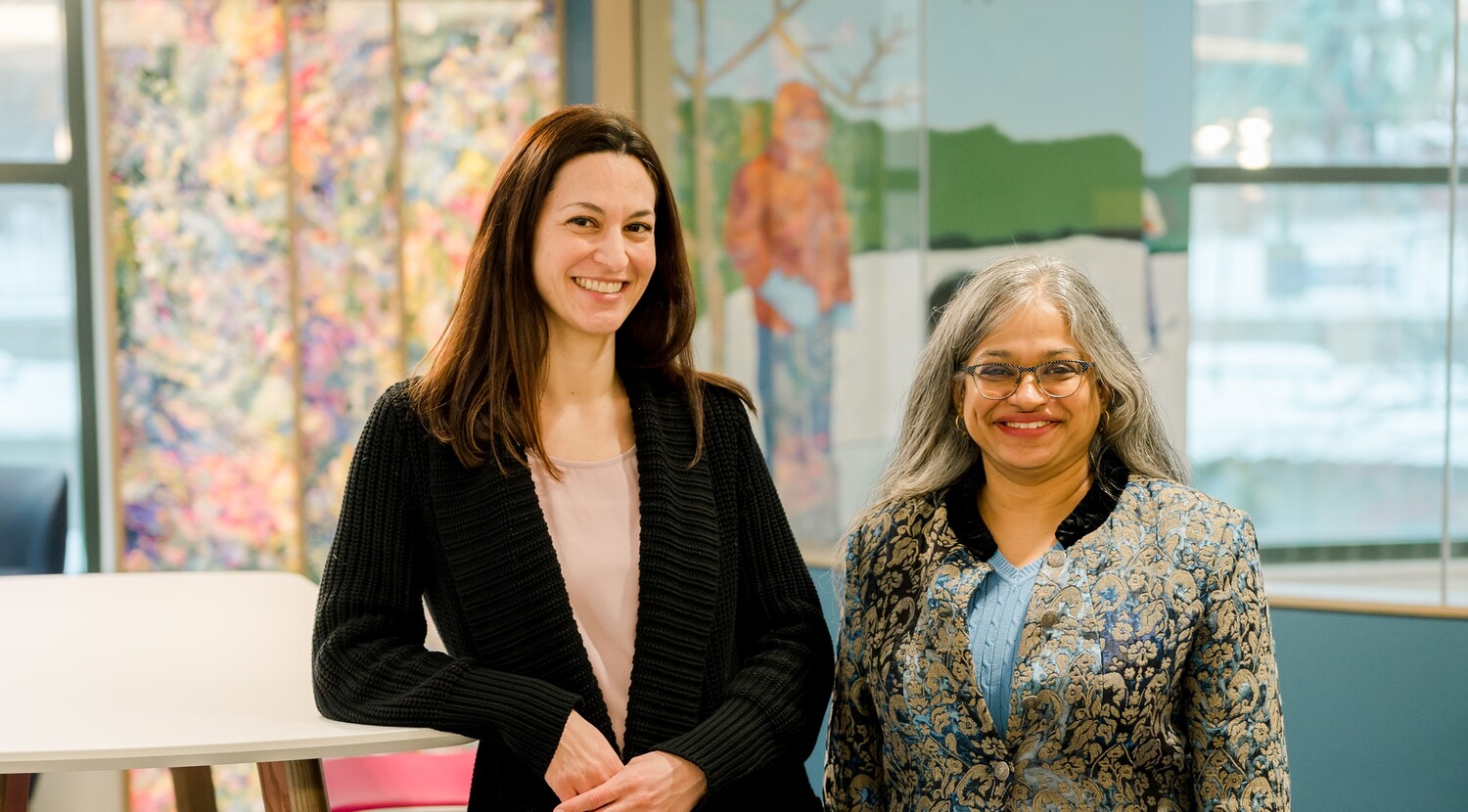
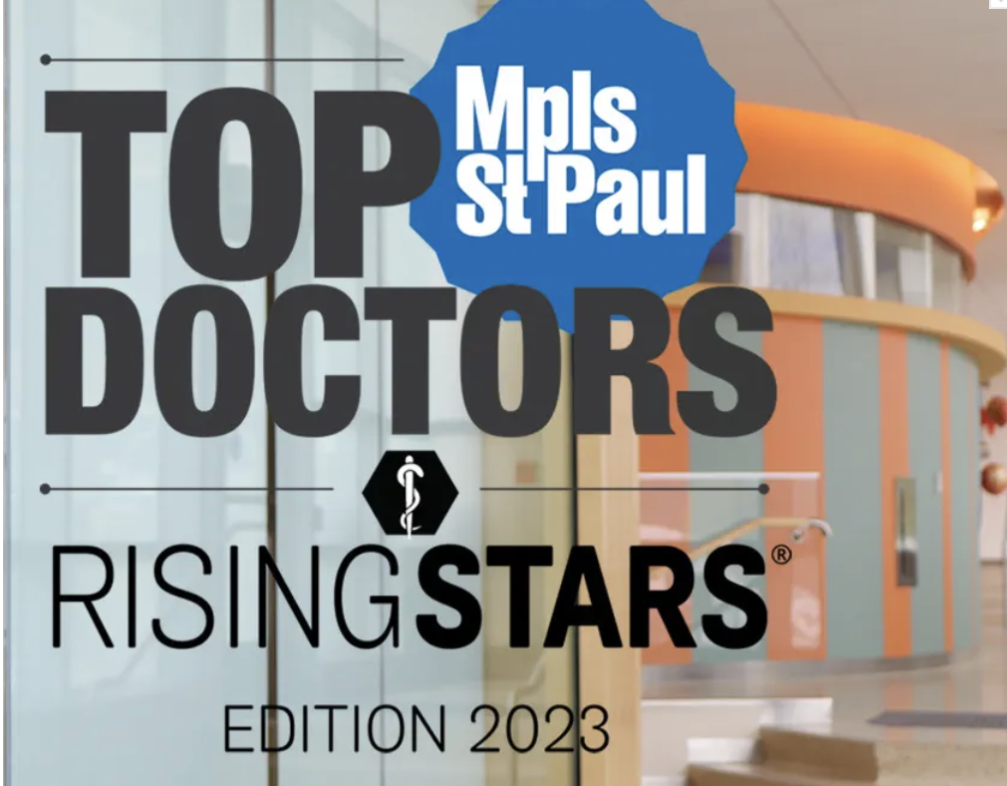
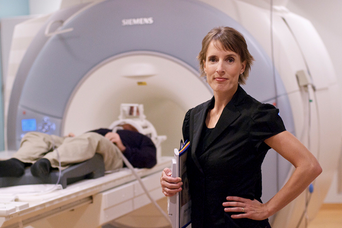
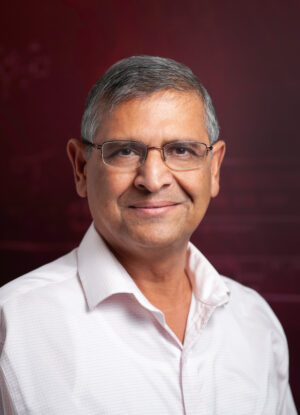

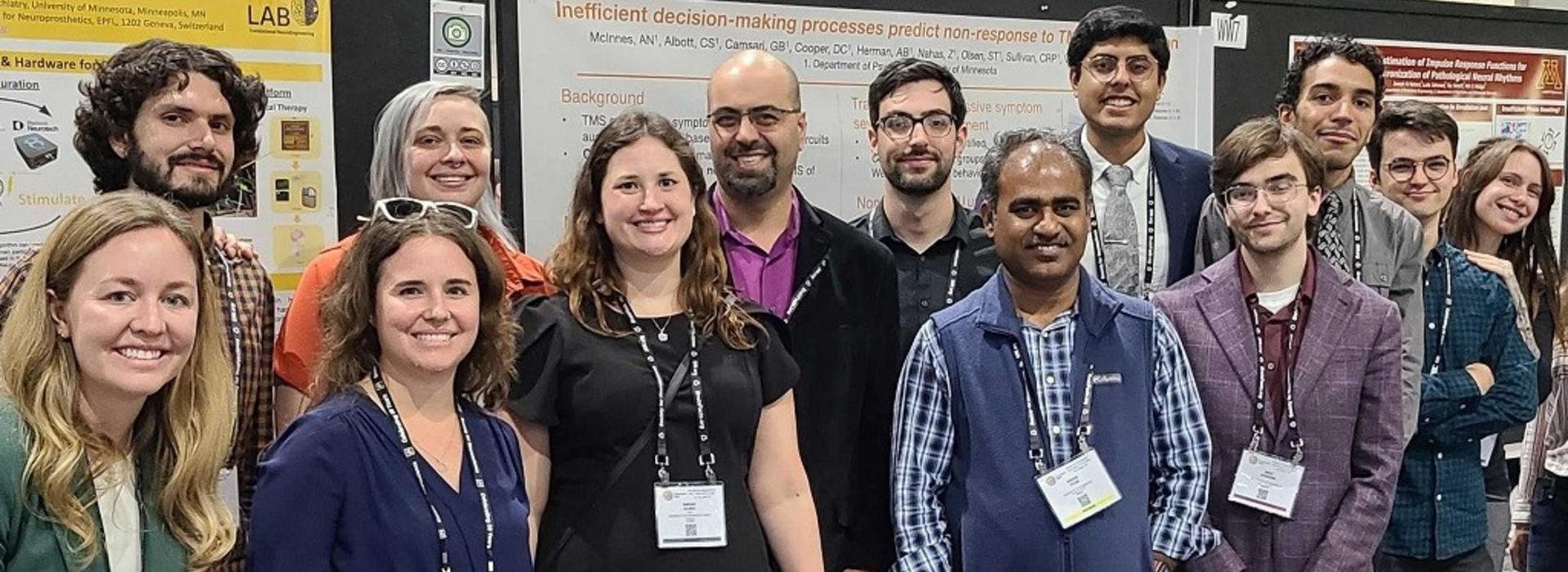

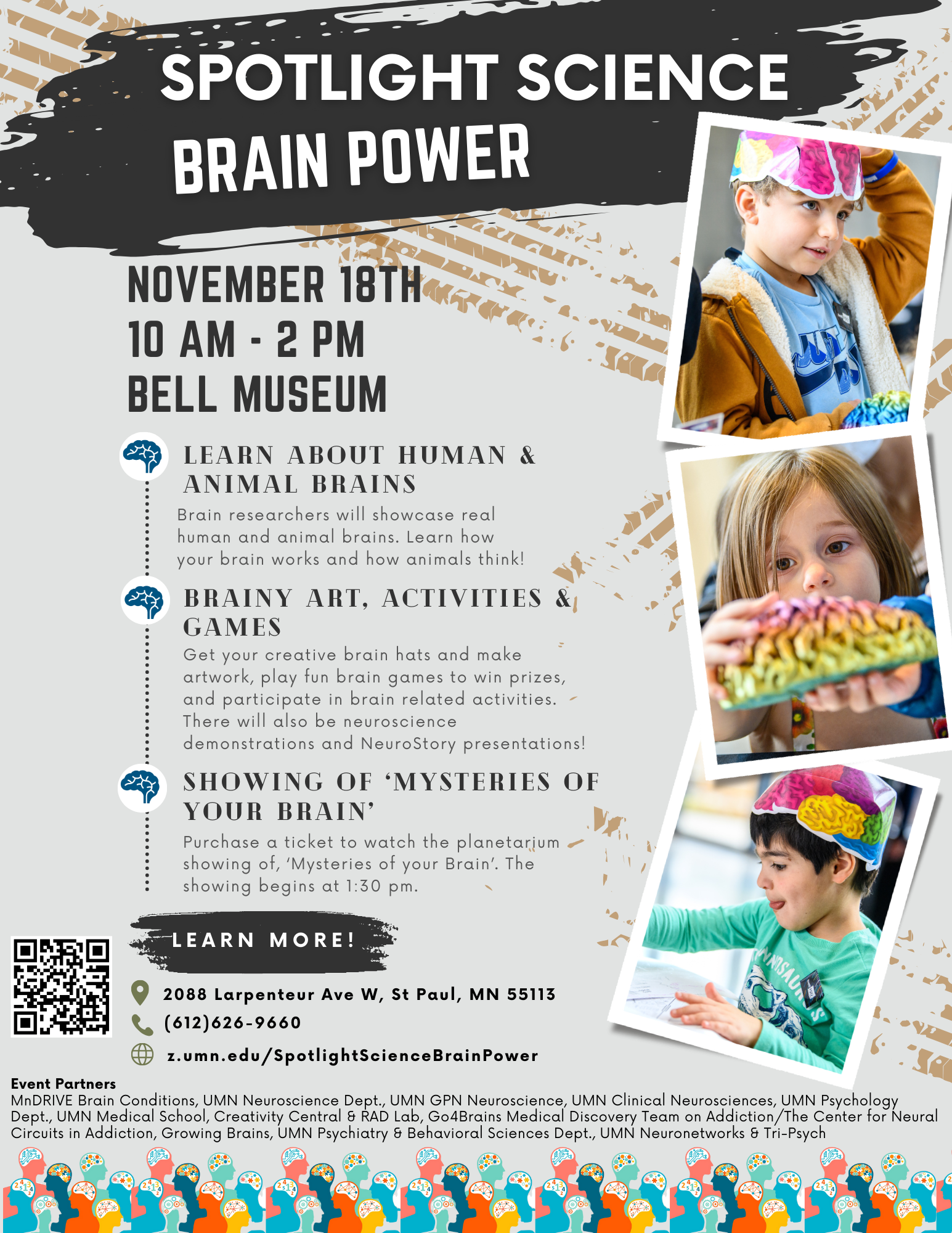
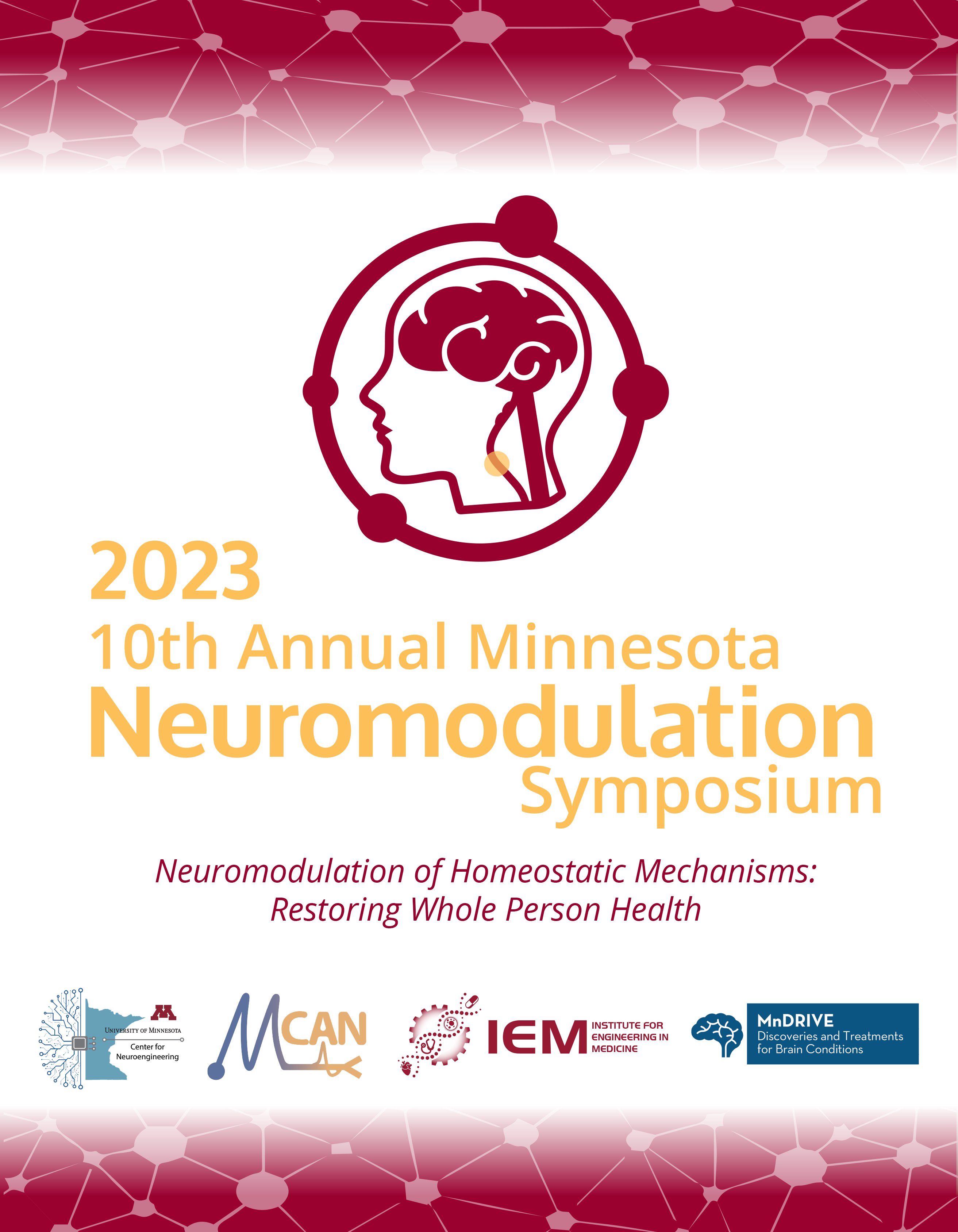
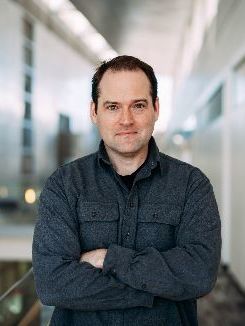
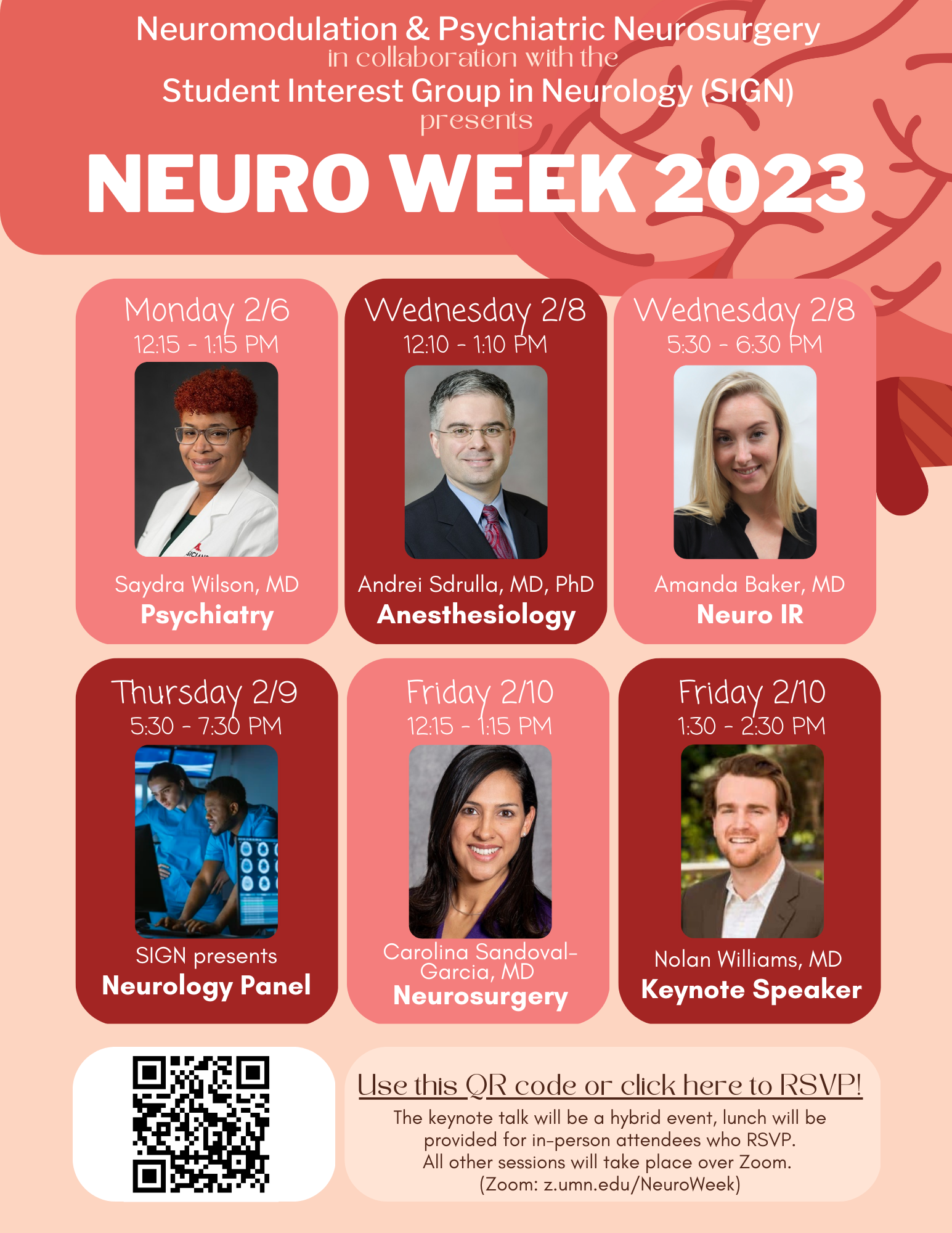
 on February 6-10!
on February 6-10!

